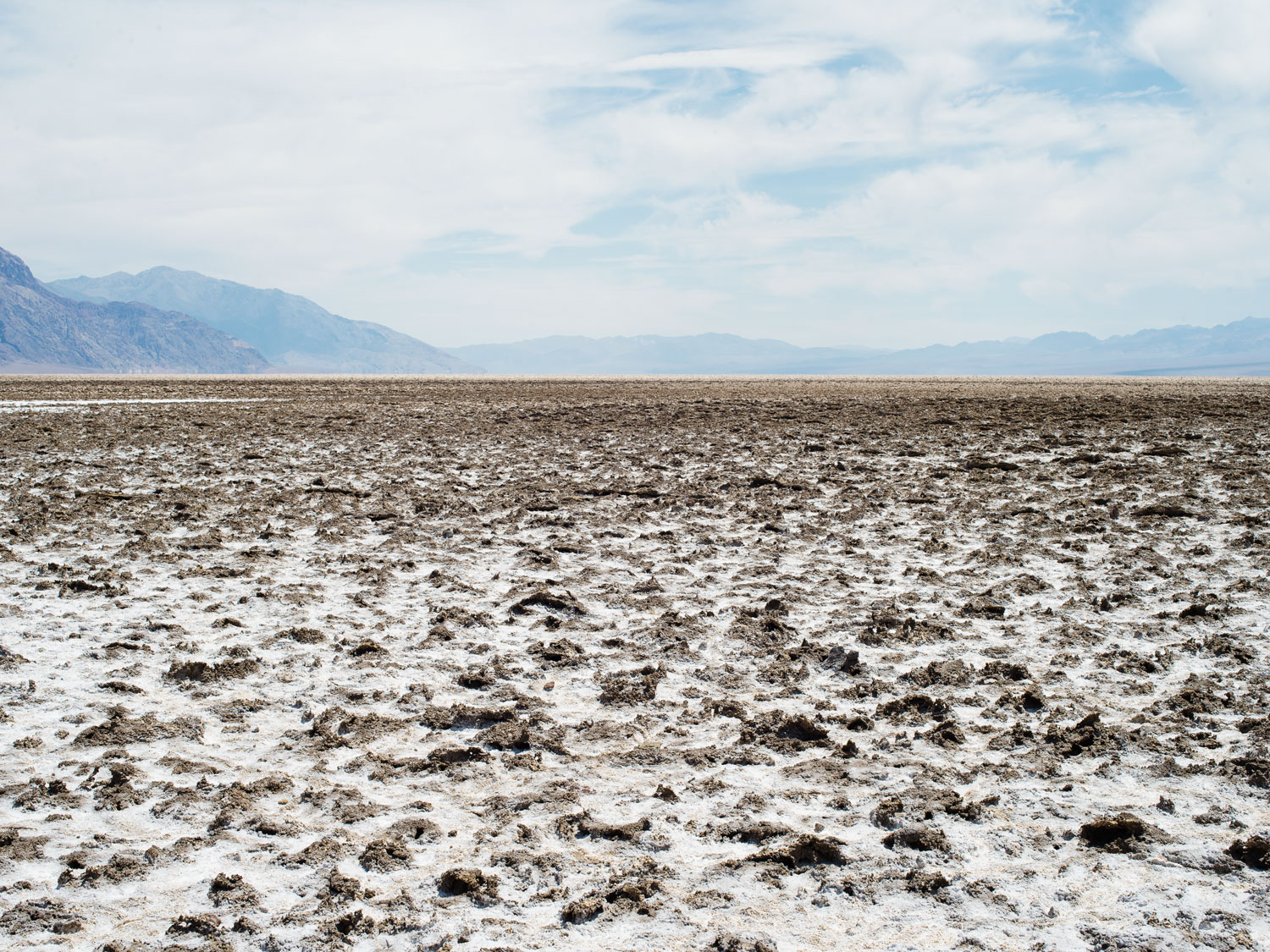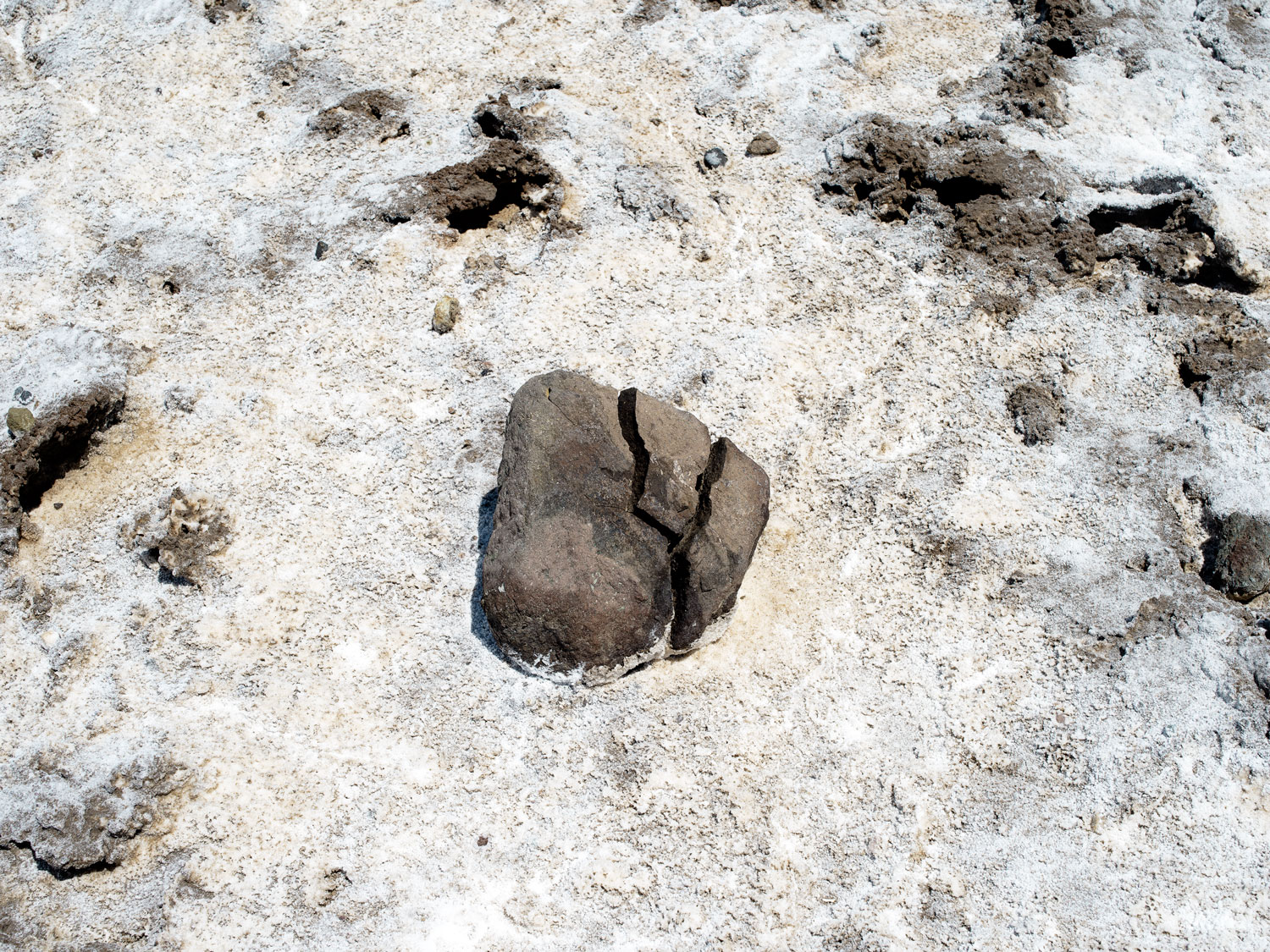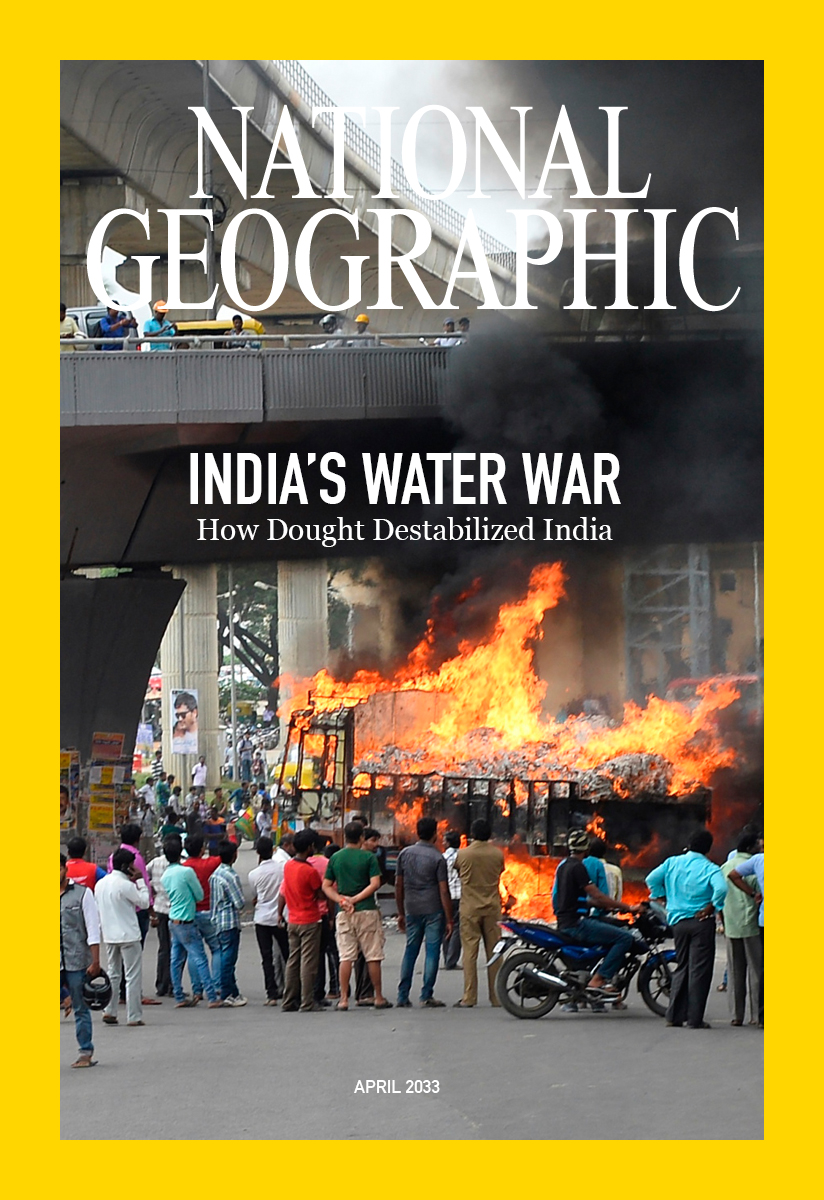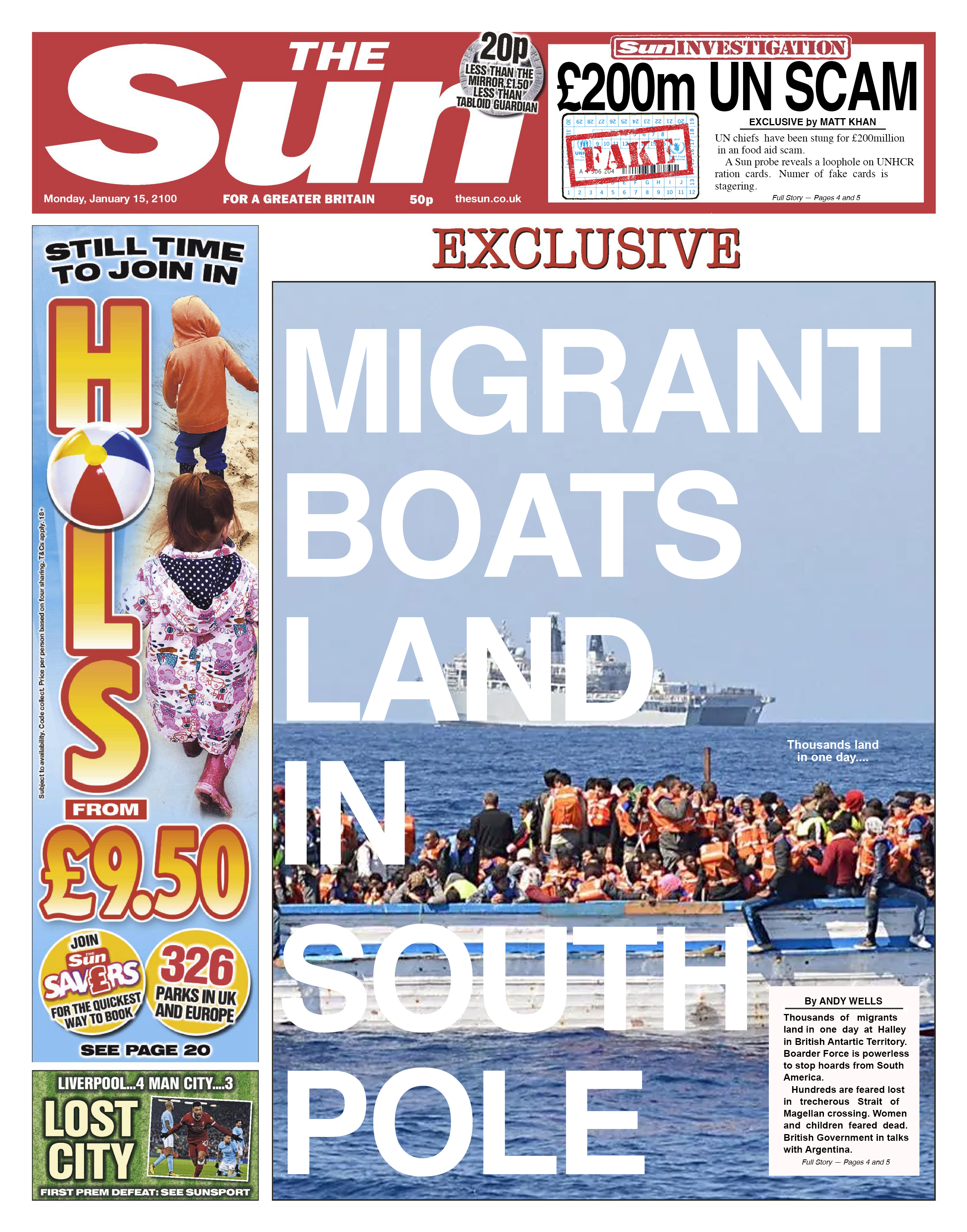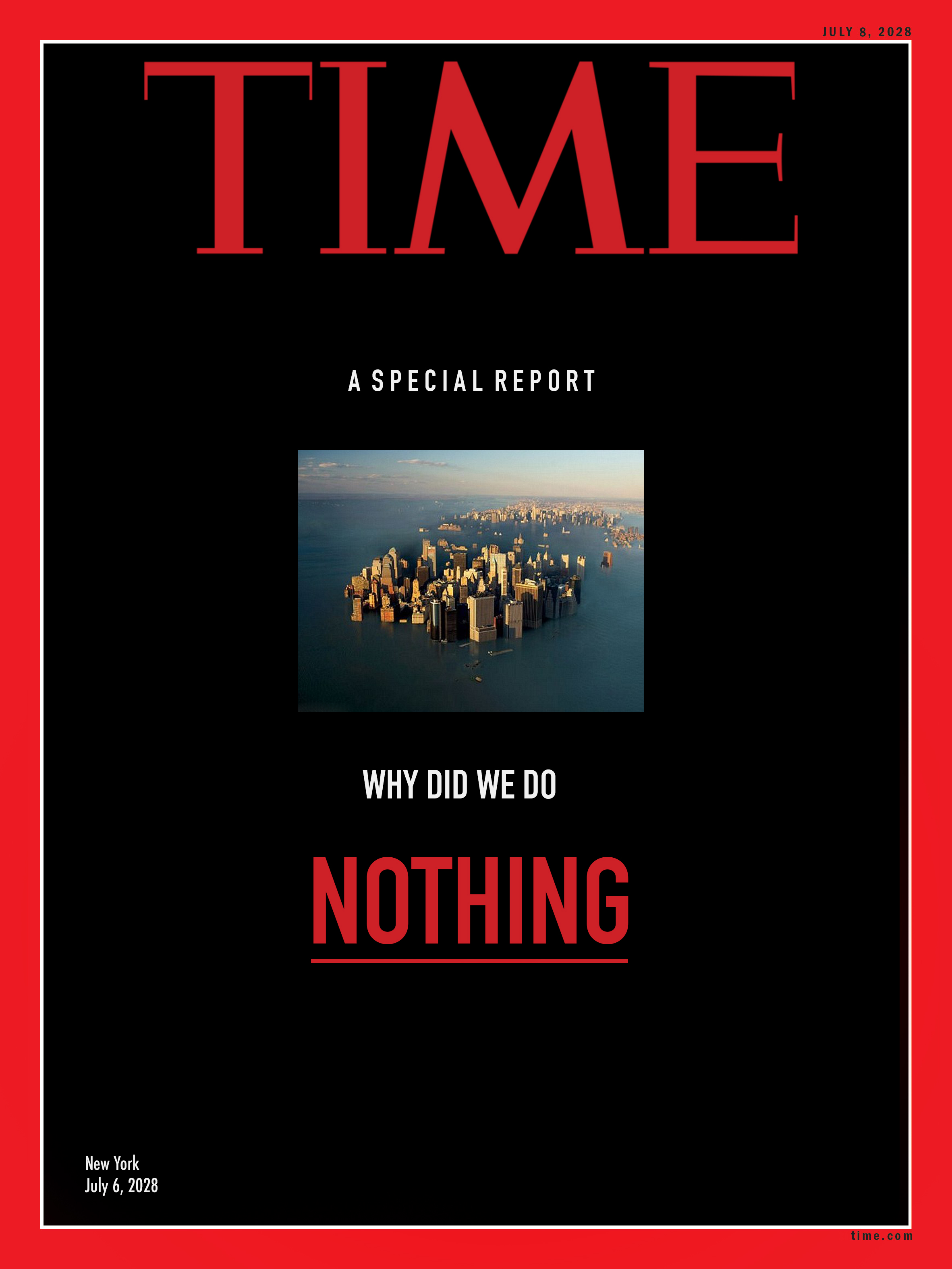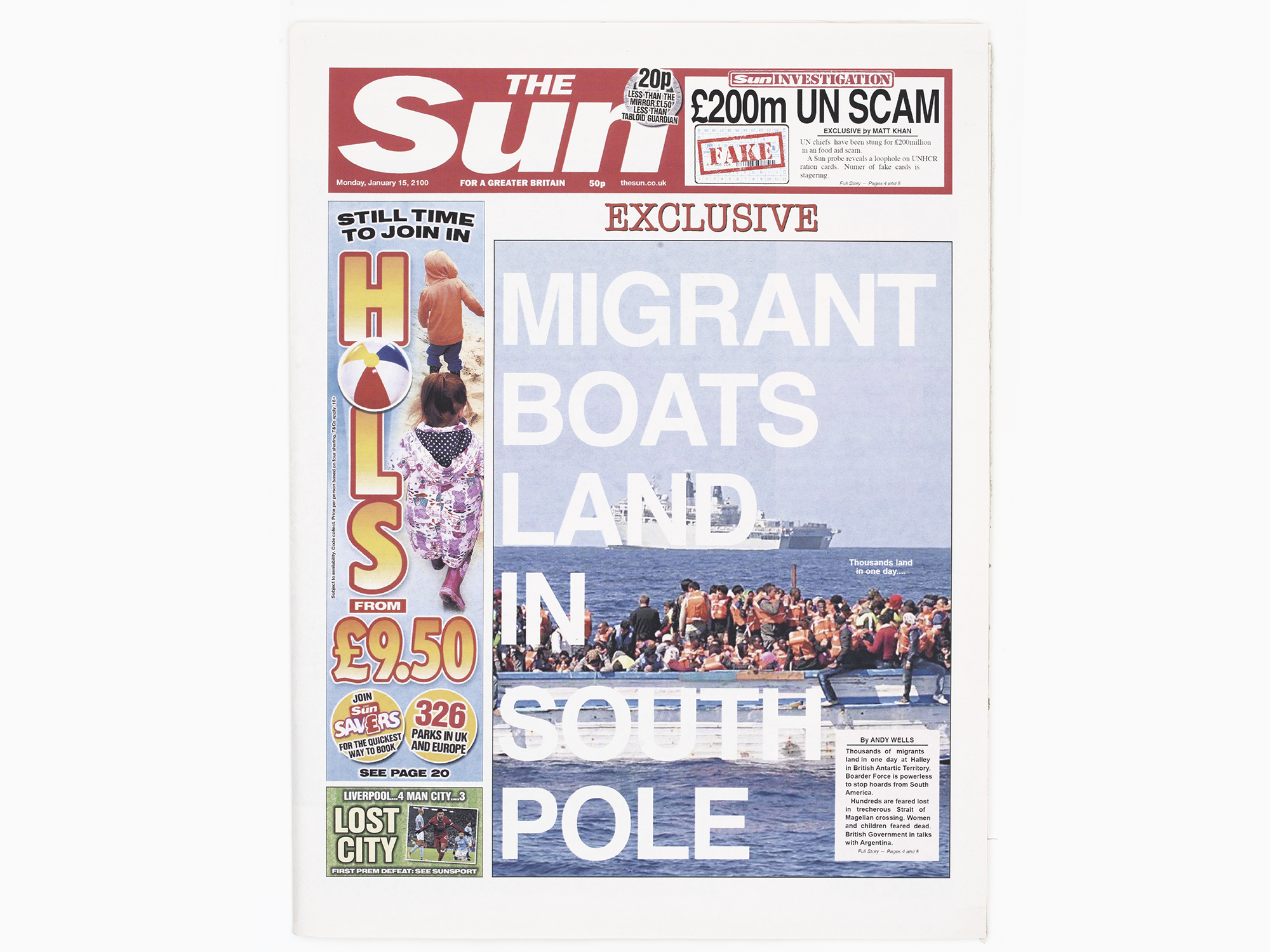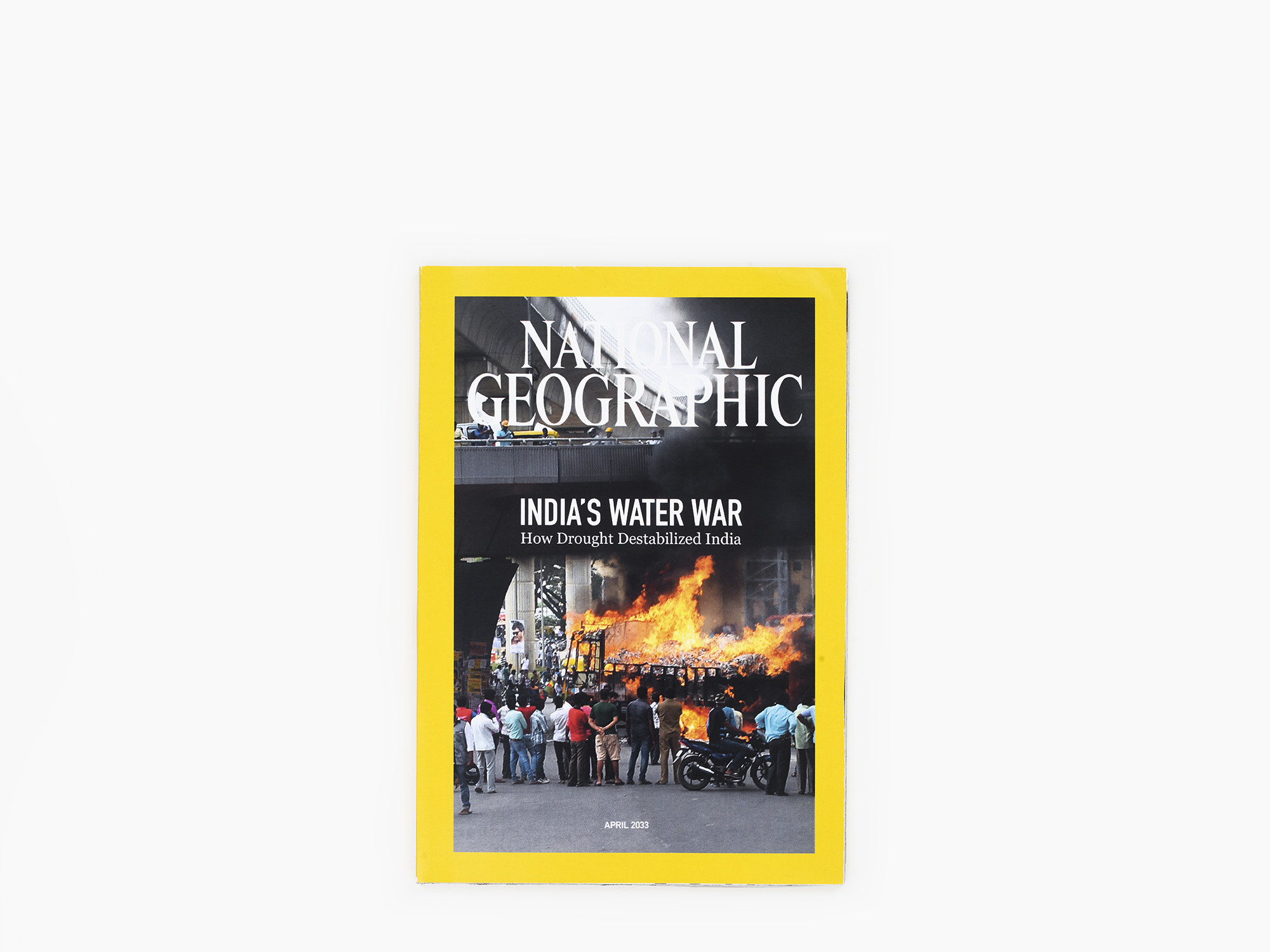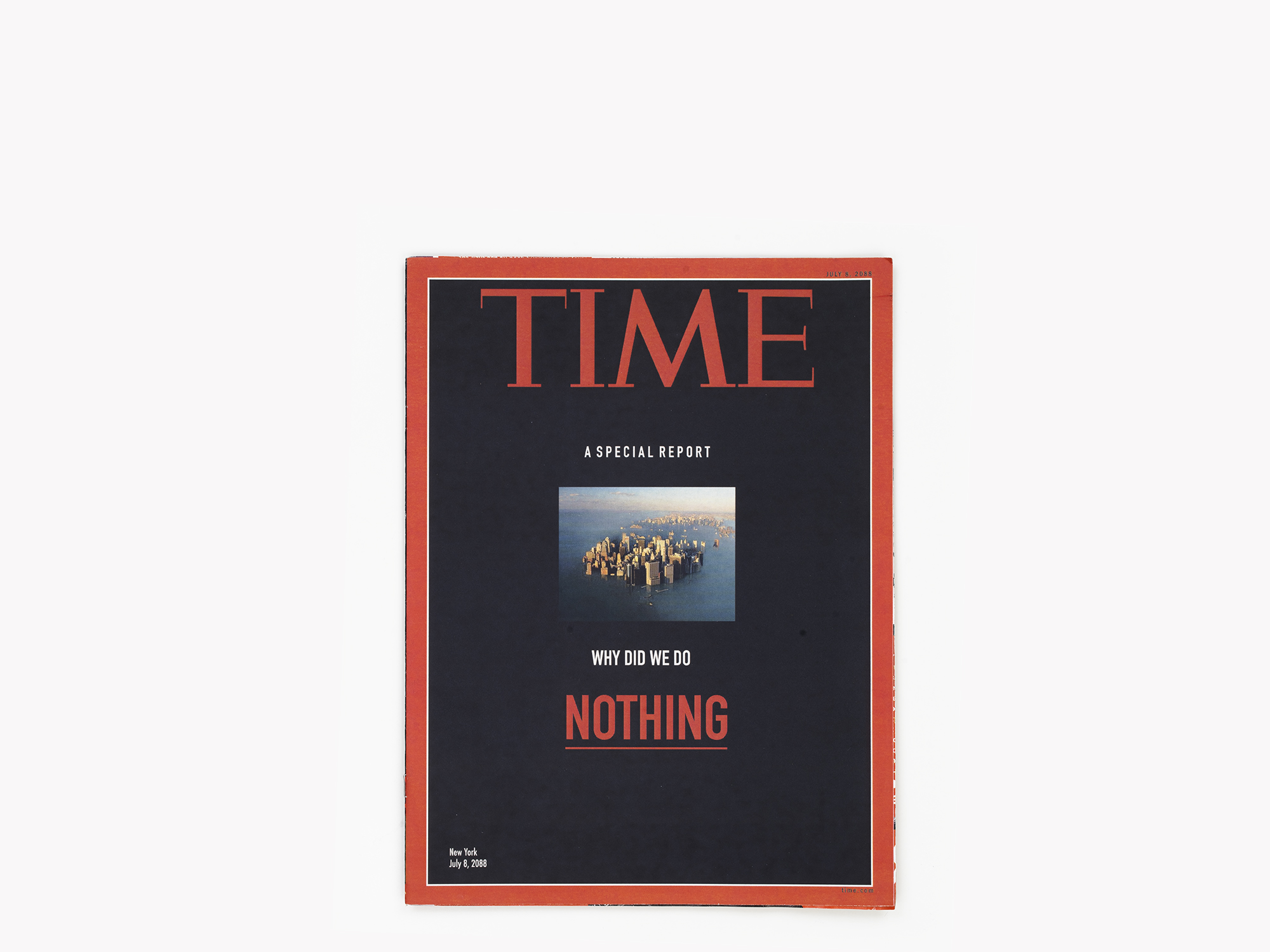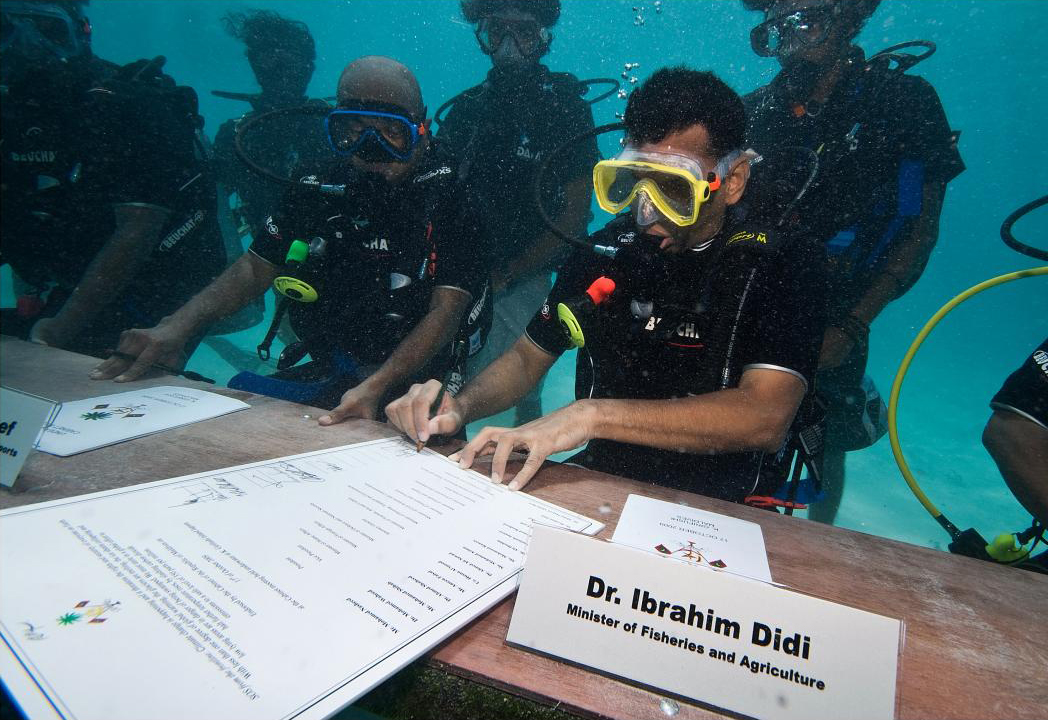
Podwodne spotkanie rządu Malediwów. Zdjęcie: Malediwskie Stowarzyszenie Nurków / Sindi, 17 października 2009 r.
„Jeśli dzisiaj niemożna ocalić Malediwów, nie jesteśmy przekonani, czy istnieje szansa ocalenia reszty świata.”
Prezydent Mohamed Nasheed,
Prezydent Malediwów Podwodne spotkanie rządu Malediwów, 17 października 2009 r.
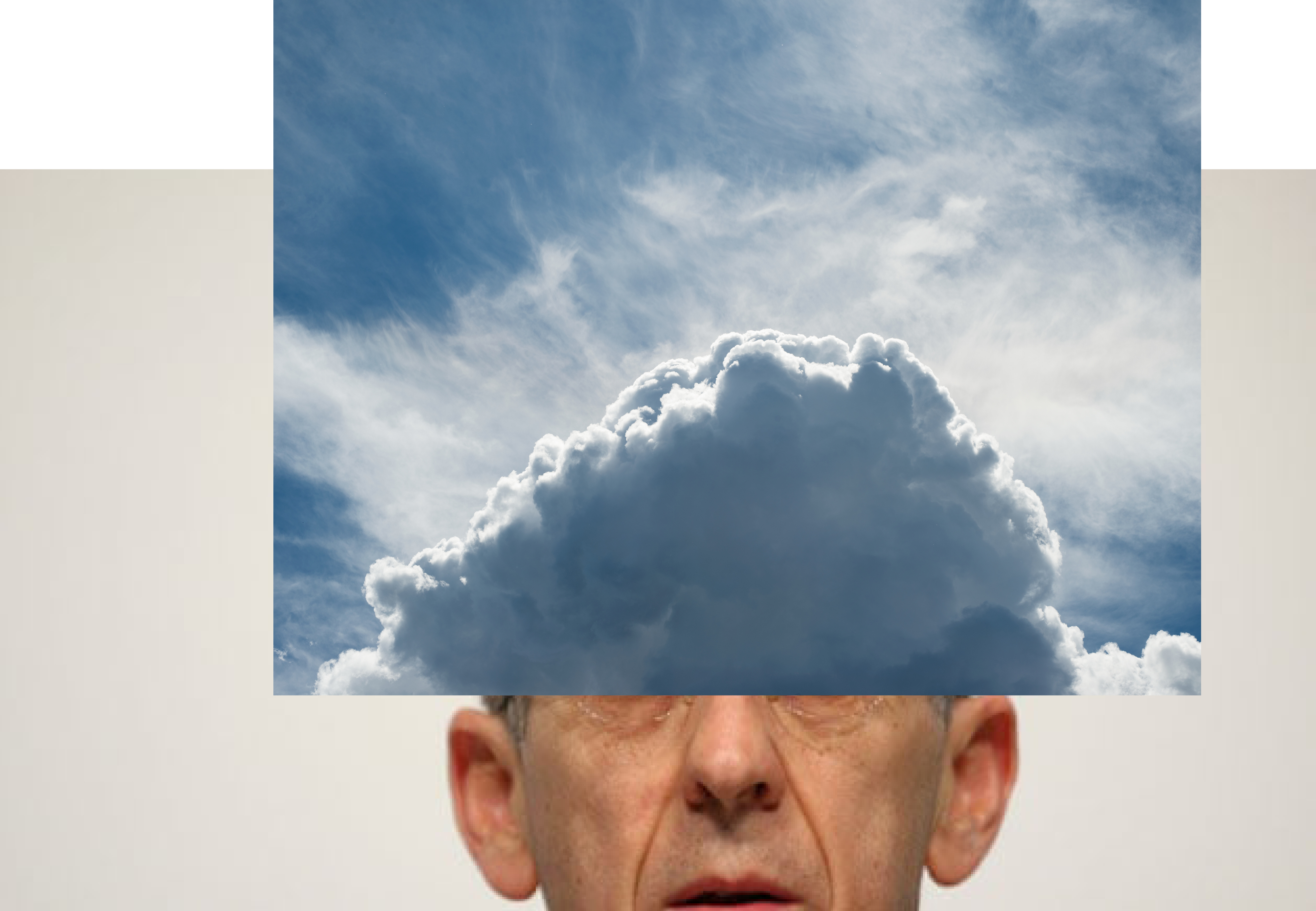
Todd Stern „Gwiazda Śmierci”, negocjator USA ds. klimatu, COP15, Kopenhaga, sobota, 12 grudnia 2009r.
„Bezwzględnie uznajemy naszą historyczną rolę w umieszczeniu w atmosferze emisji… jakie teraz się w niej znajdują. Jednak poczucie winy, przewinienia czy odszkodowania, to kategorycznie odrzucam.”
Todd Stern „Gwiazda Śmierci”, negocjator USA ds. klimatu, COP15, Kopenhaga, sobota, 12 grudnia 2009r.
Ian Fry, negocjator dla Tuvalu, COP 15, Kopenhaga, sobota, 12 grudnia, Think Progress /Archiwum Audiowizualne UNFCCC, 2009
„Obudziłem się tego ranka i płakałem, a do czegoś takiego niełatwo przyznać się dorosłemu mężczyźnie. Los mojego kraju jest w waszych rękach.”
“The entire population of Tuvalu lives below two meters above sea level. The highest point above sea level in the entire nation of Tuvalu is only four meters.
Madam President, we are not naive to the circumstances and the political considerations that are before us. It appears that we are waiting for some senators in the US Congress to conclude before we can consider this issue properly. It is an irony of the modern world that the fate of the world is being determined by some senators in the U.S. Congress.
We note that President Obama recently went to Norway to pick up a Nobel Prize, rightly or wrongly. But we can suggest that for him to honor this Nobel Prize, he should address the greatest threat to humanity that we have before us, climate change, and the greatest threat to security, climate change. So I make a strong plea that we give proper consideration to a conclusion at this meeting that leads to two legally binding agreements.
Madame President, this is not just an issue of Tuvalu. Pacific island countries -- Kiribas, Marshall Islands, Maldives, Haiti, Bahamas, Grenada -- Sao Tome in West Africa and all the LDCs: Bhutan, Laos, Mali, Senegal, Timor-Leste -- and millions of other people around this world are affected enormously by climate change.
This is not just Tuvalu.
Over the last few days I’ve received calls from all over the world, offering faith and hope that we can come to a meaningful conclusion on this issue. Madame President, this is not a ego trip for me. I have refused to undertake media interviews, because I don’t think this is just an issue of an ego trip for me. I am just merely a humble and insignificant employee of the environment department of the government of Tuvalu. As a humble servant of the government of Tuvalu, I have to make a strong plea to you that we consider this matter properly. I don’t want to cause embarrassment to you or the government. But I want to have this issue to be considered properly.
I clearly want to have the leaders put before them an option for considering a legally binding treaty to sign on at this meeting. I make this a strong and impassioned plea. We’ve had our proposal on the table for six months. Six months, it’s not the last two days of this meeting. I woke this morning, and I was crying, and that’s not easy for a grown man to admit. The fate of my country rests in your hands.”
Ian Fry, negocjator dla Tuvalu,COP 15, Kopenhaga, sobota, 12 grudnia 2009 r.
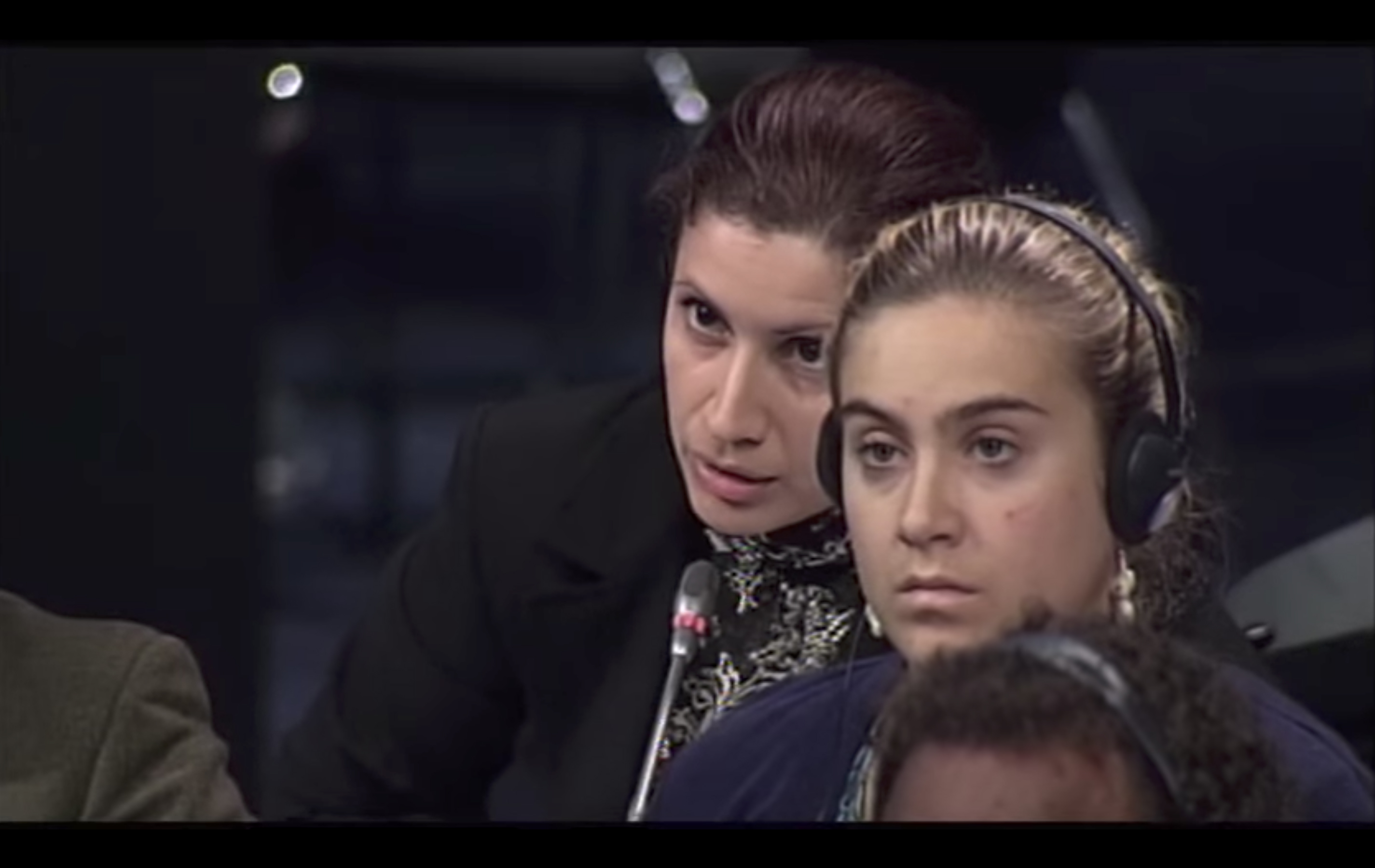
Claudia Salerno, negocjator dla Wenezueli, COP 15, Kopenhaga, sobota, 12 grudnia, Think Progress /ArchiwumAudiowizualne UNFCCC, 2009 r.
„Ta ręka, która krwawi, chce mówić i ma takie samo prawo jak ci, których nazywacie reprezentującą was grupą przywódców.”
“Mr President, do you think a sovereign country should have to make it’s hand bleed in order to raise a right to speak because you simply don’t want to hear what is happening. This hand which is bleeding wants to speak and has as much right as these that you call the representative group of leaders.”
ClaudiaSalerno, negocjator dla Wenezueli, COP 15, Kopenhaga, sobota, 12 grudnia 2009r.
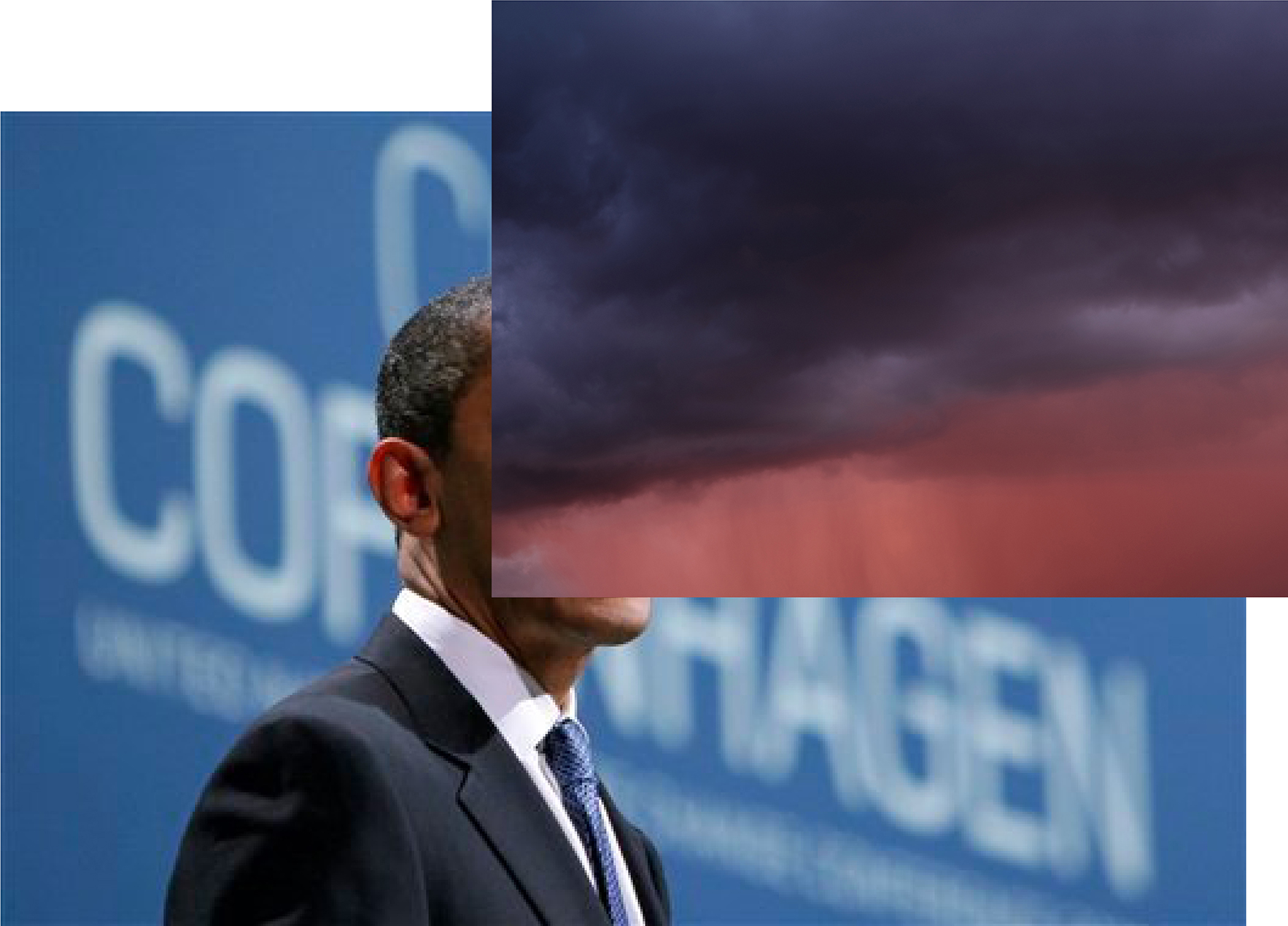
Prezydent Barak Obama, UNFCC COP 15, Kopenhaga, piątek, 18 grudnia 2009 r.
„Nie jest to idealne porozumienie i żadne państwo nie otrzyma wszystkiego, czego chce. Pewne państwa rozwijające się chcą pomocy bez żadnych zobowiązań; sądzą, że najbardziej rozwinięte kraje powinny zapłacić wyższą cenę. Pewne rozwinięte państwa zaś uważają, że kraje rozwijające się nie mogą pochłonąć tego wsparcia, bądź też, że najszybciej rosnący emitenci powinni ponieść większą część tego brzemienia.”
Prezydent Barack [JZ1] Obama, UNFCC COP 15, Kopenhaga, piątek,18 grudnia 2009 r.
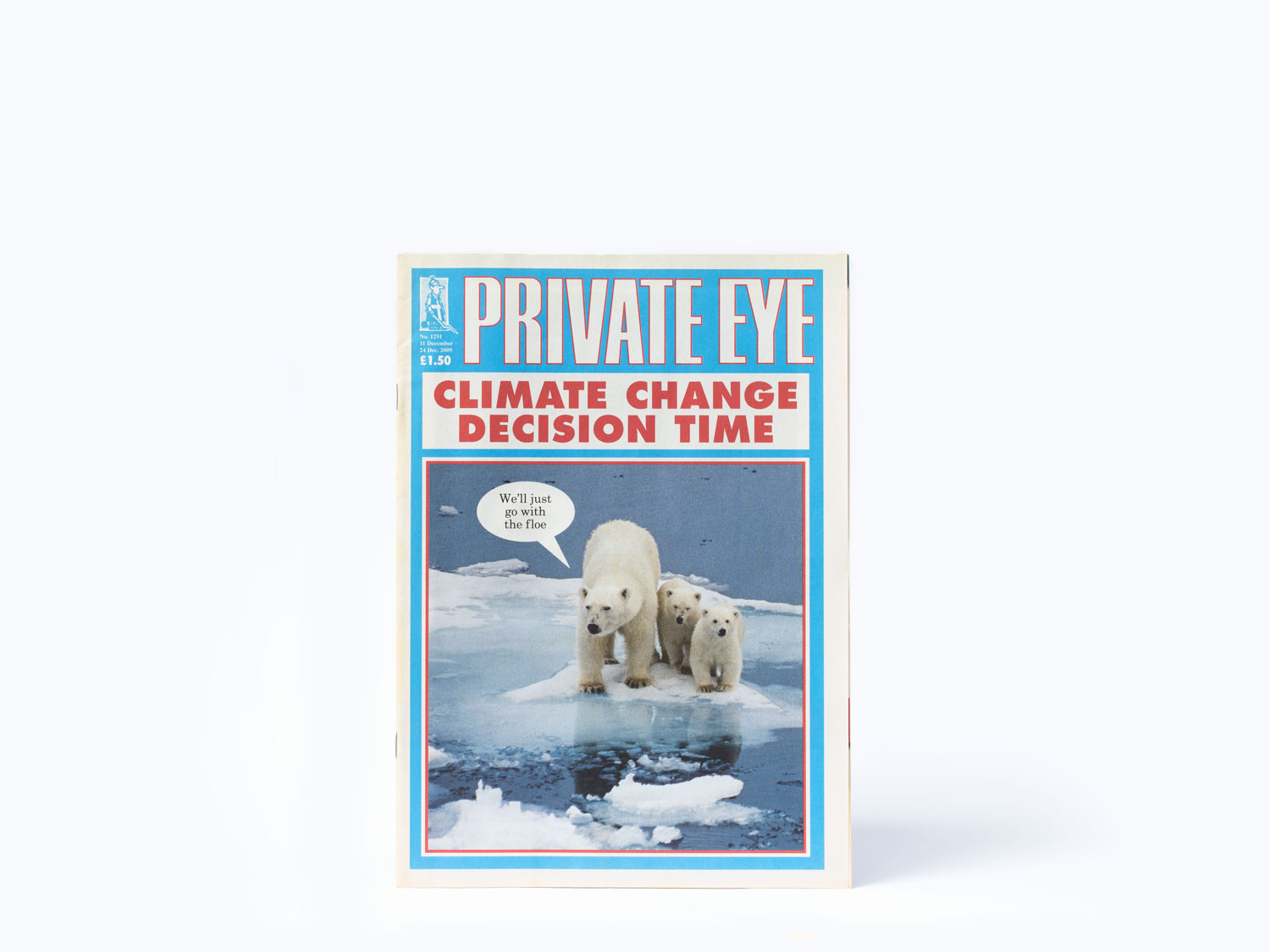
Magazyn „Private Eye”,„Climate Change Decision Time”, 11-24 grudnia 2009 r.



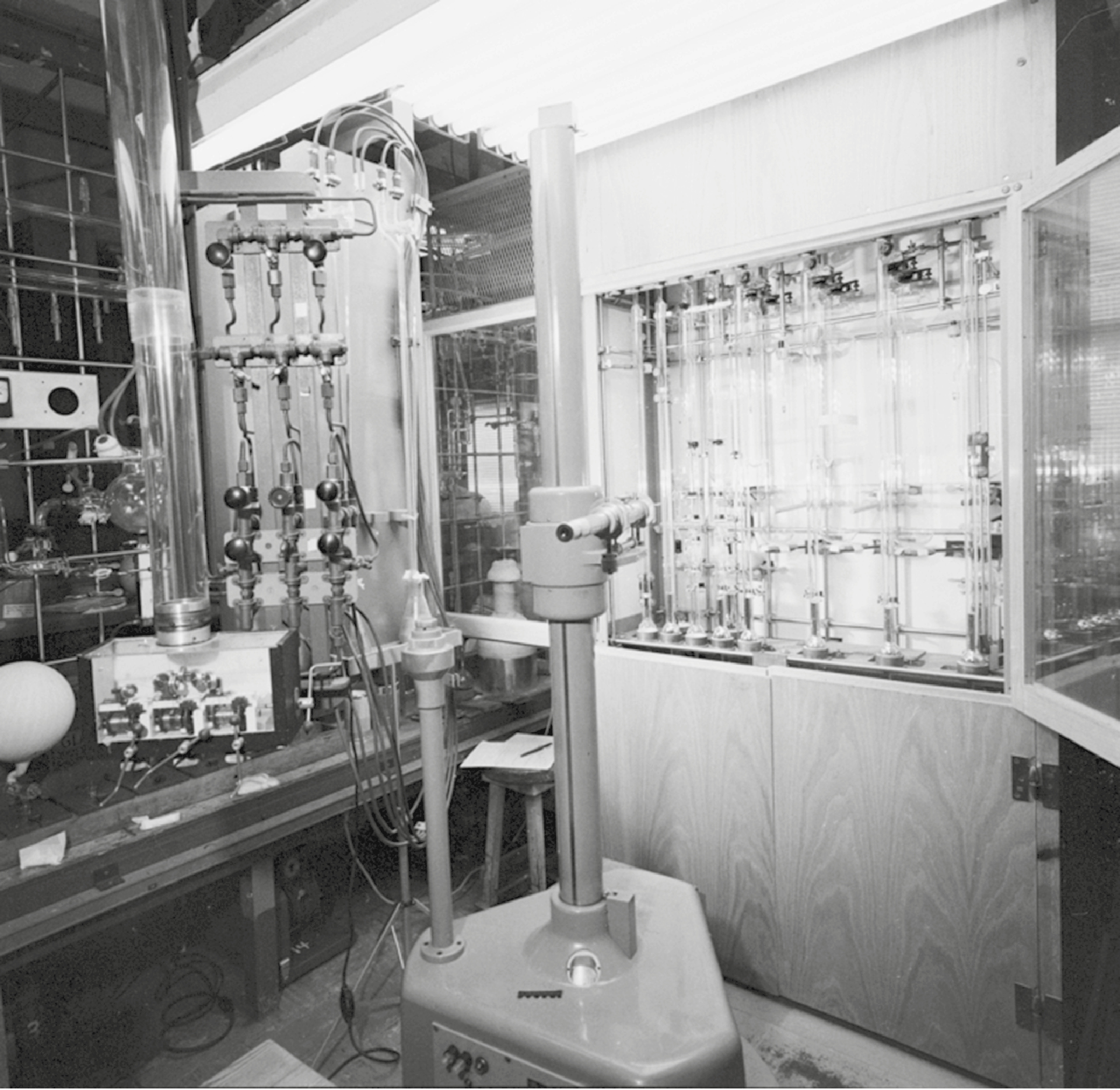
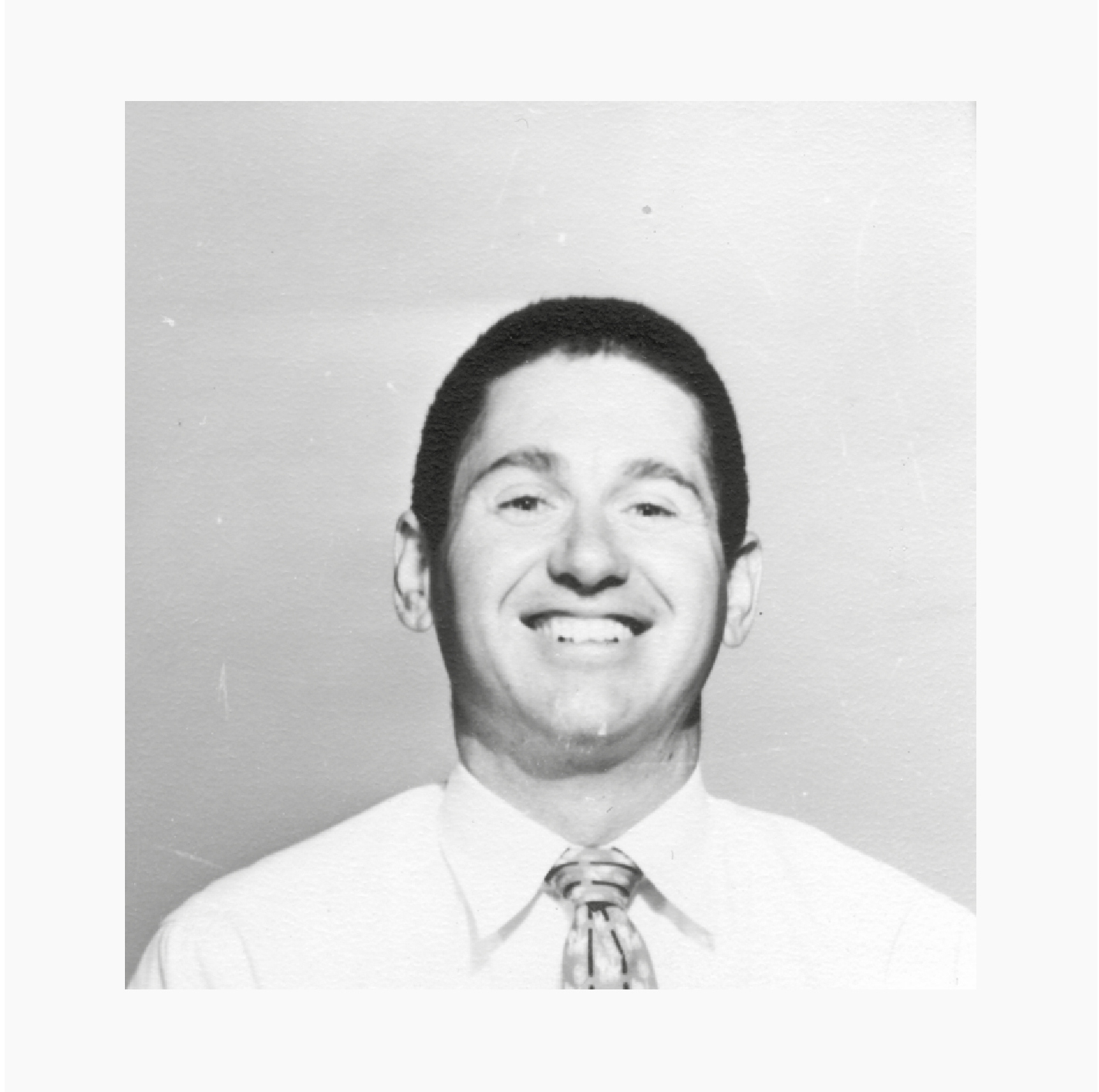


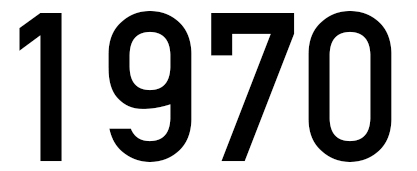
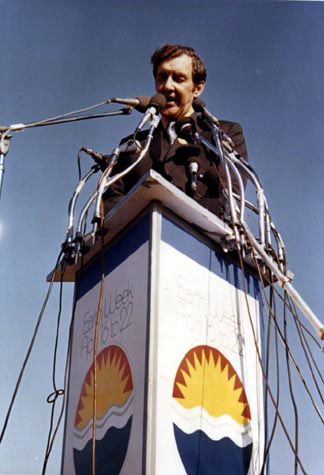

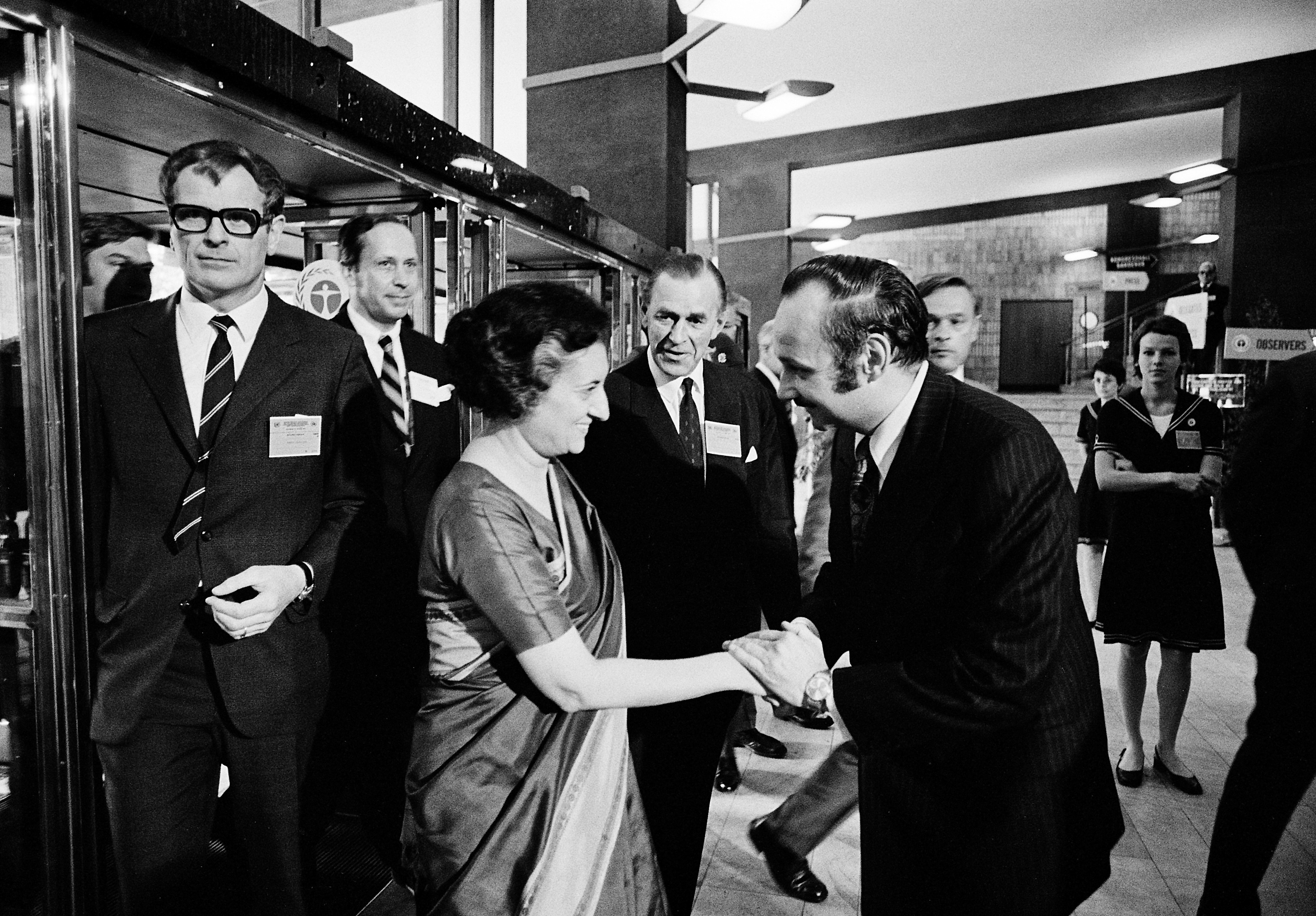


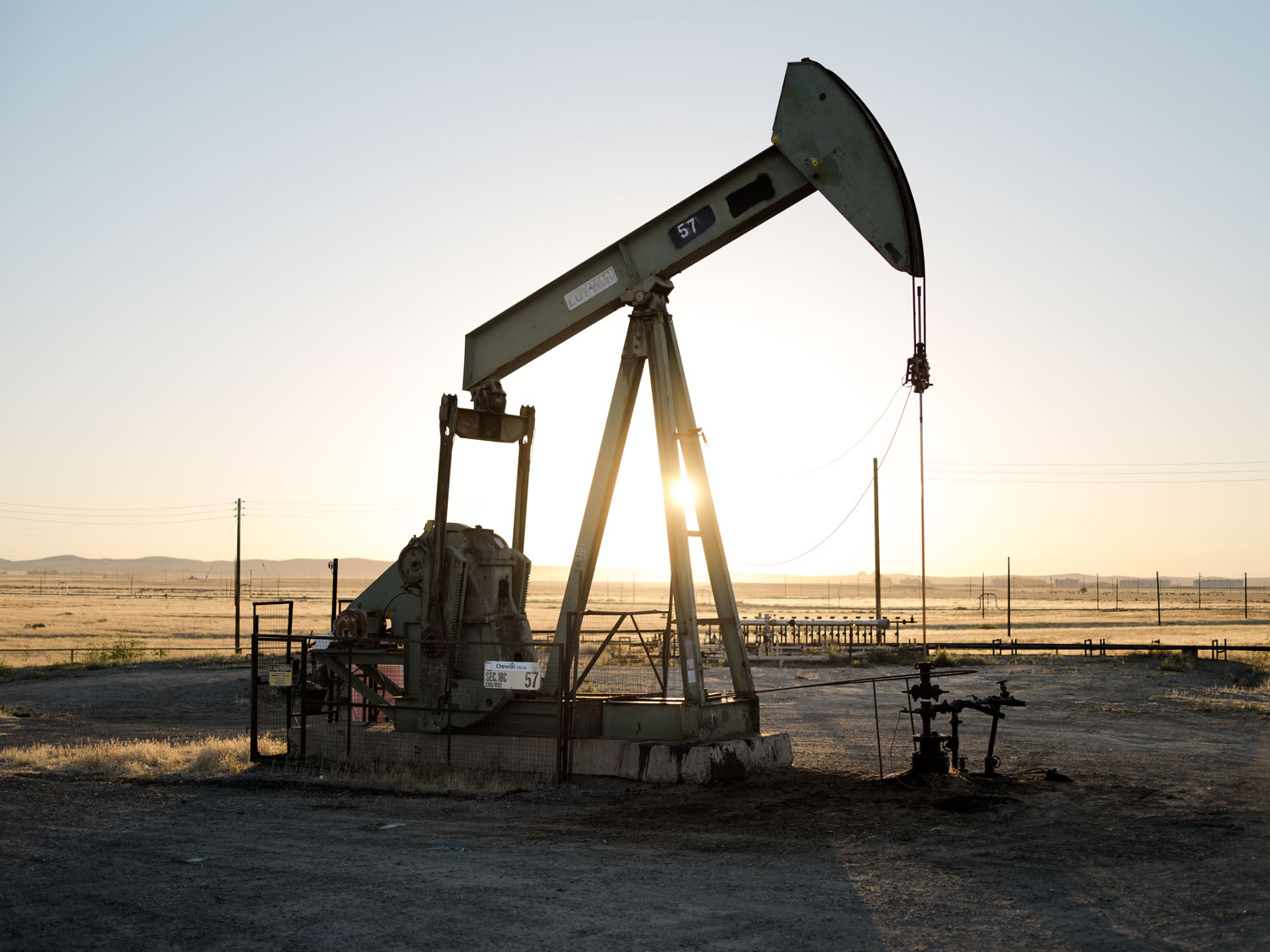

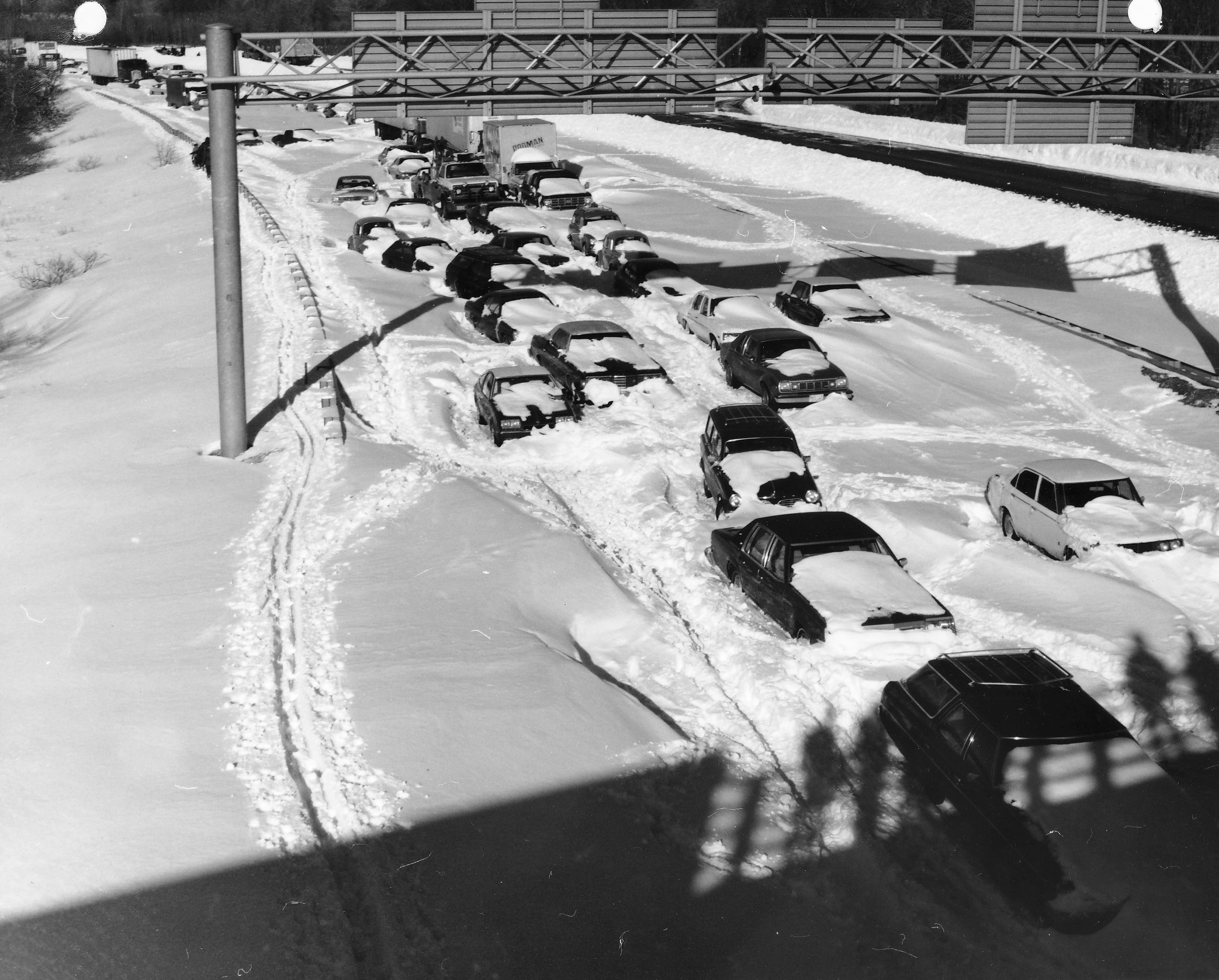
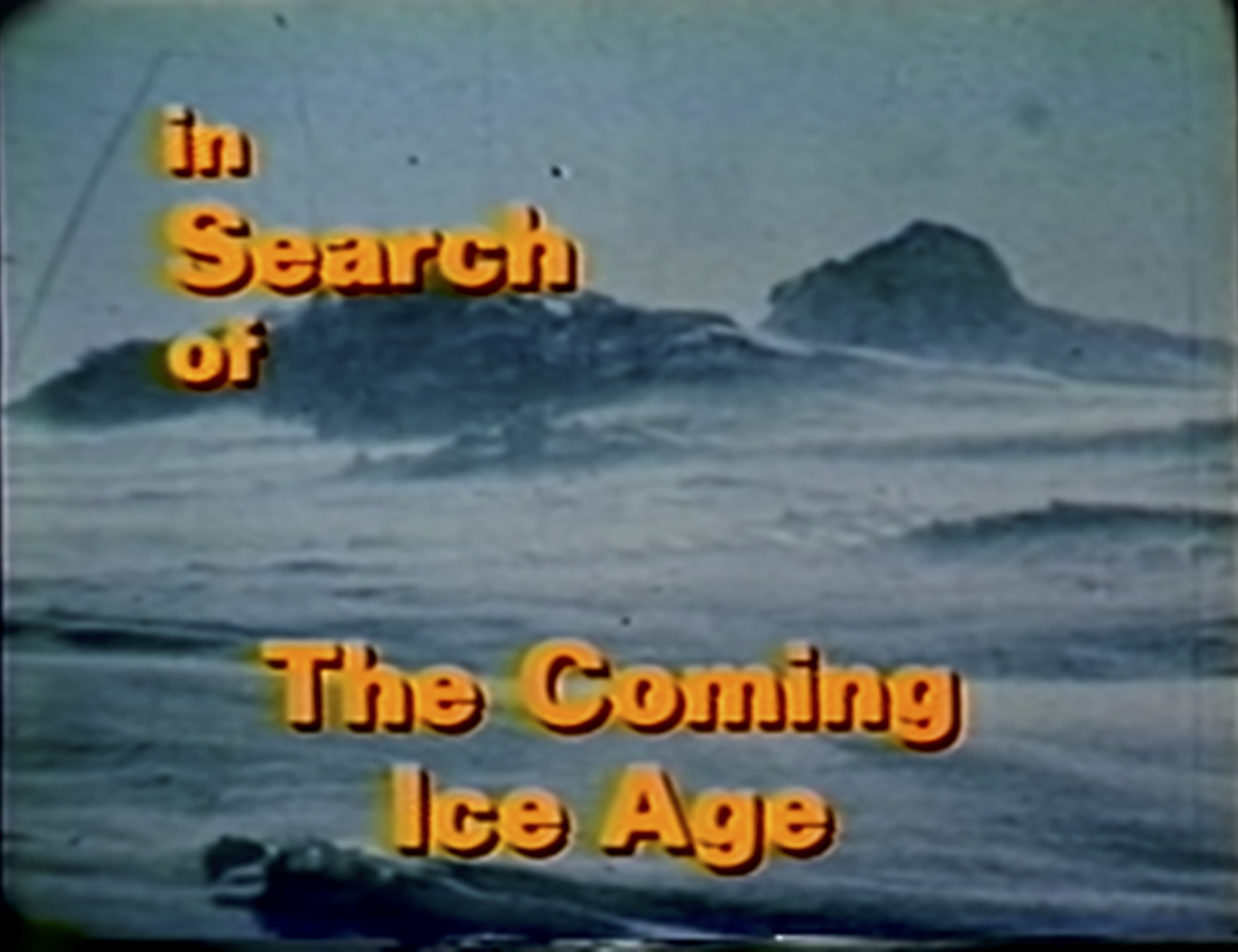

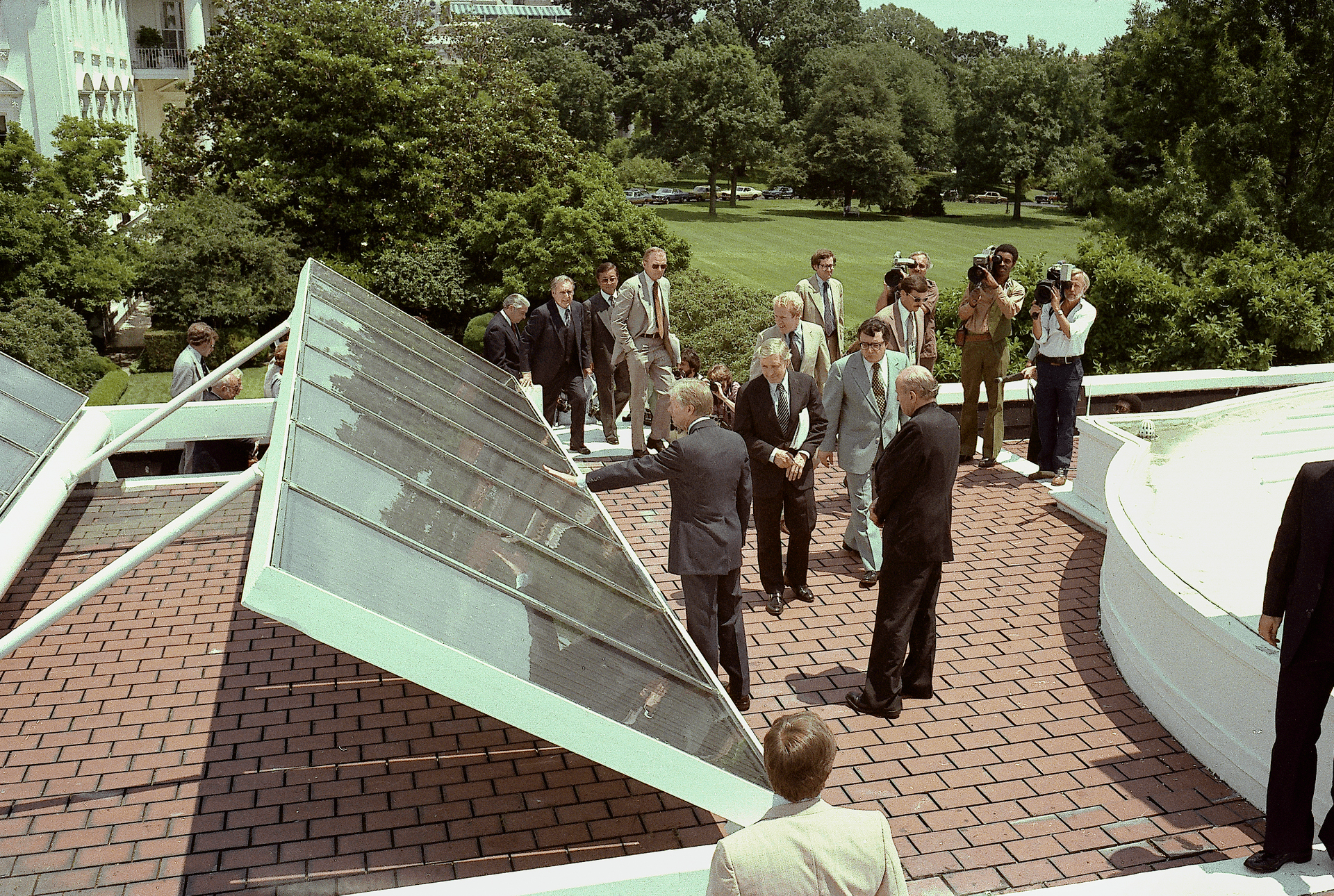
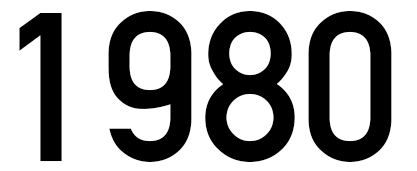
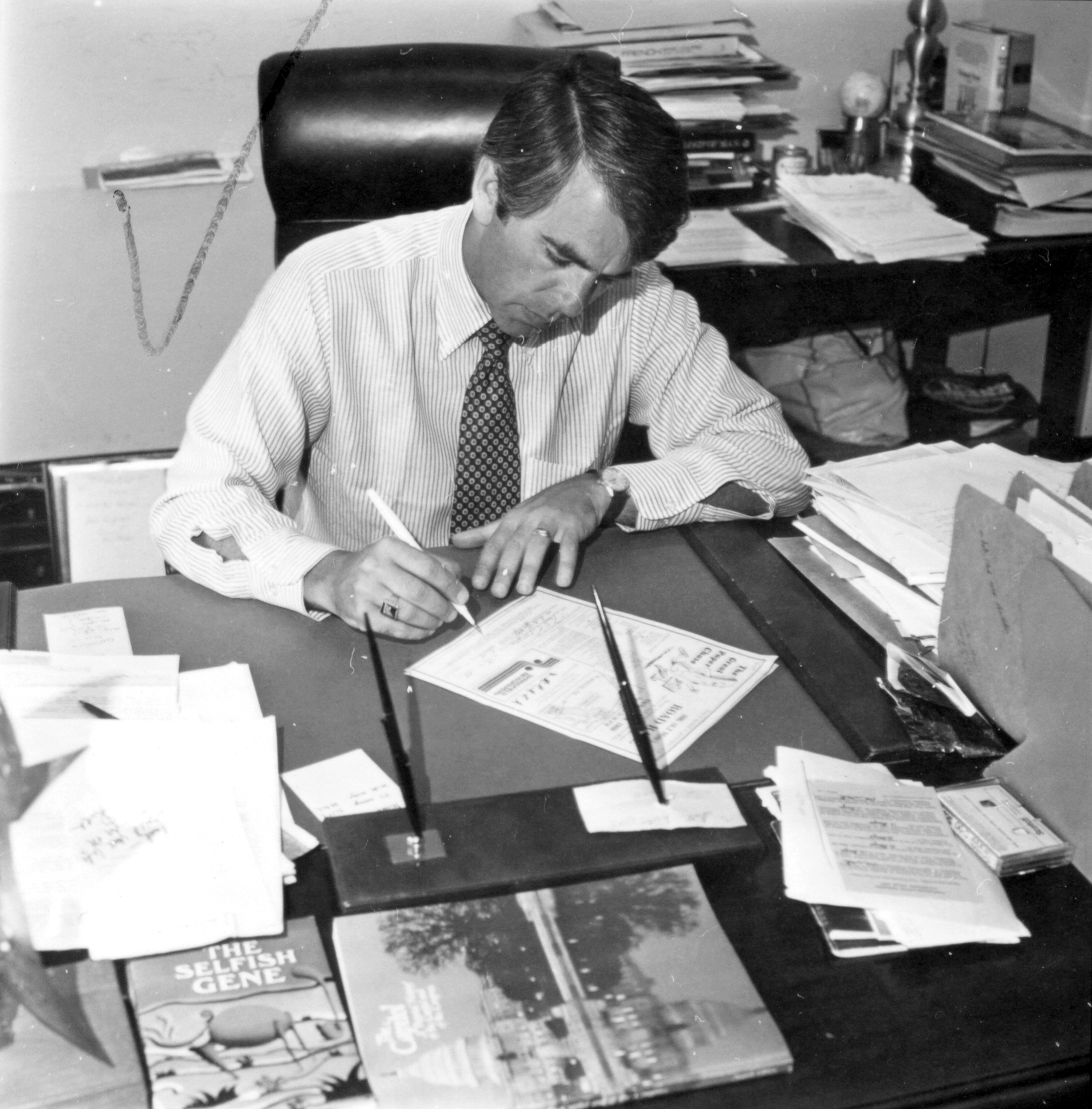

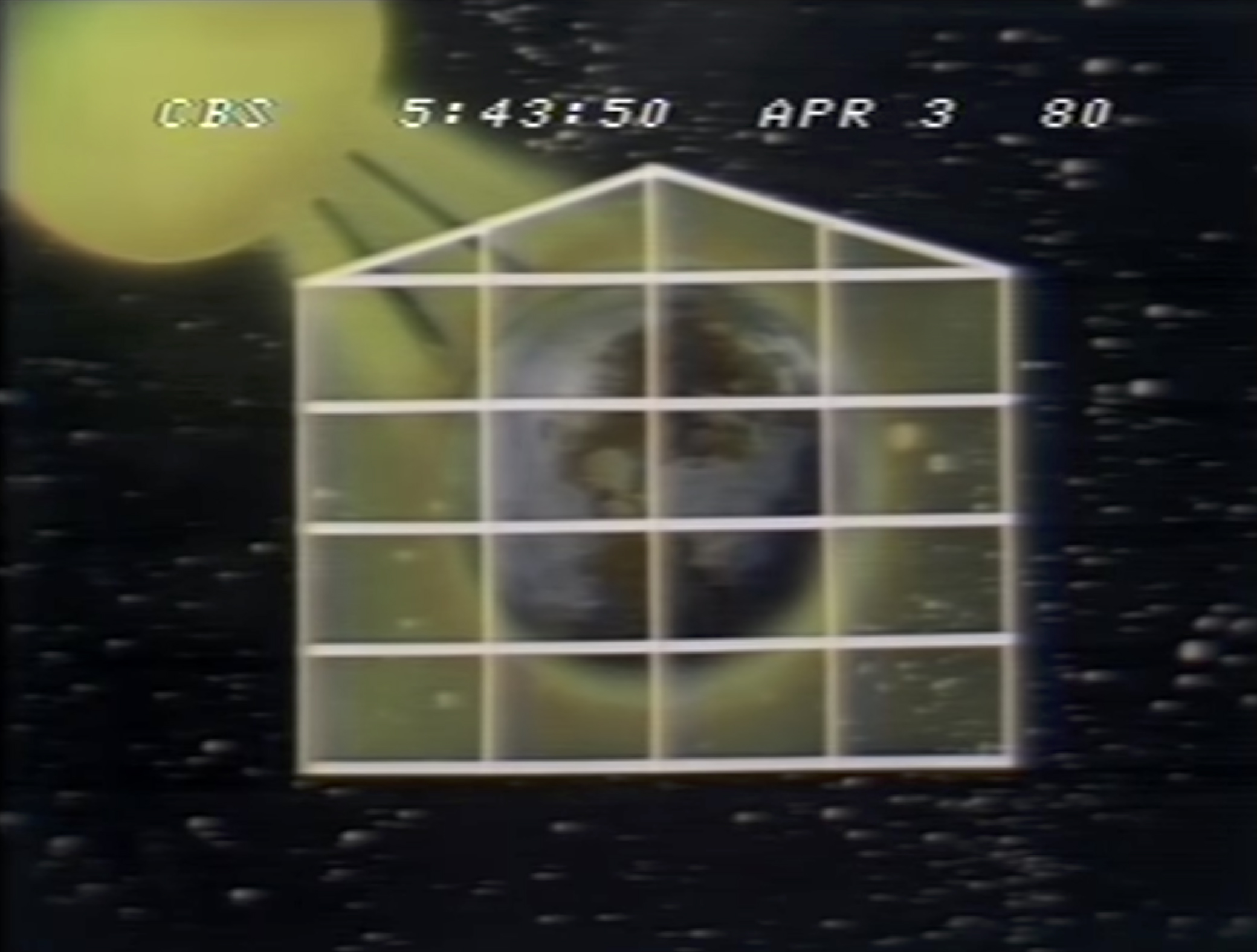
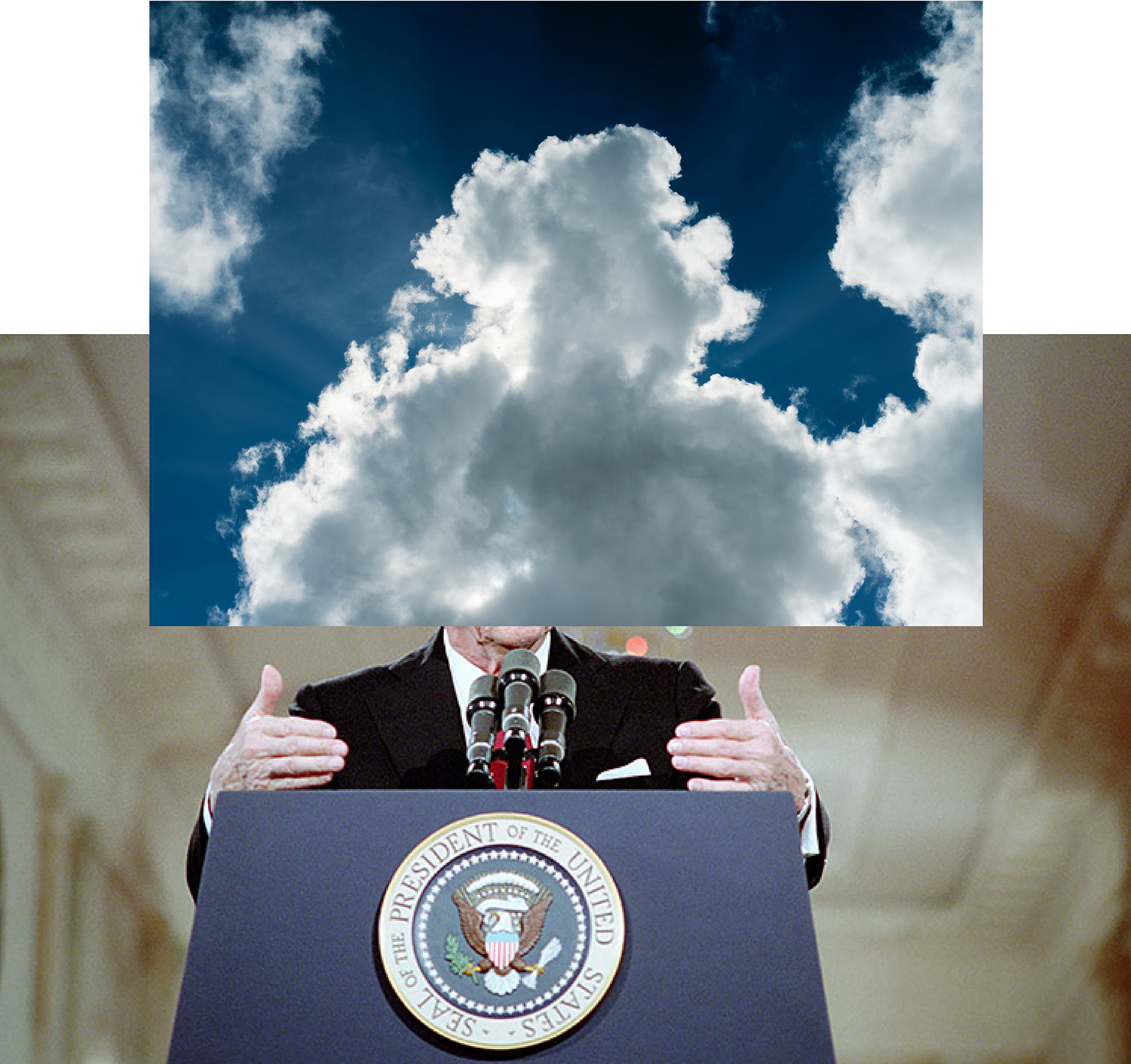

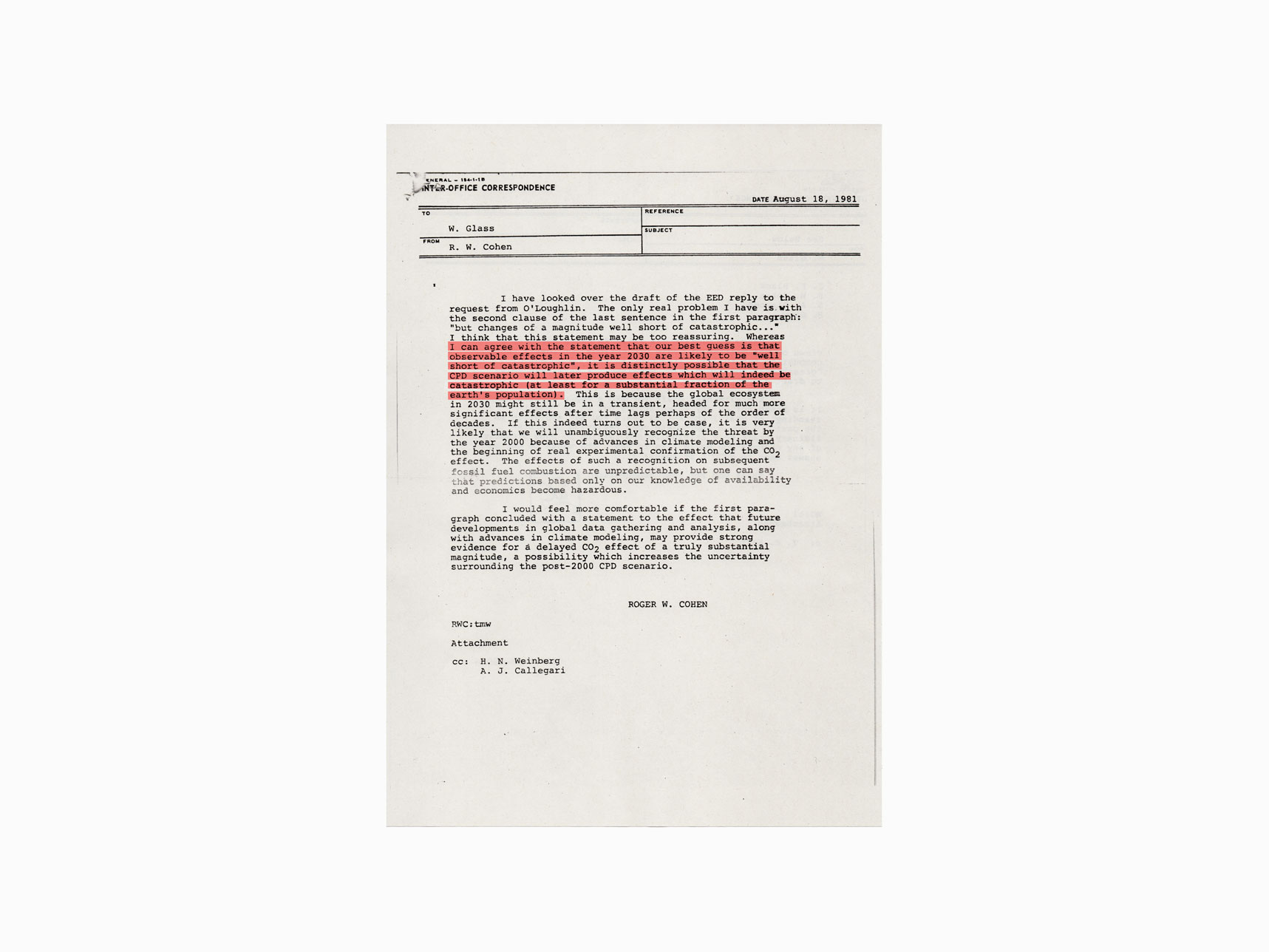
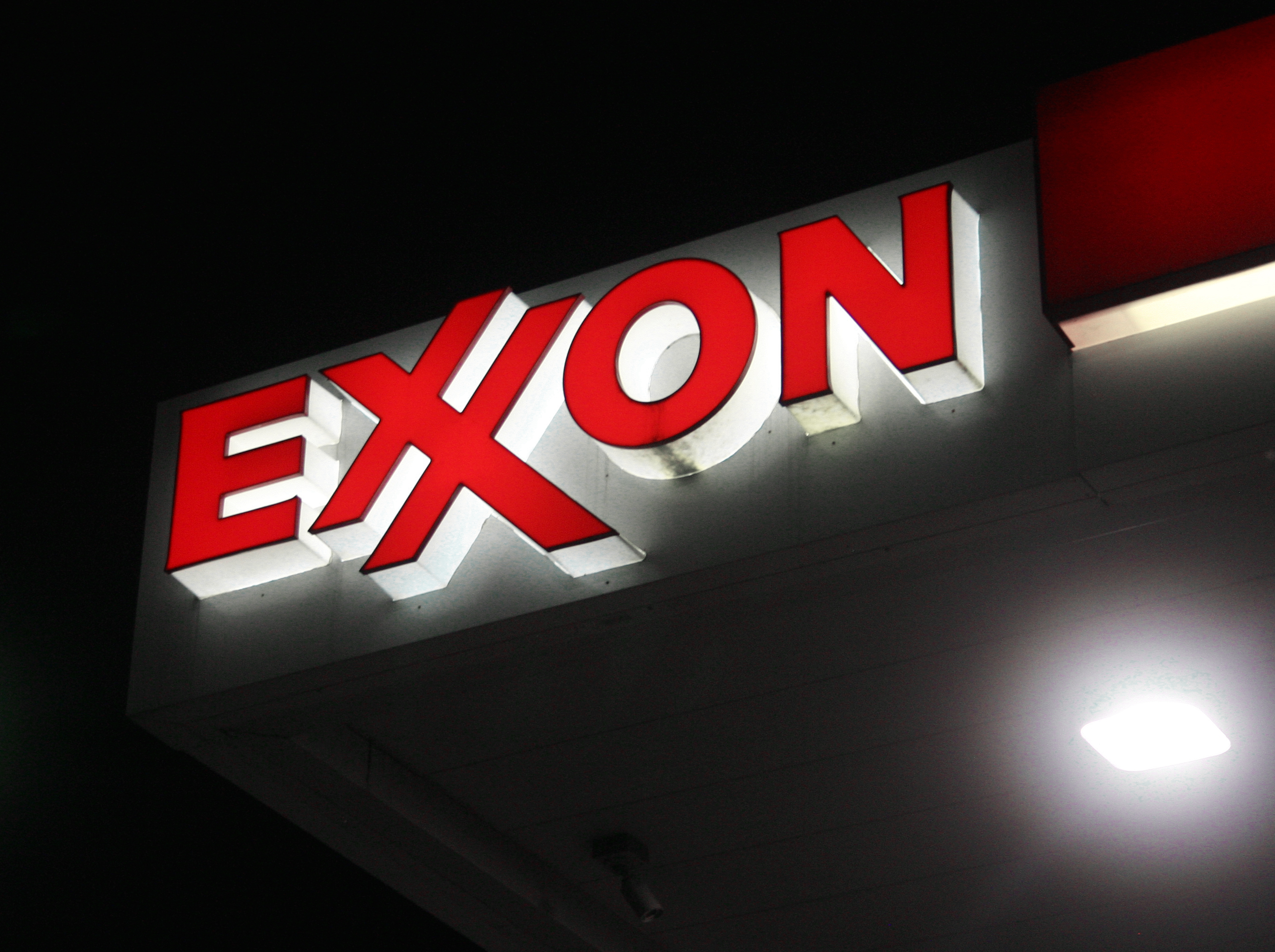
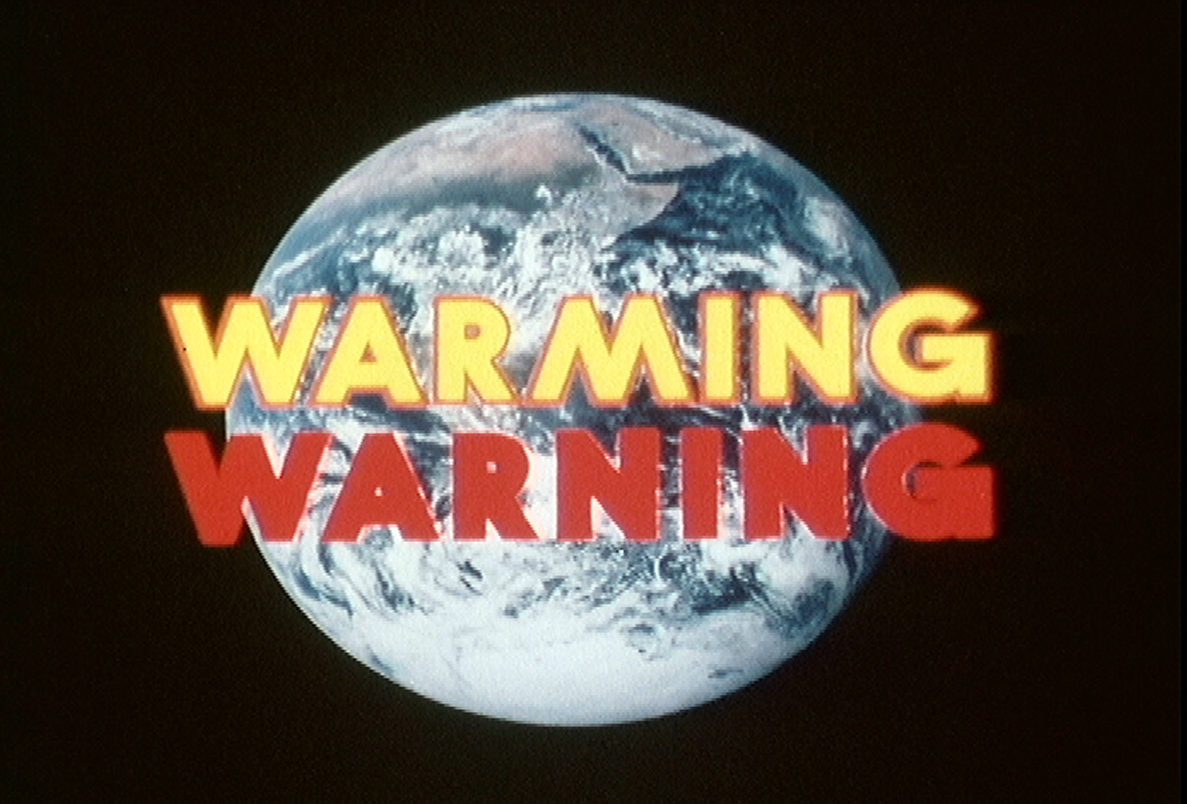
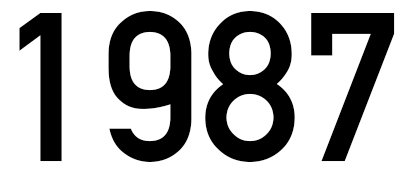

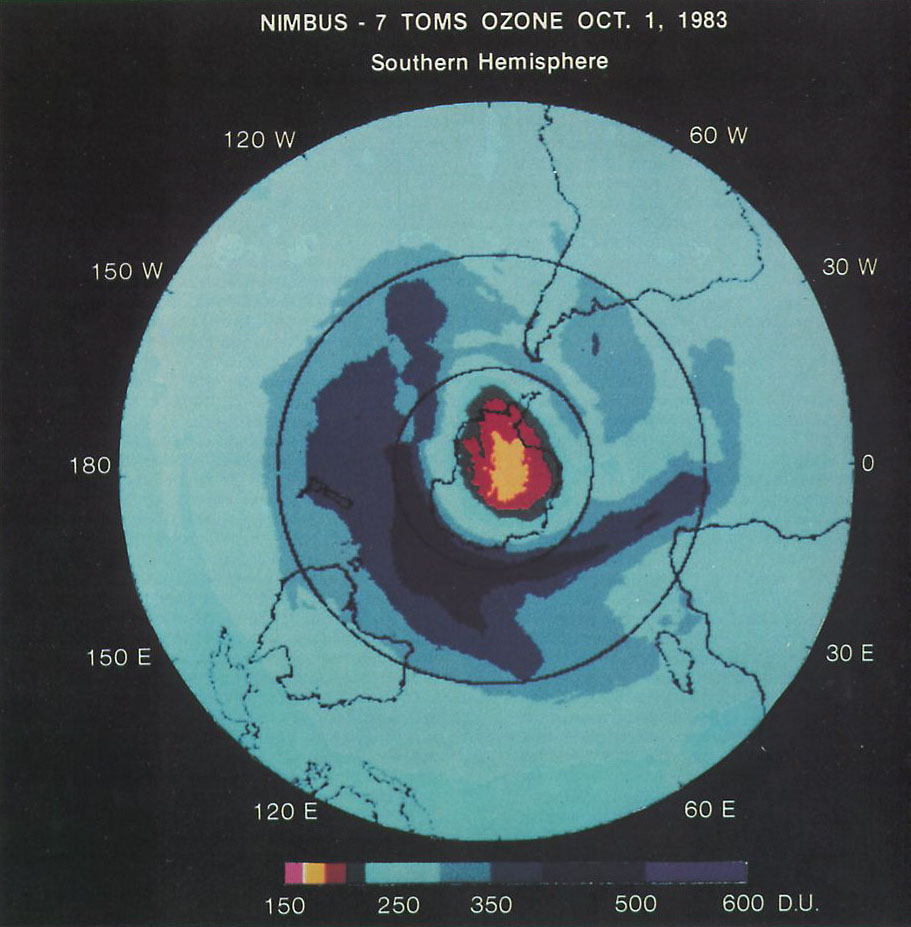

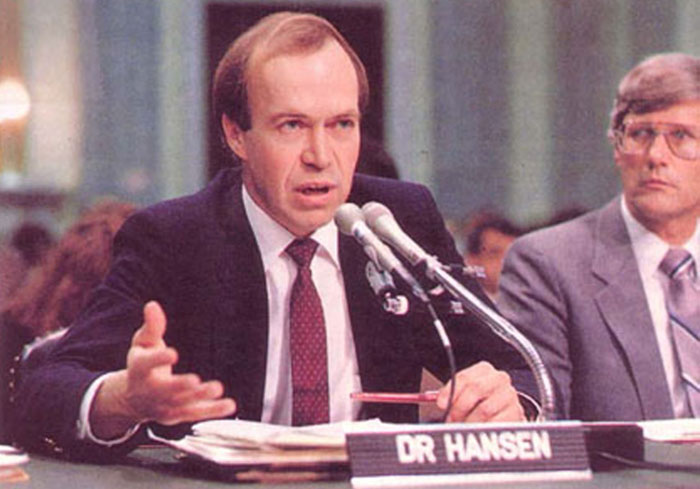
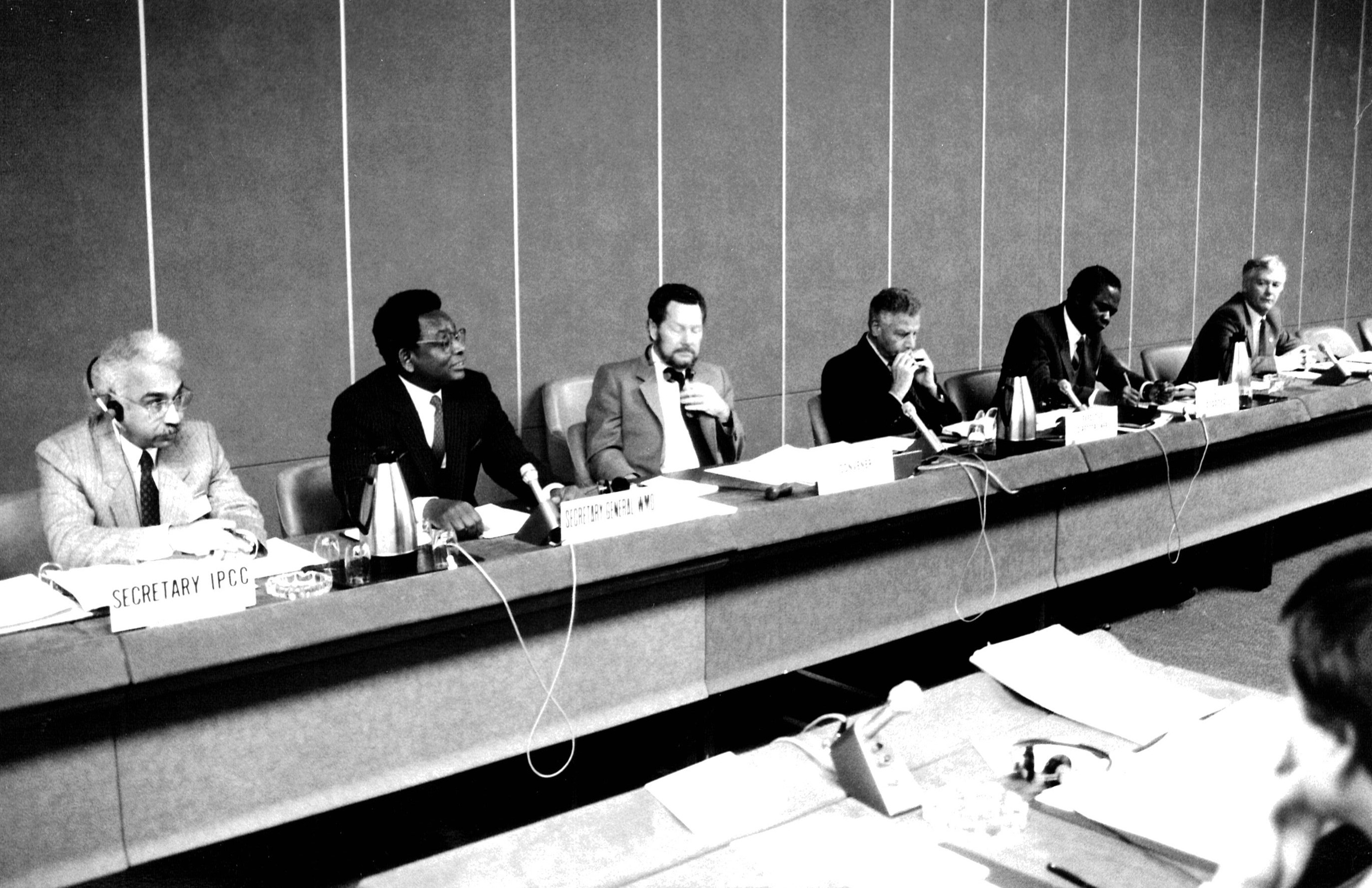

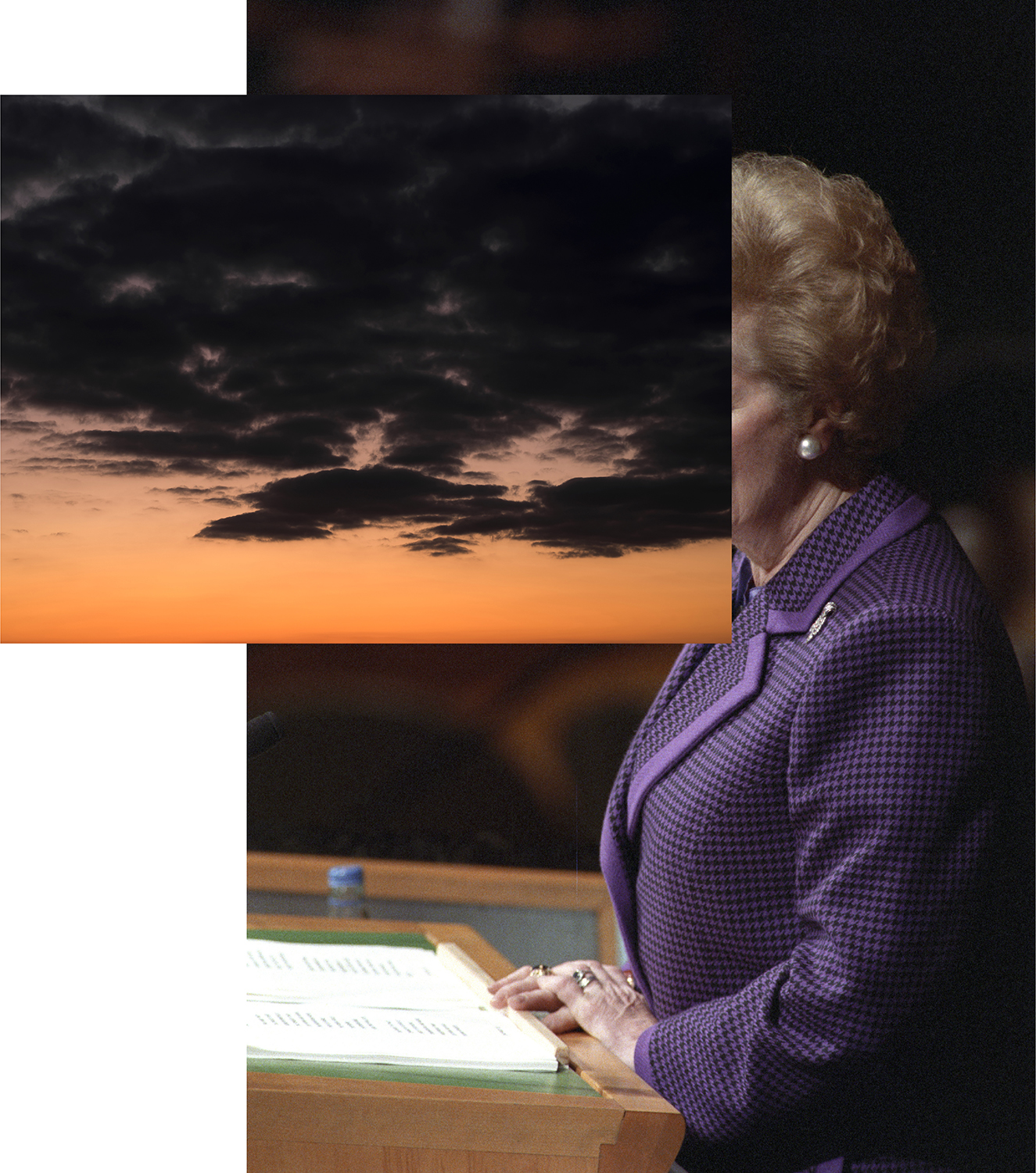


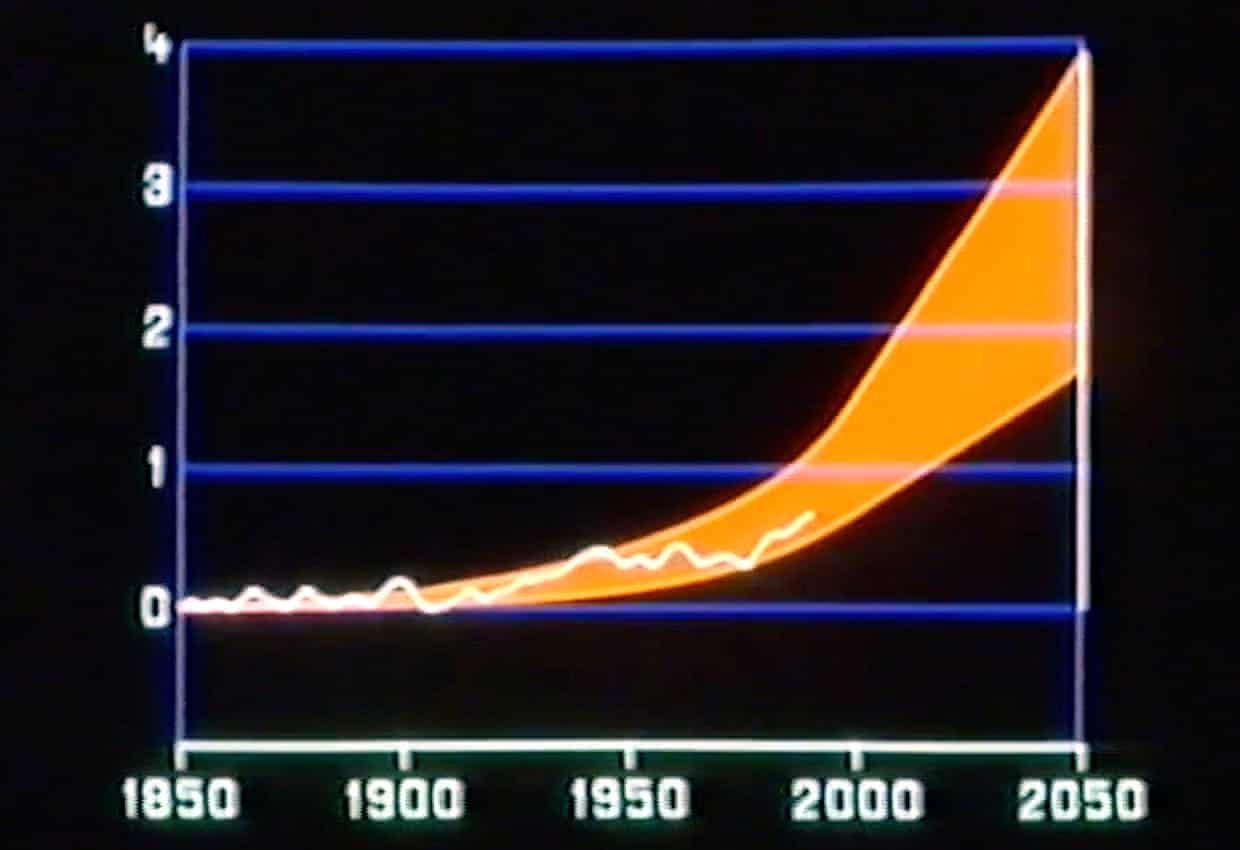
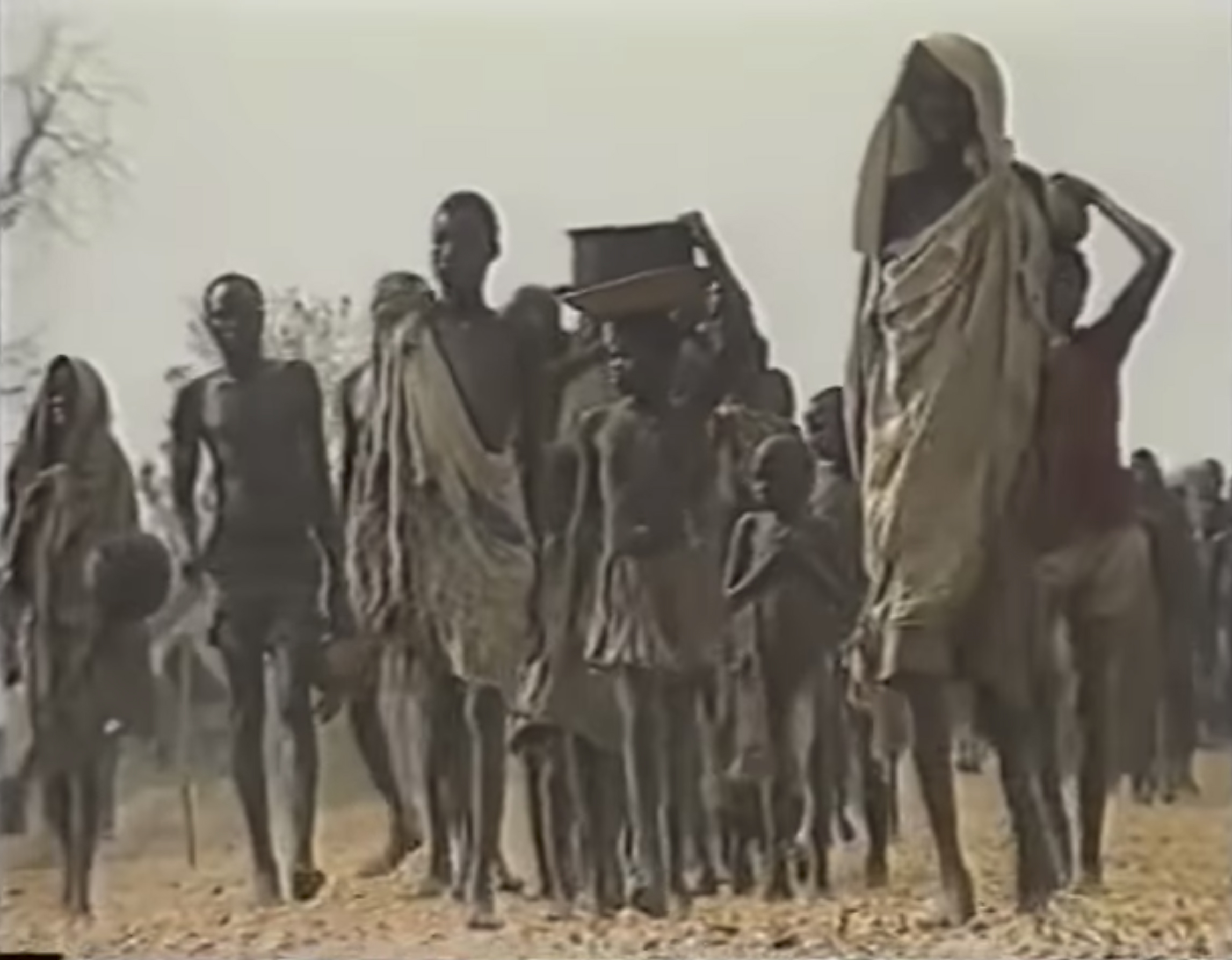

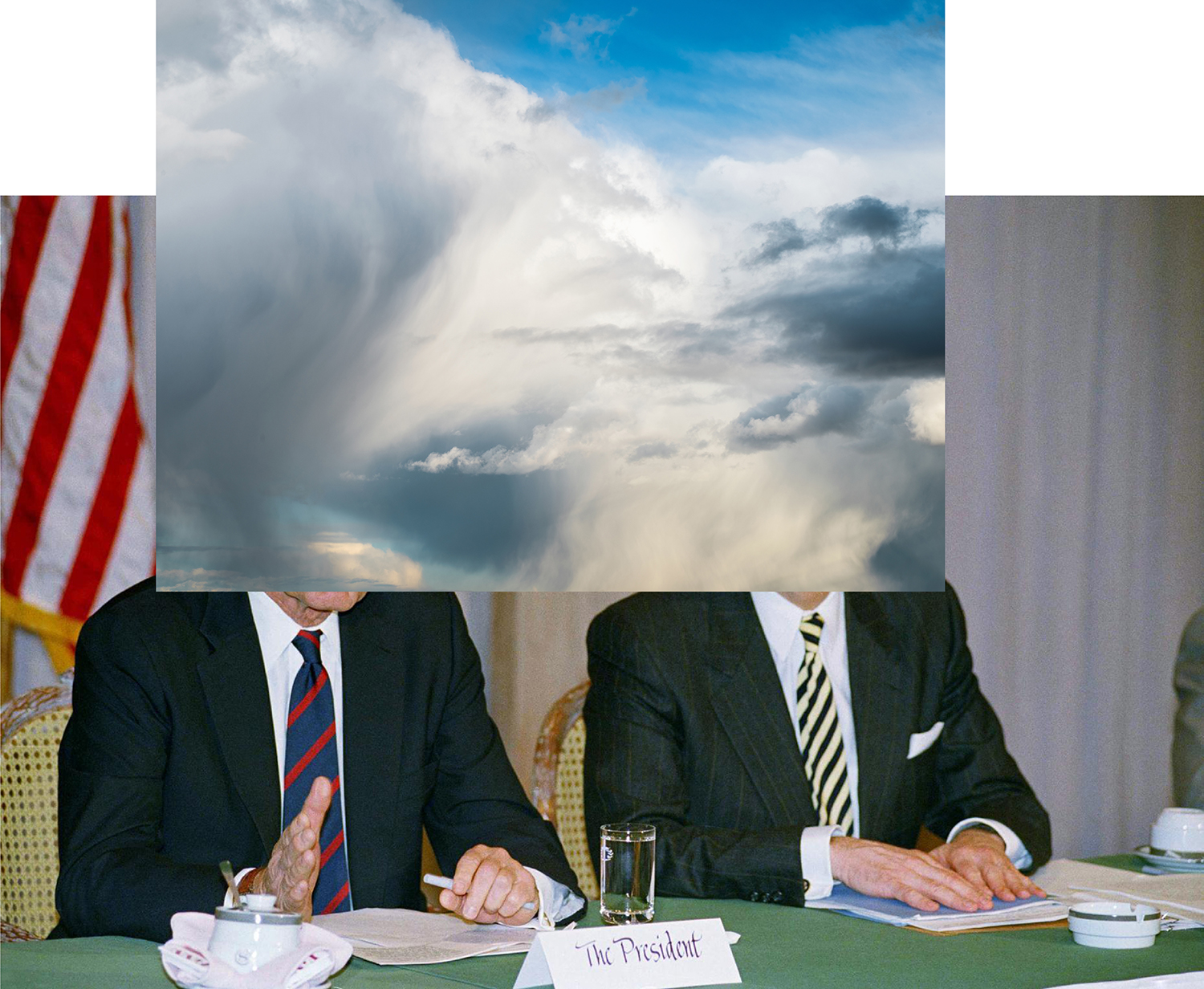

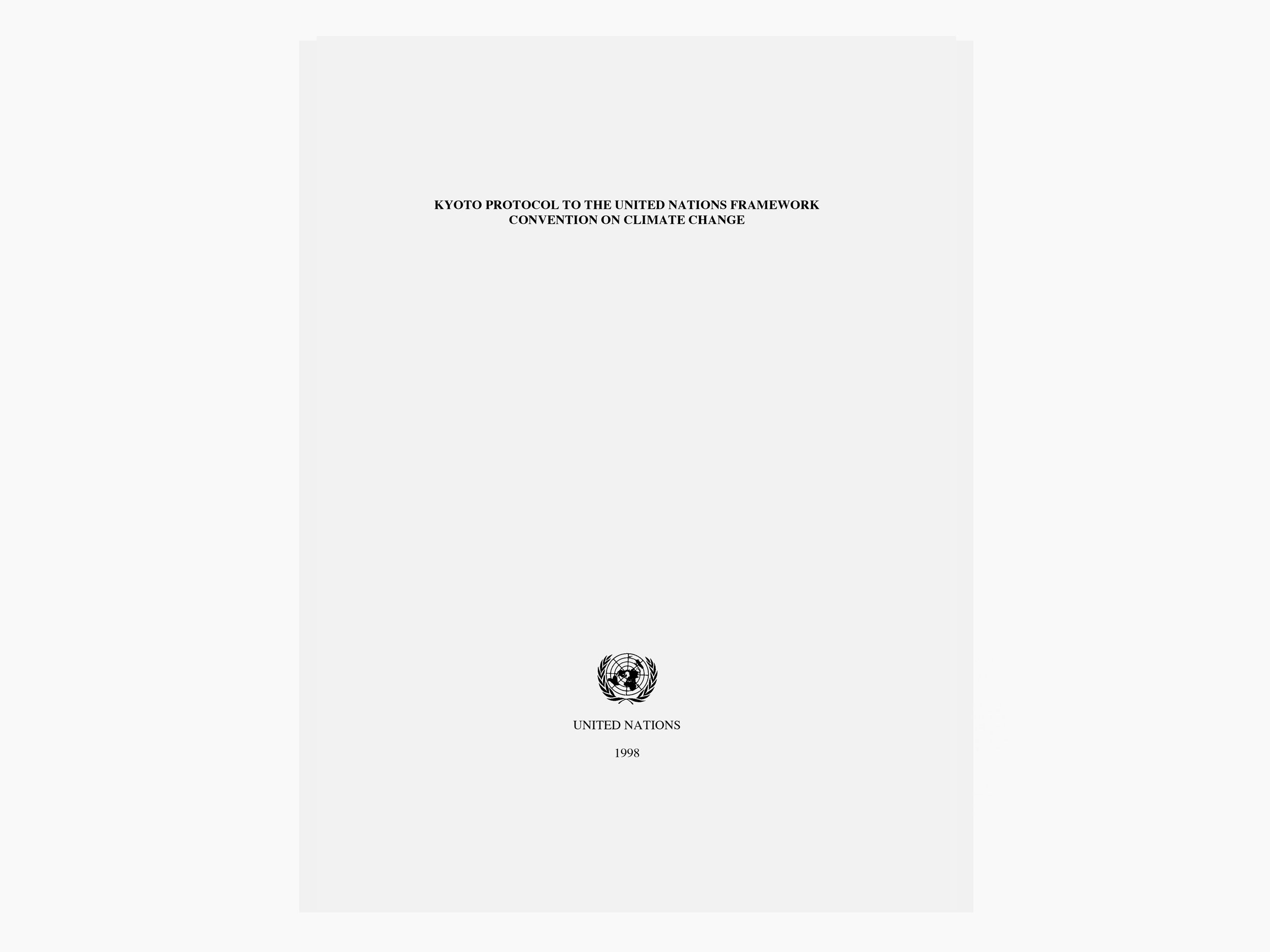
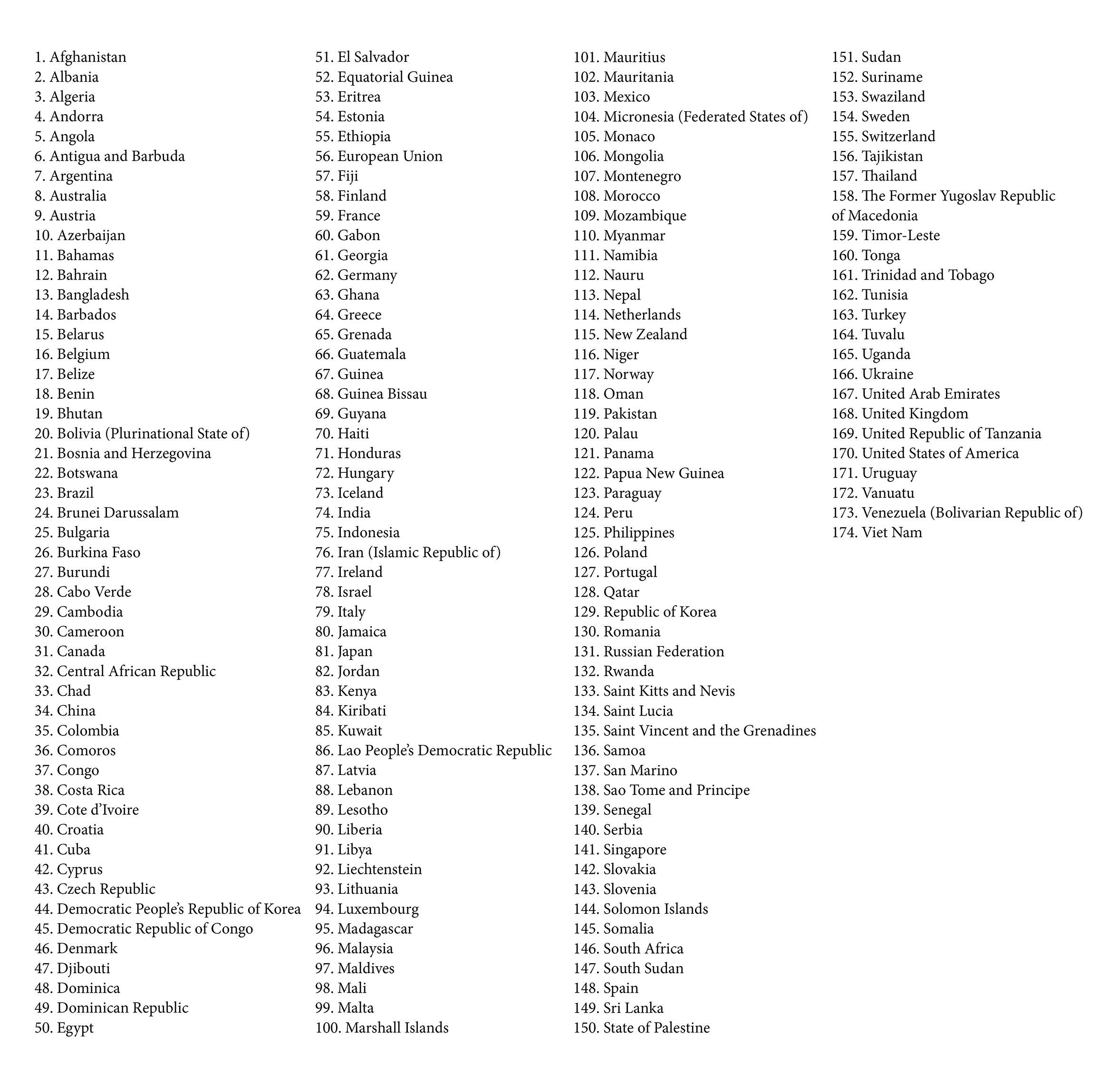

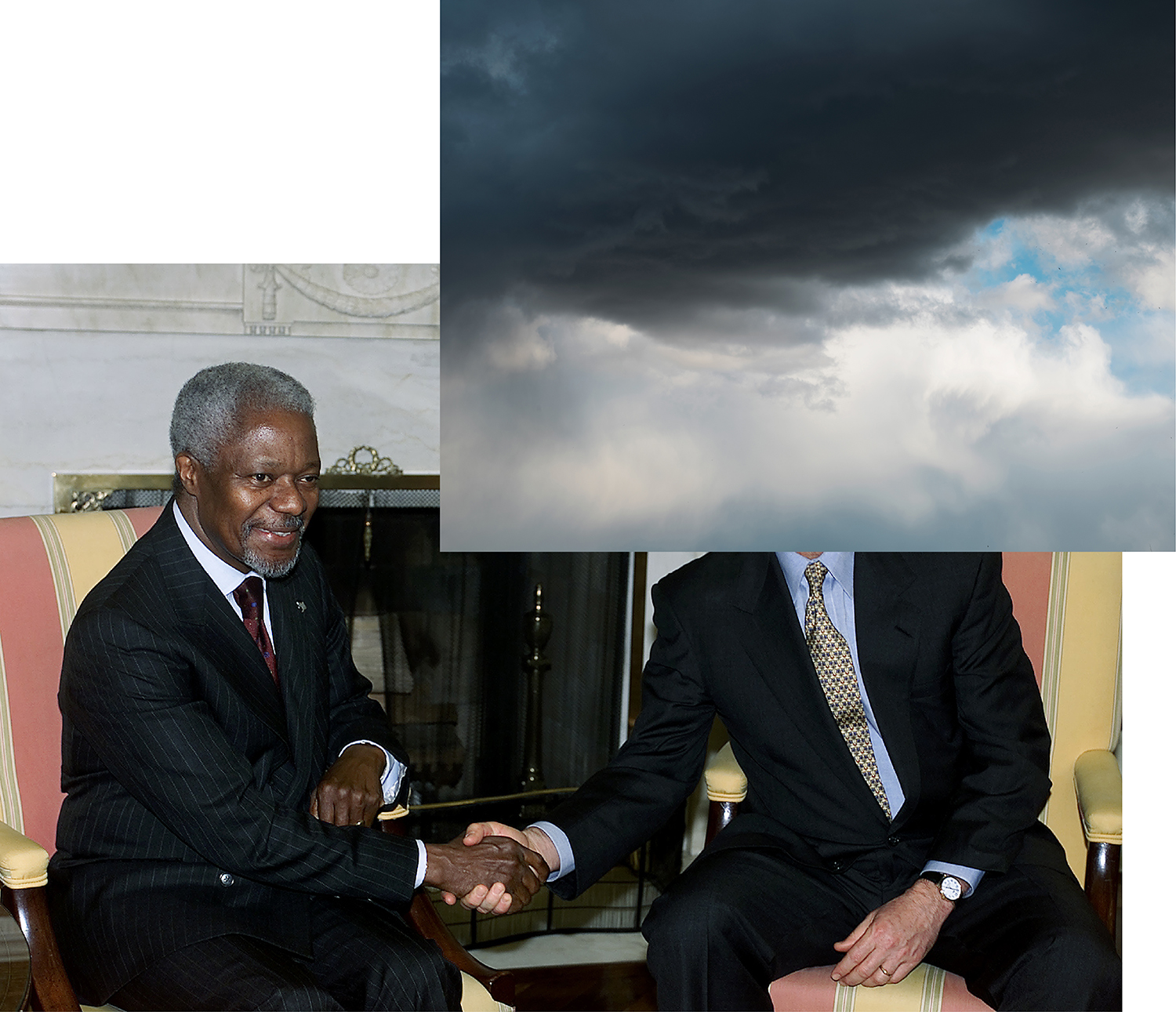
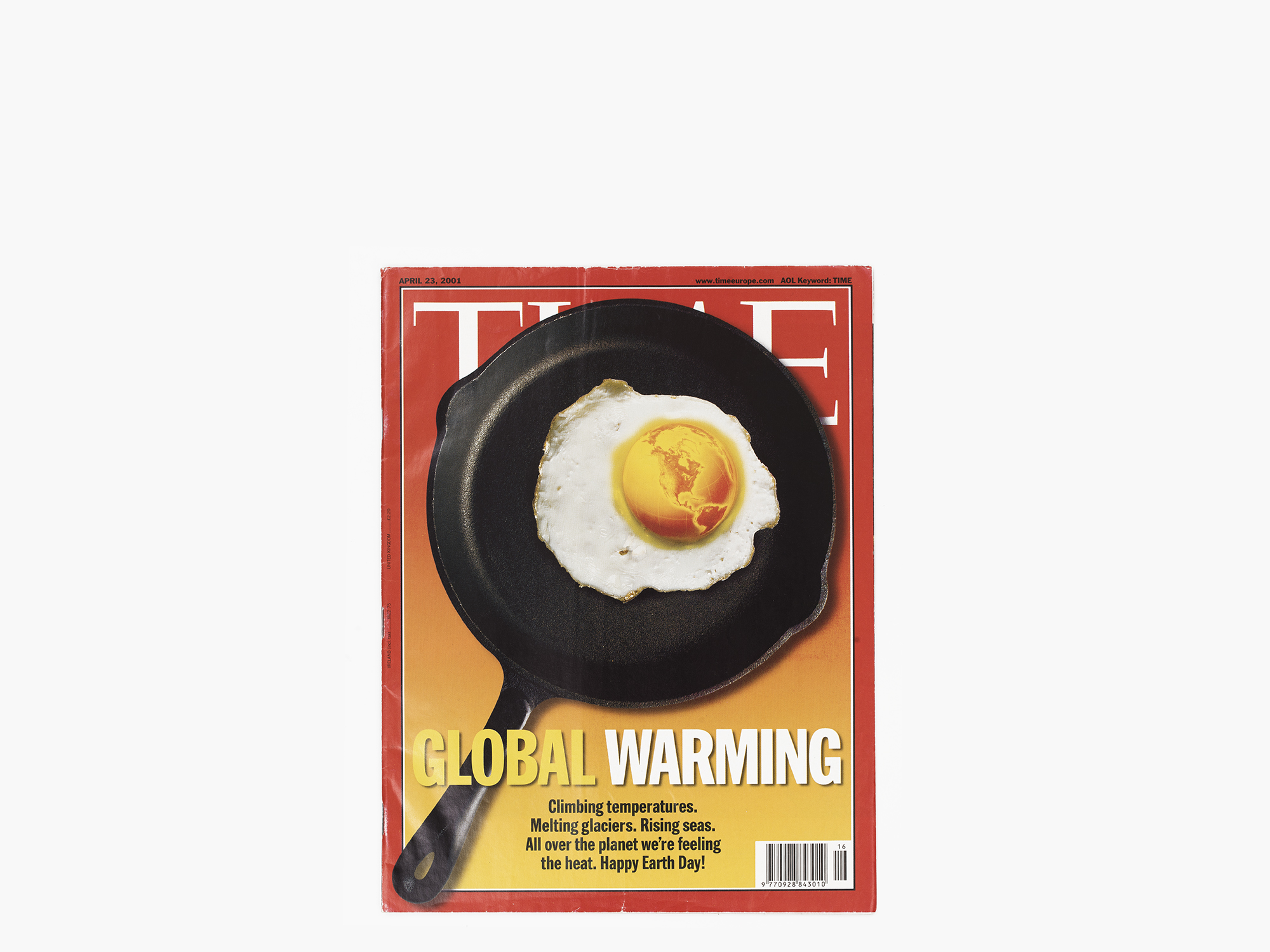

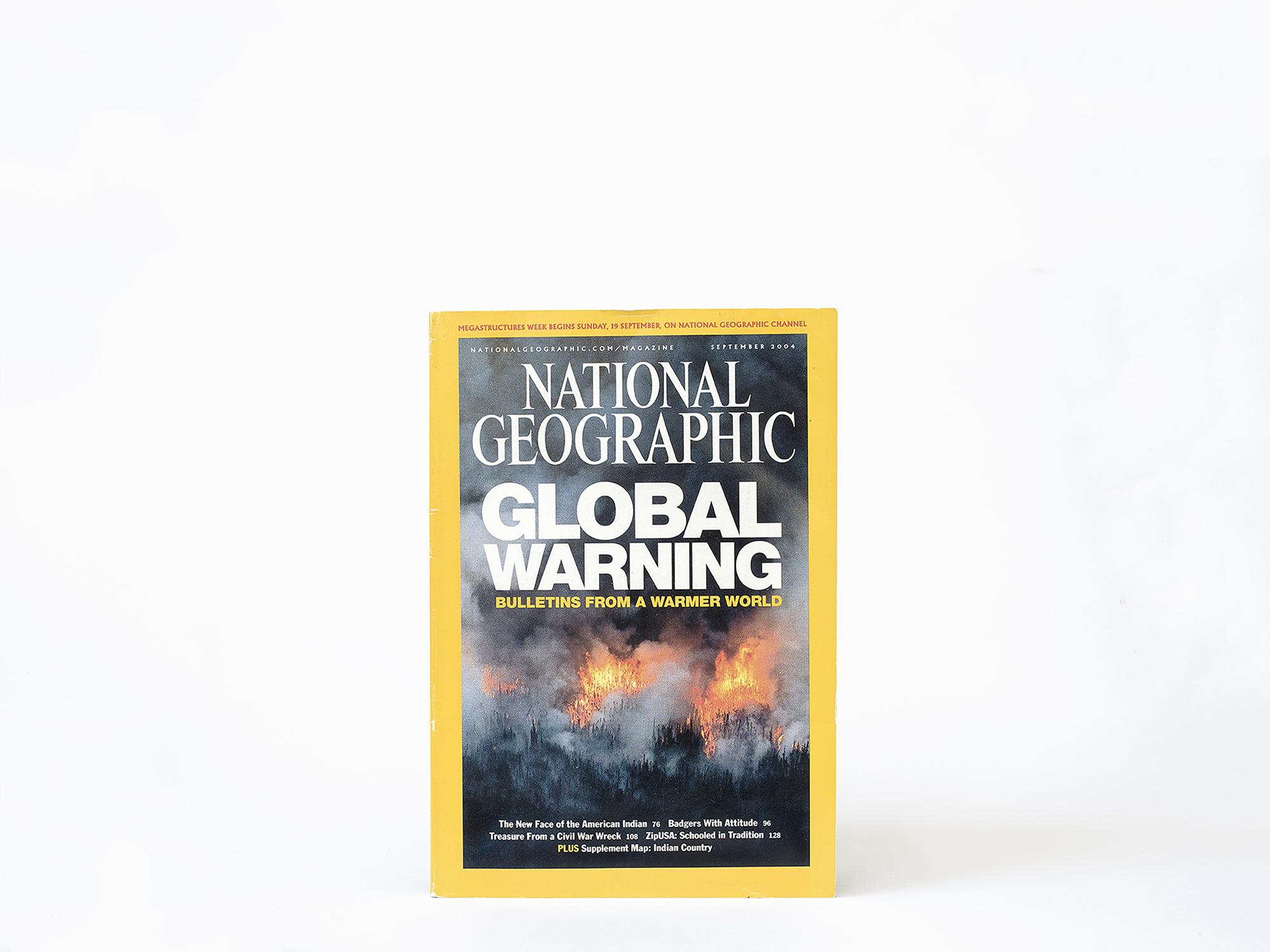
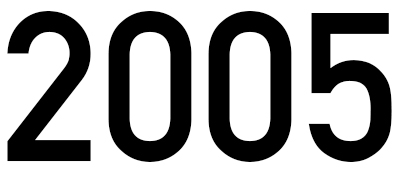
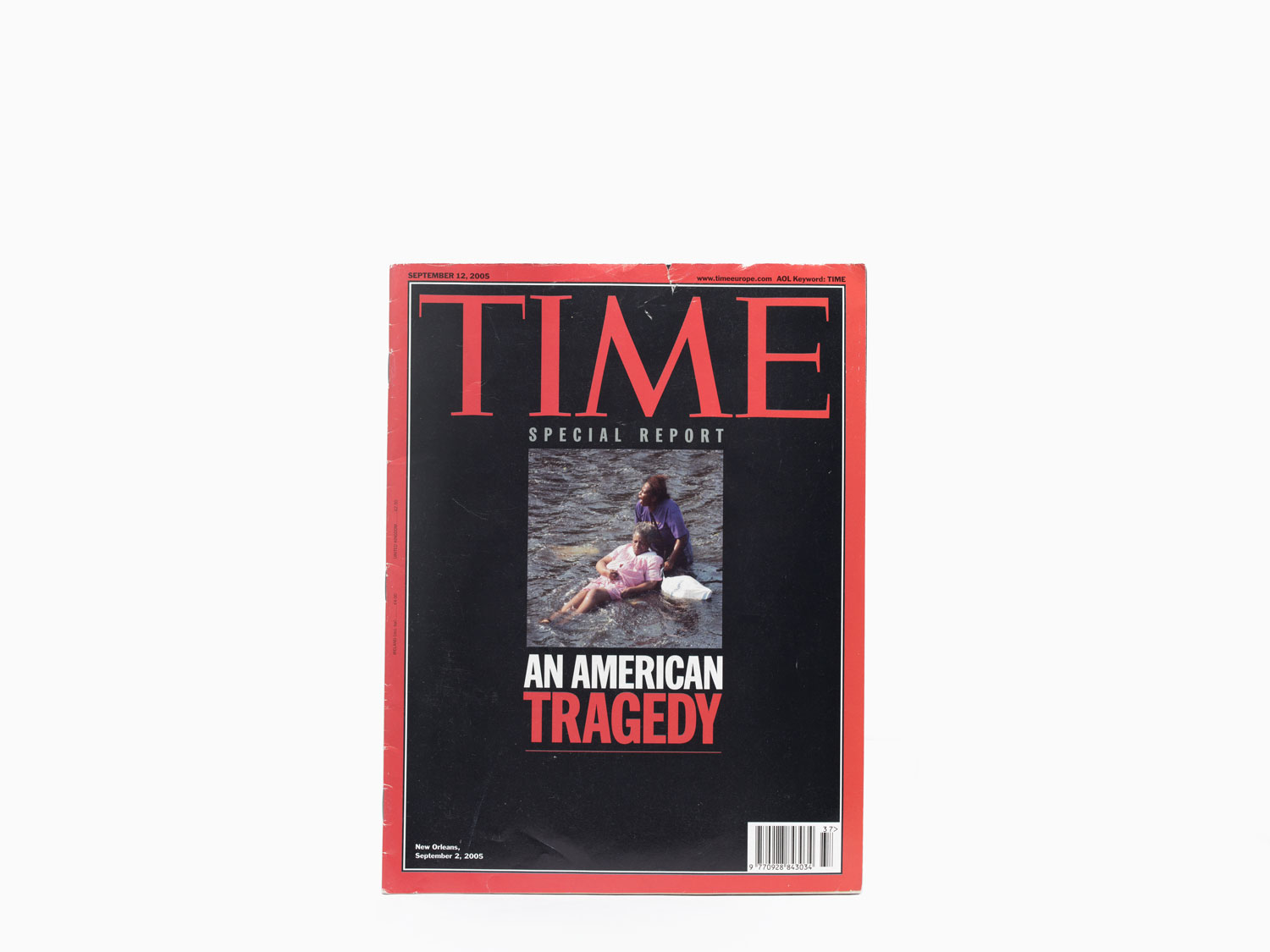
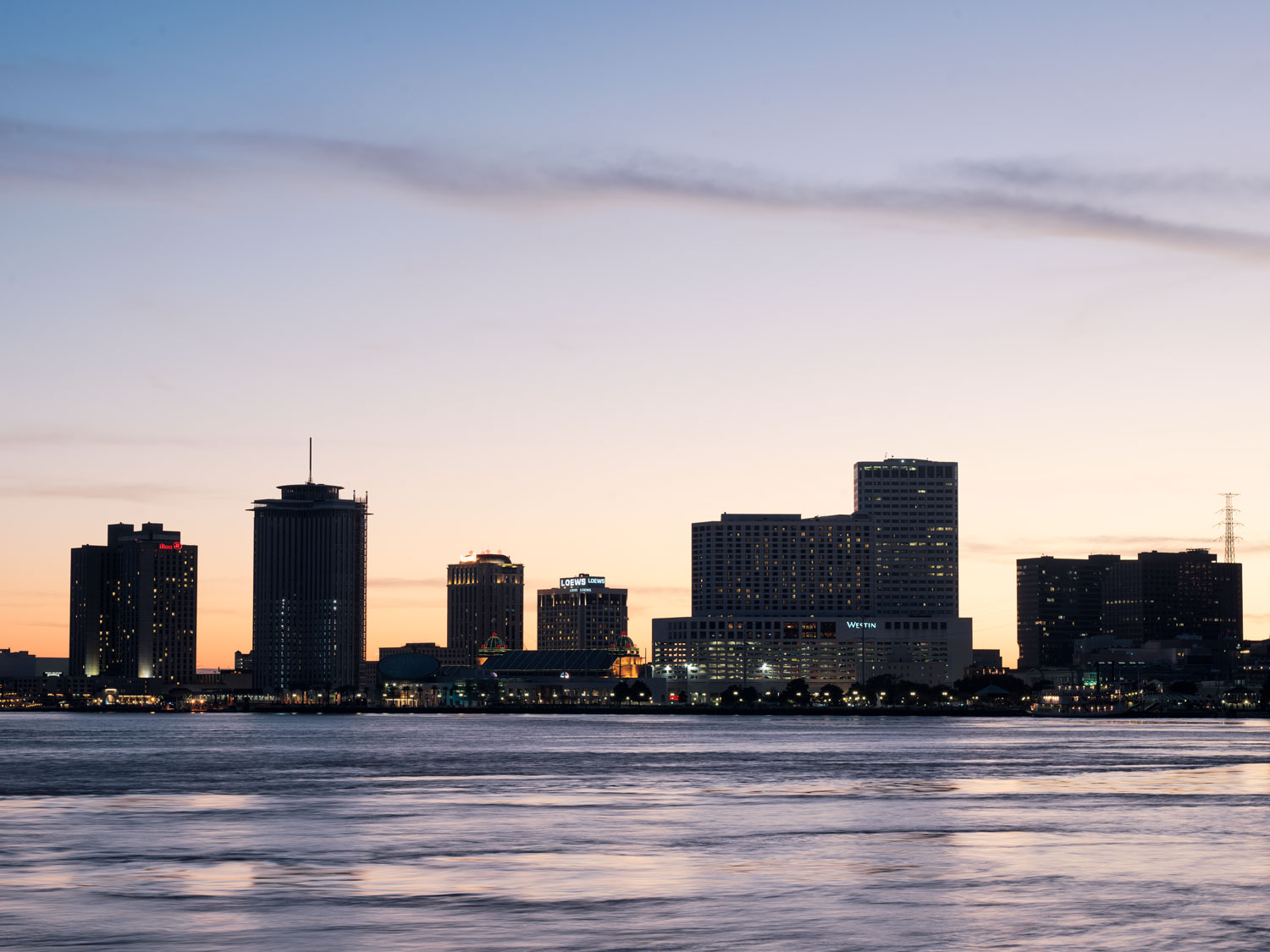
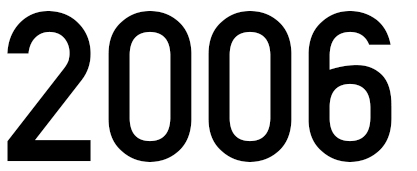
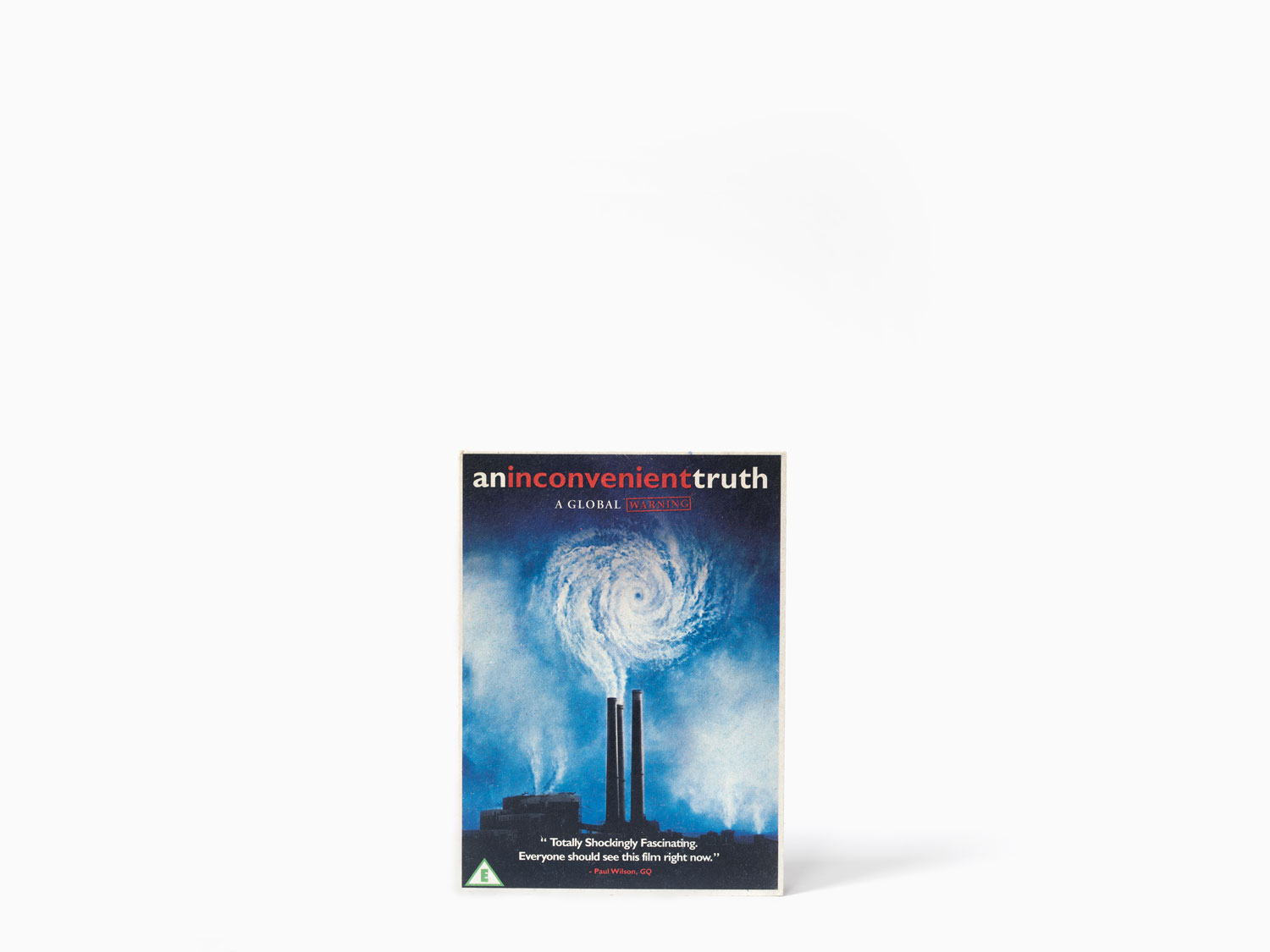
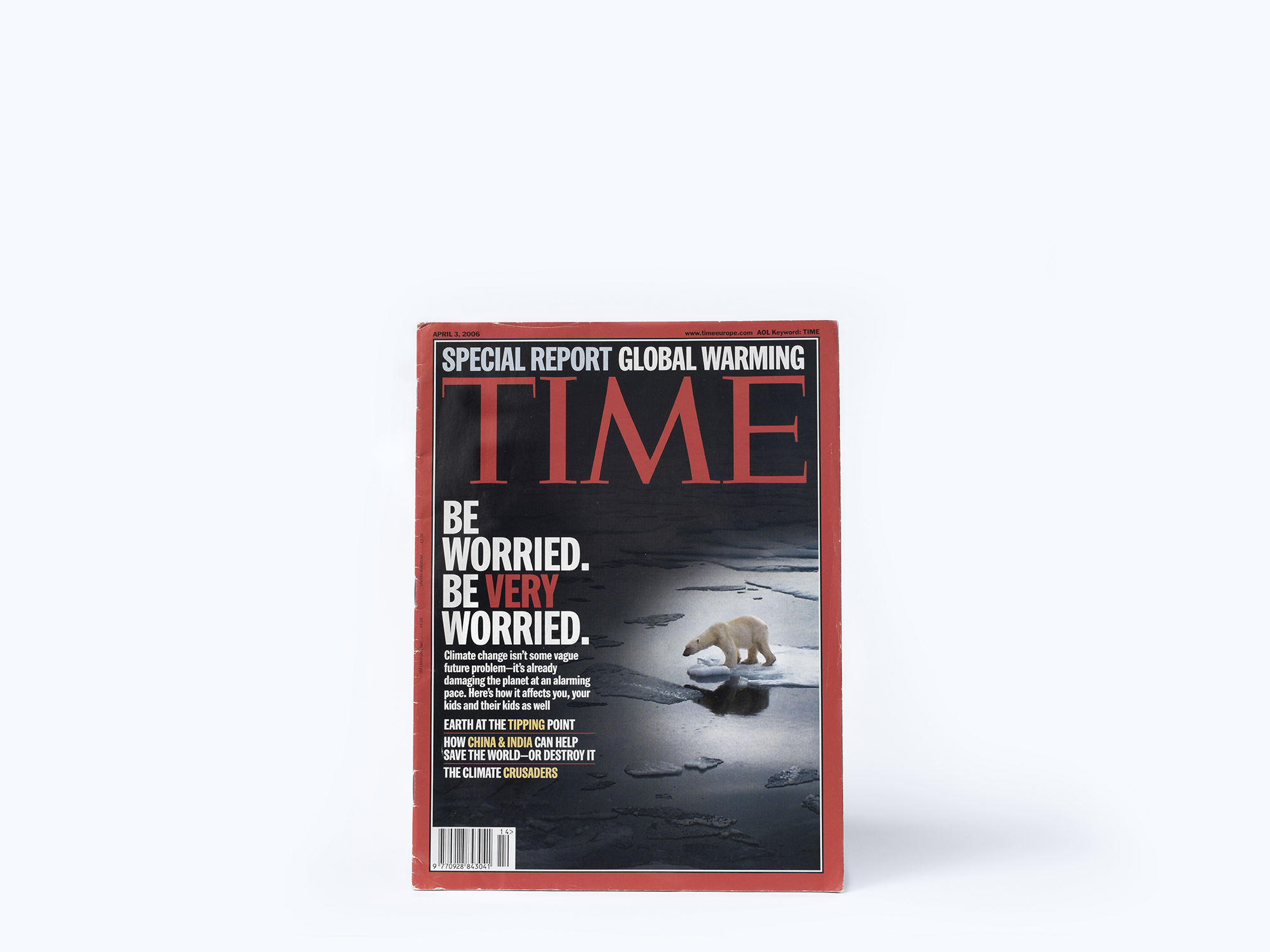
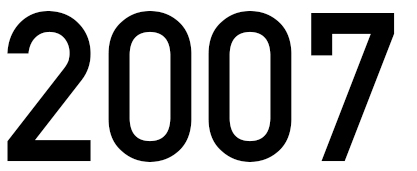
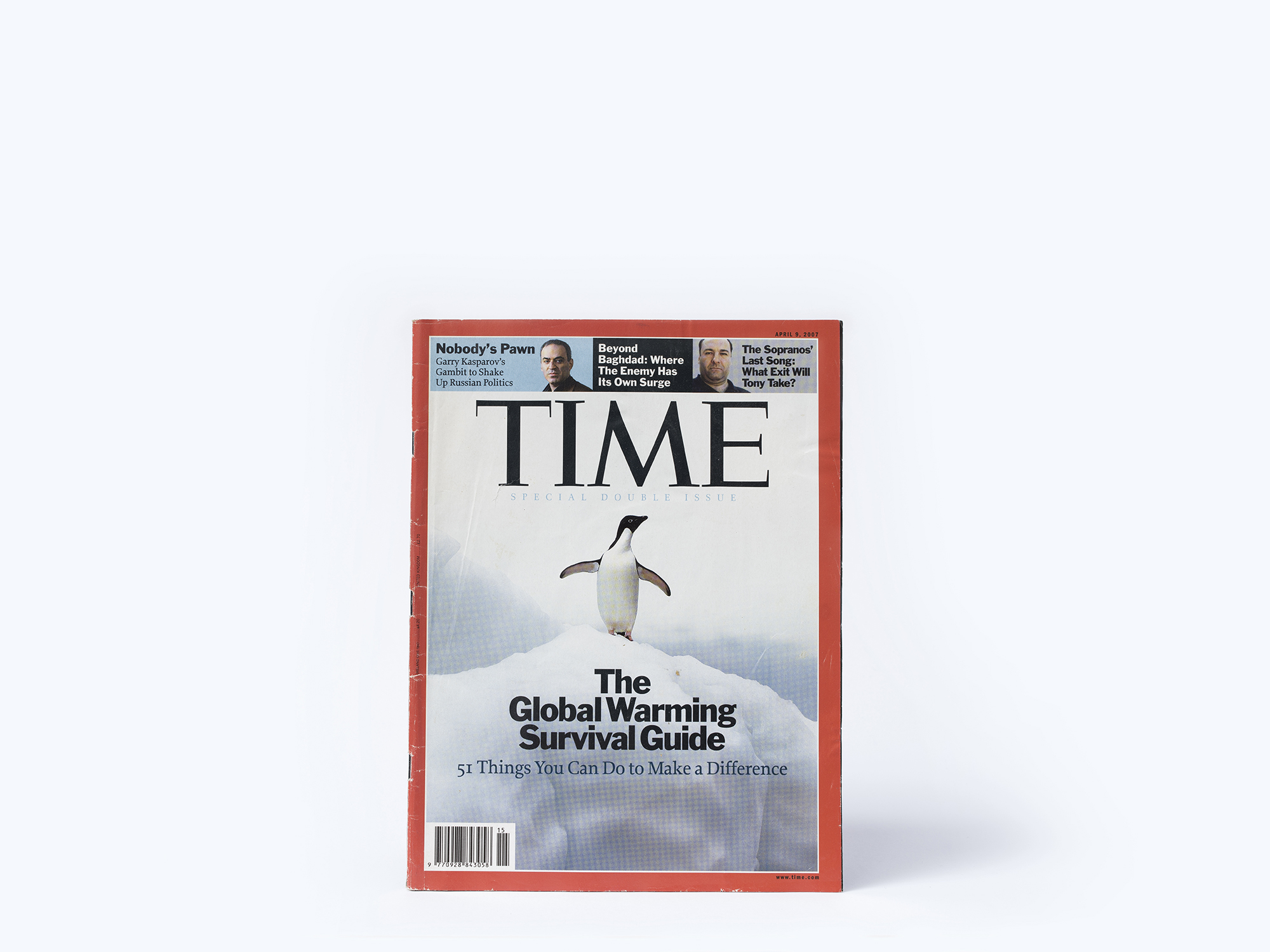
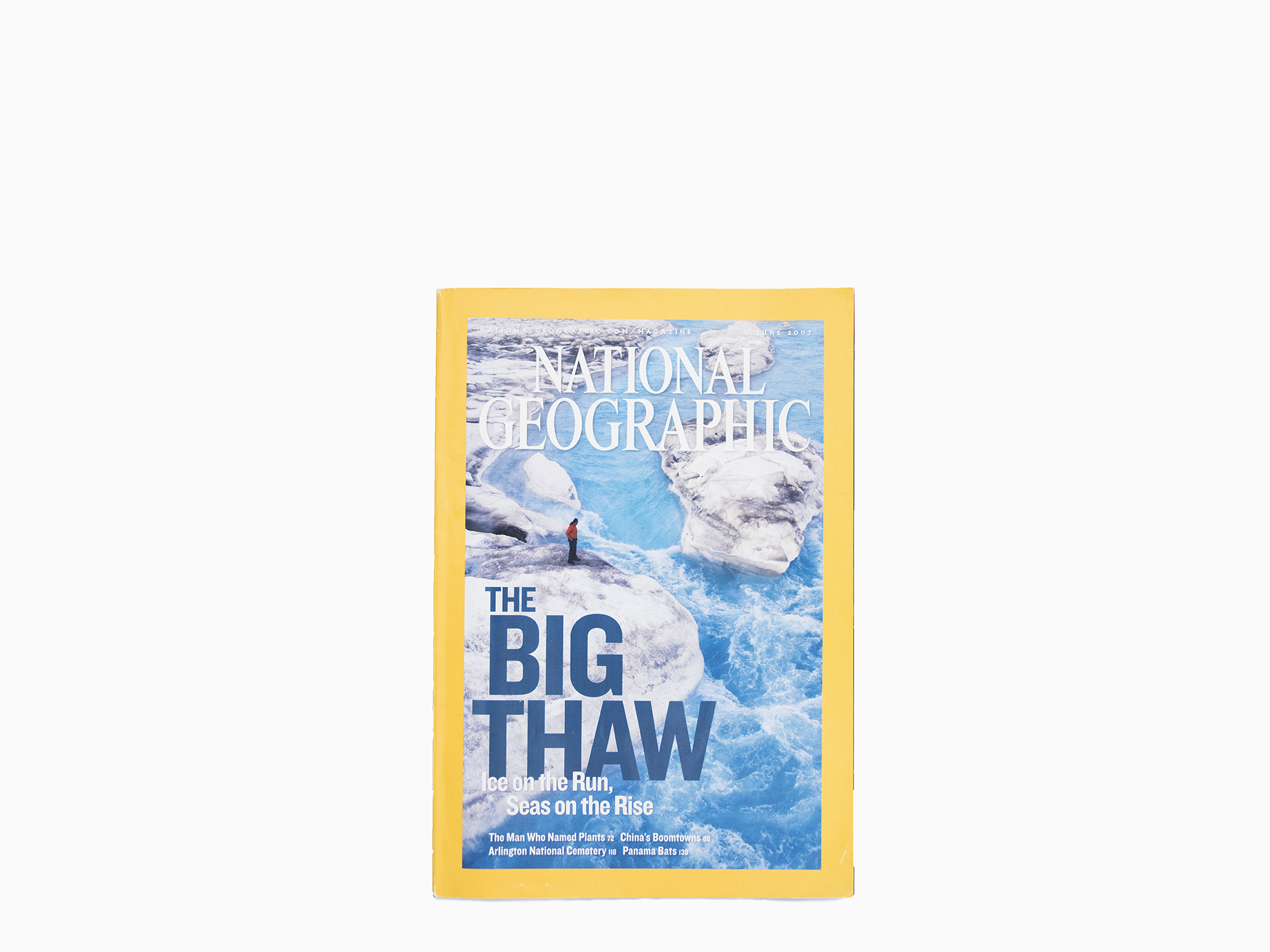







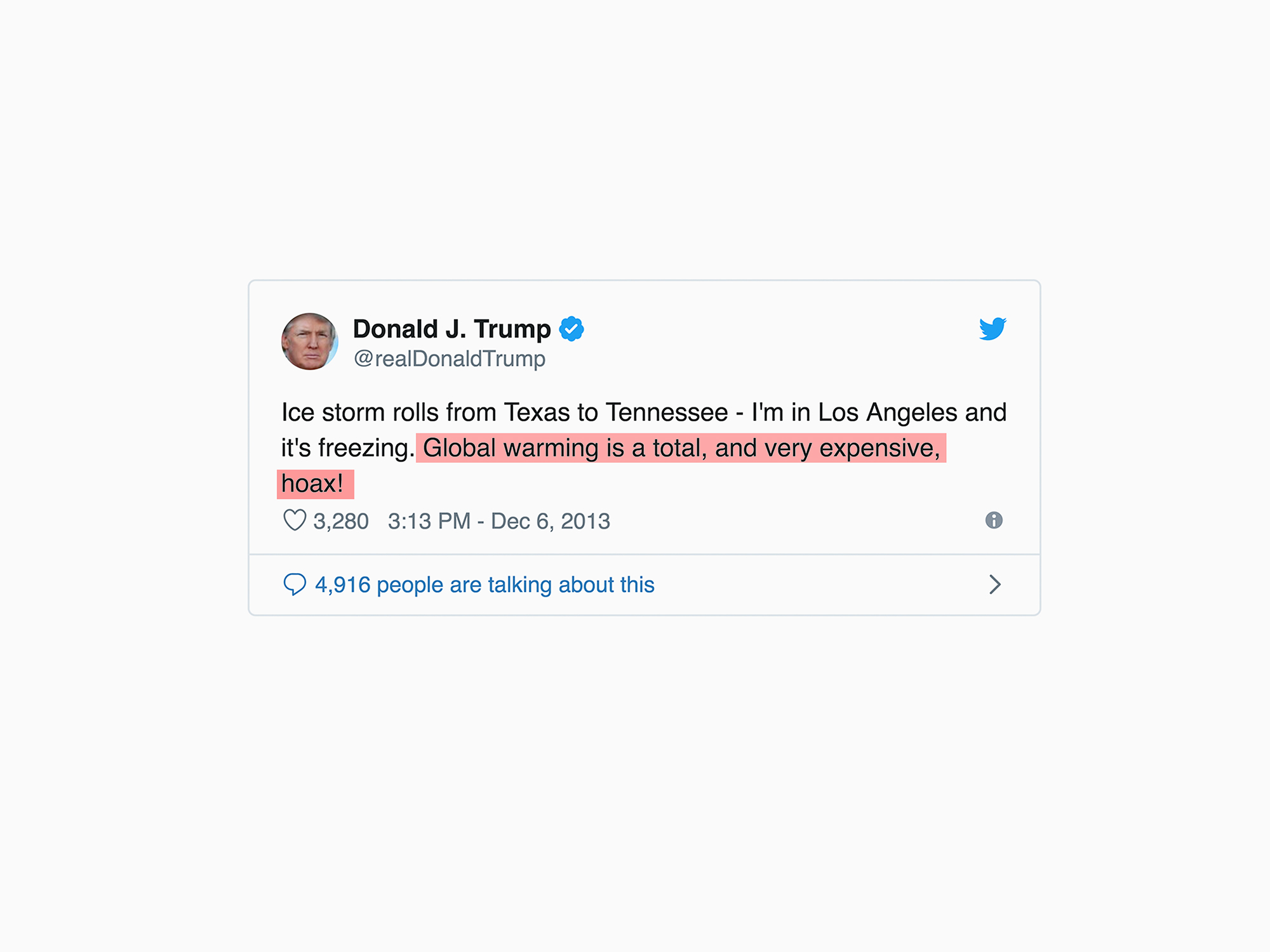
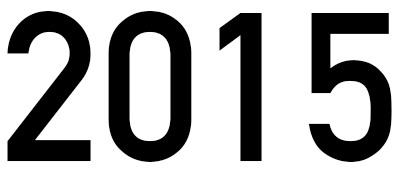
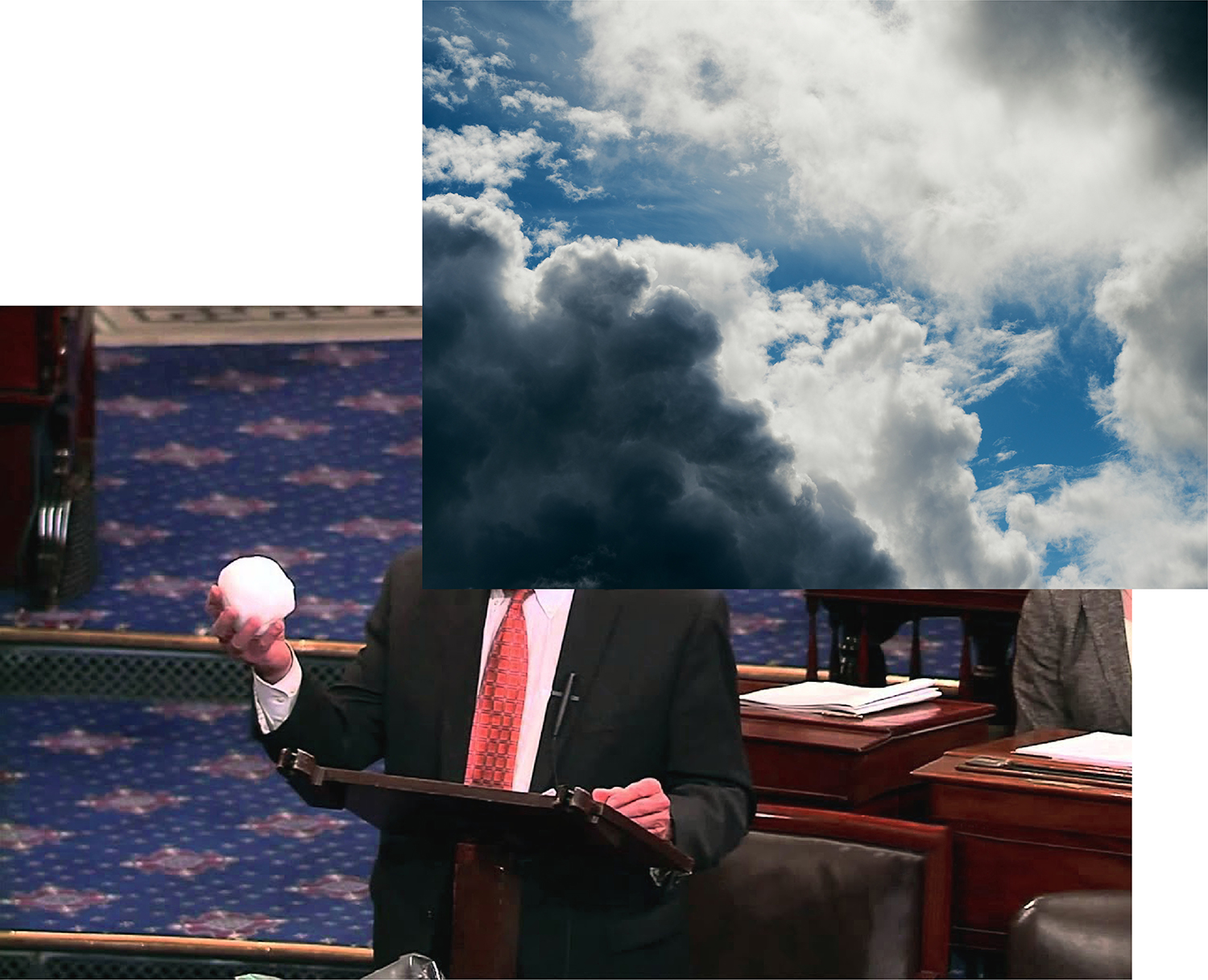
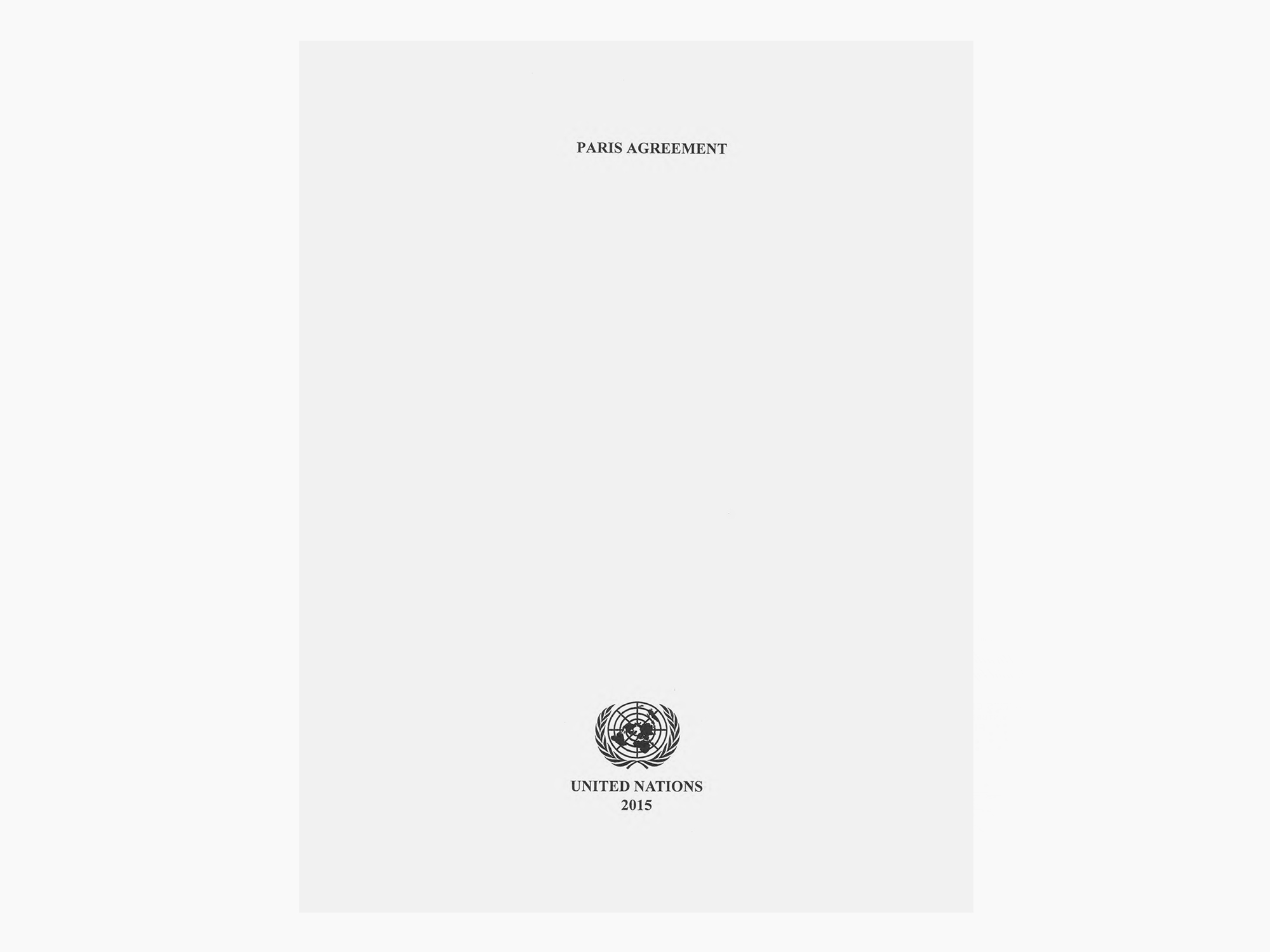
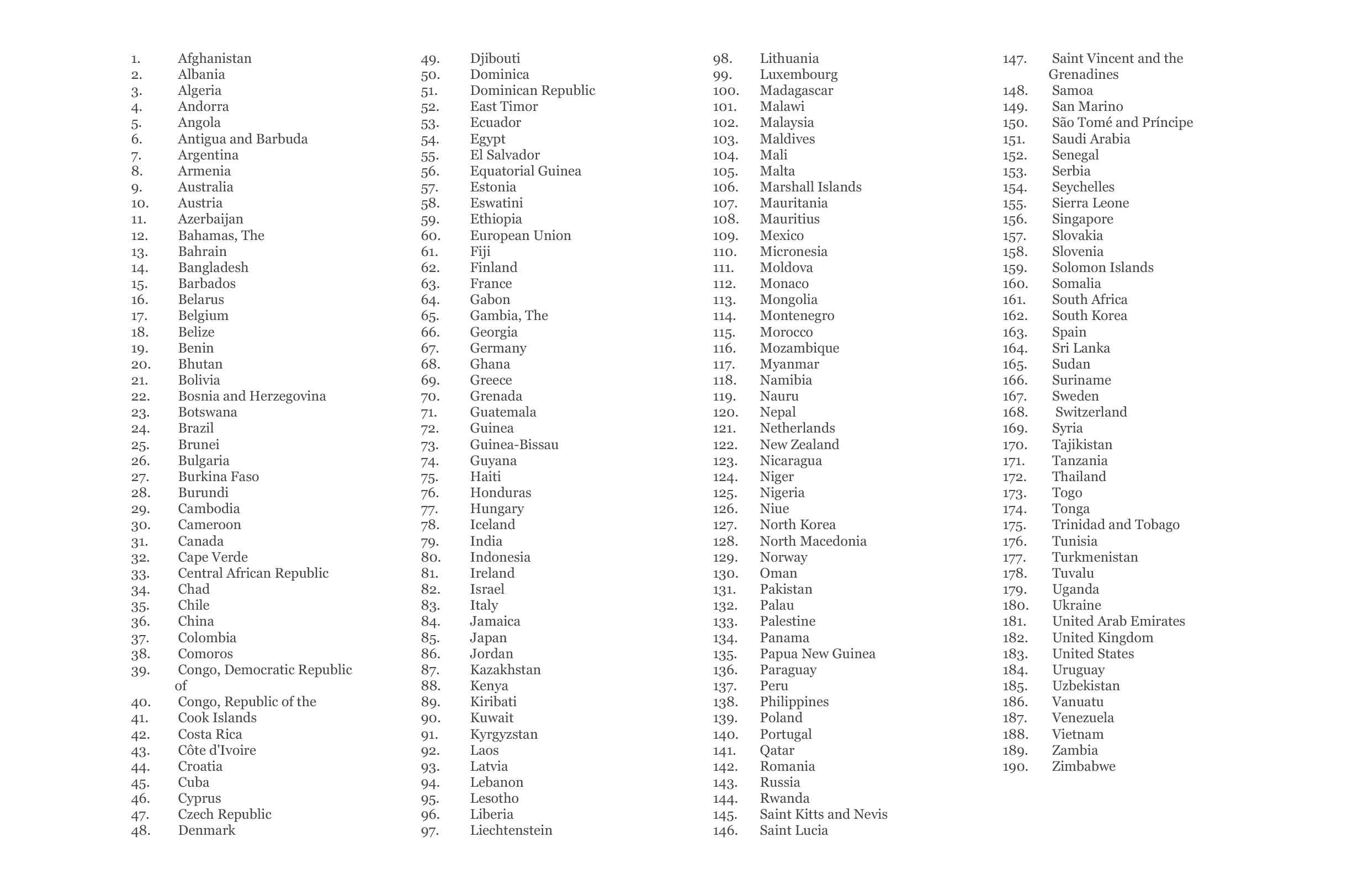
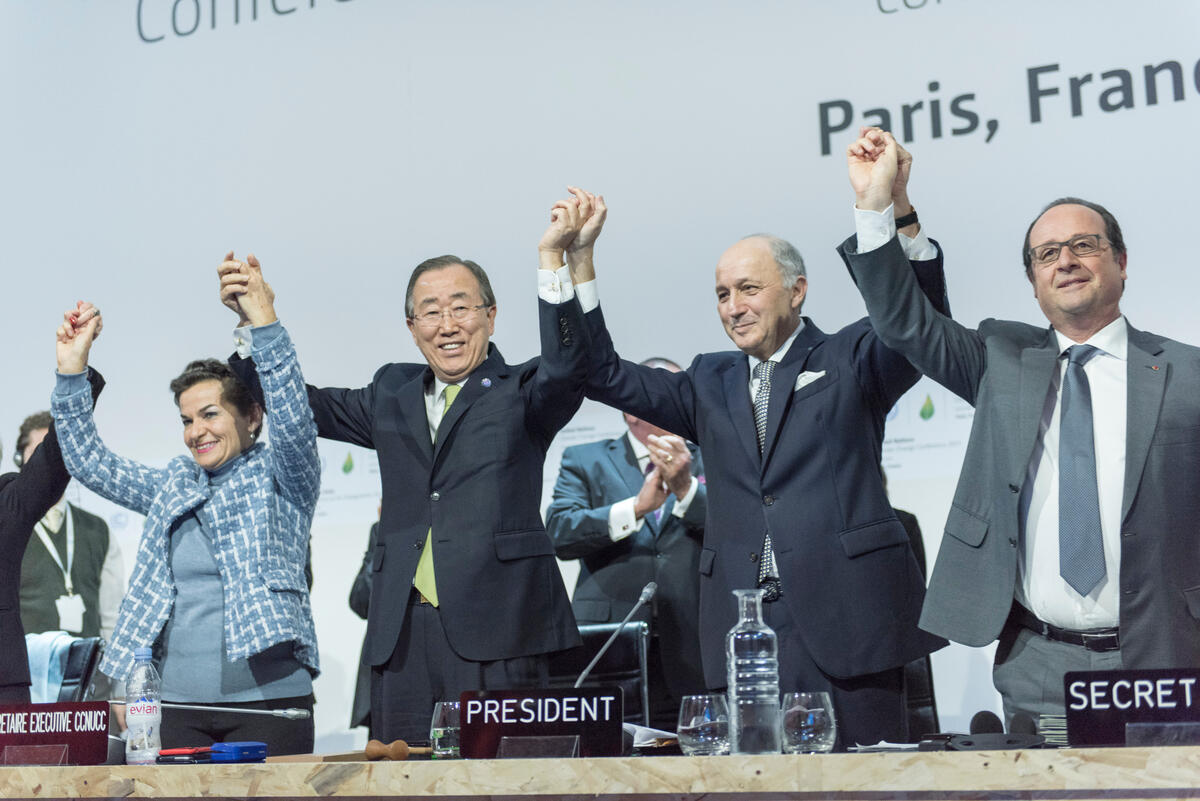

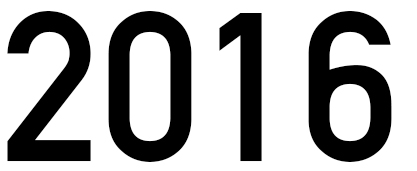
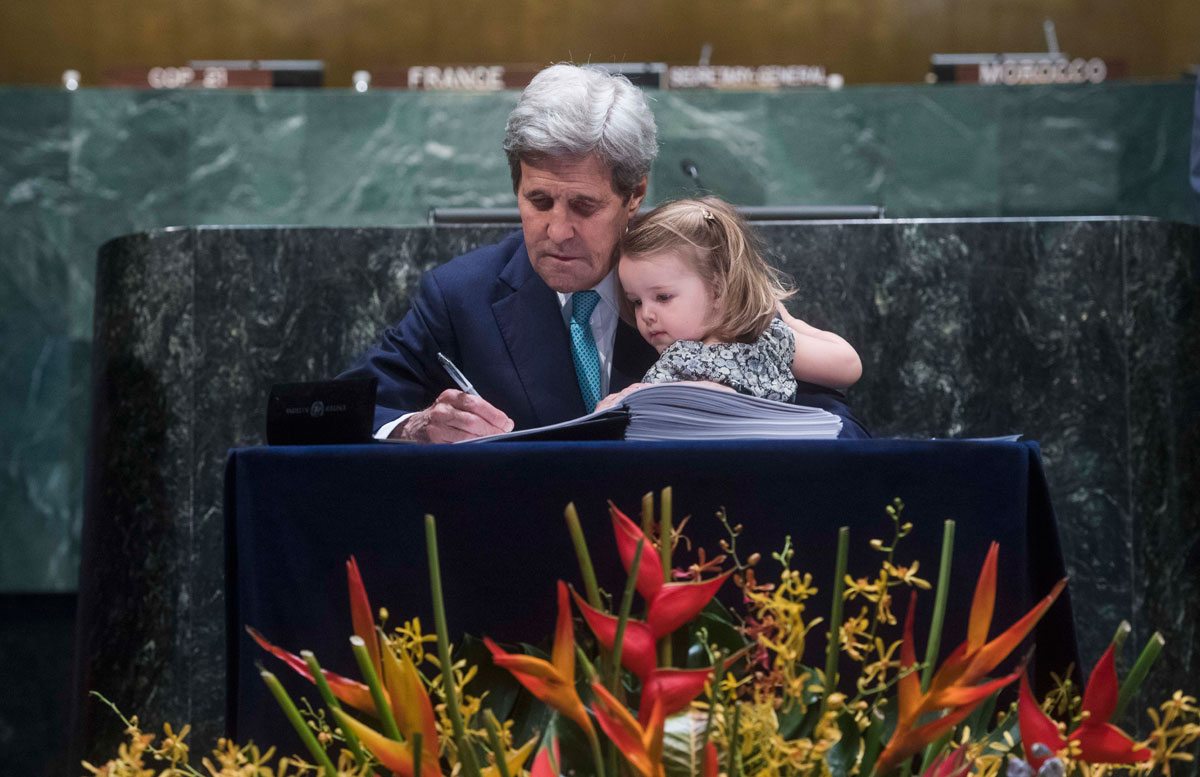

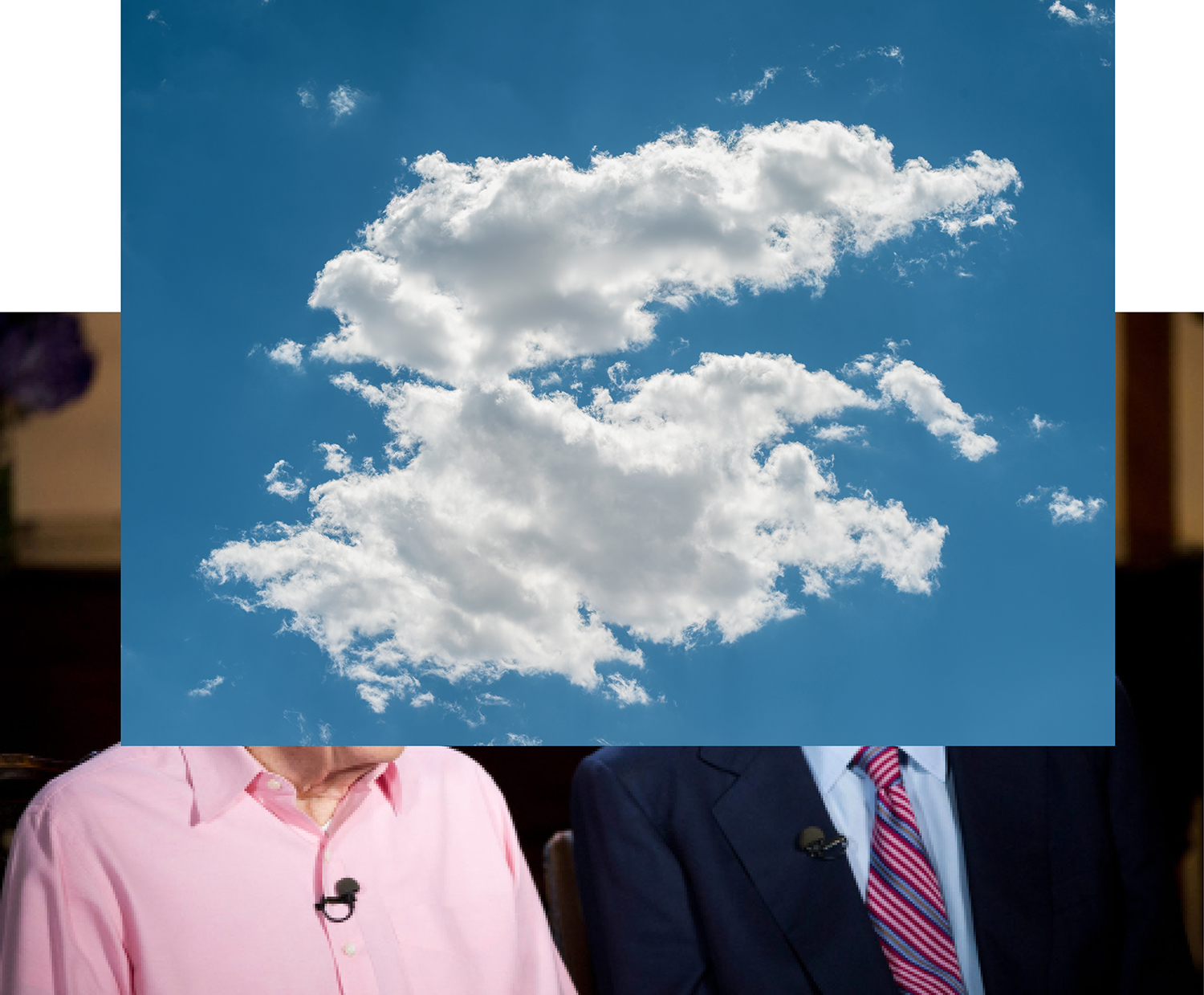
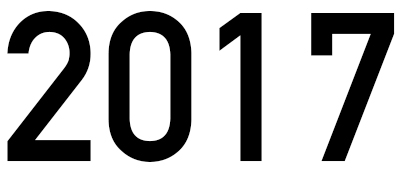
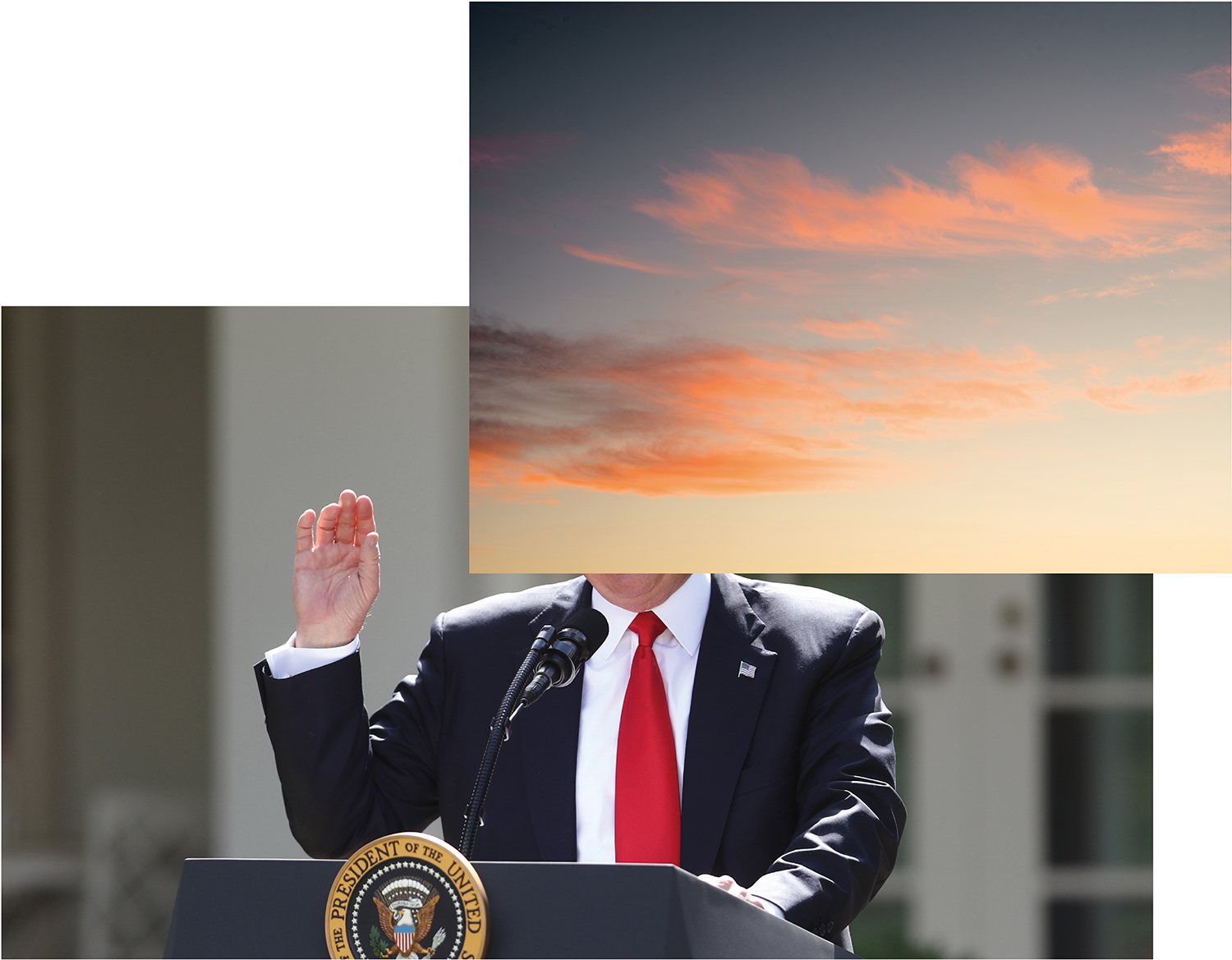
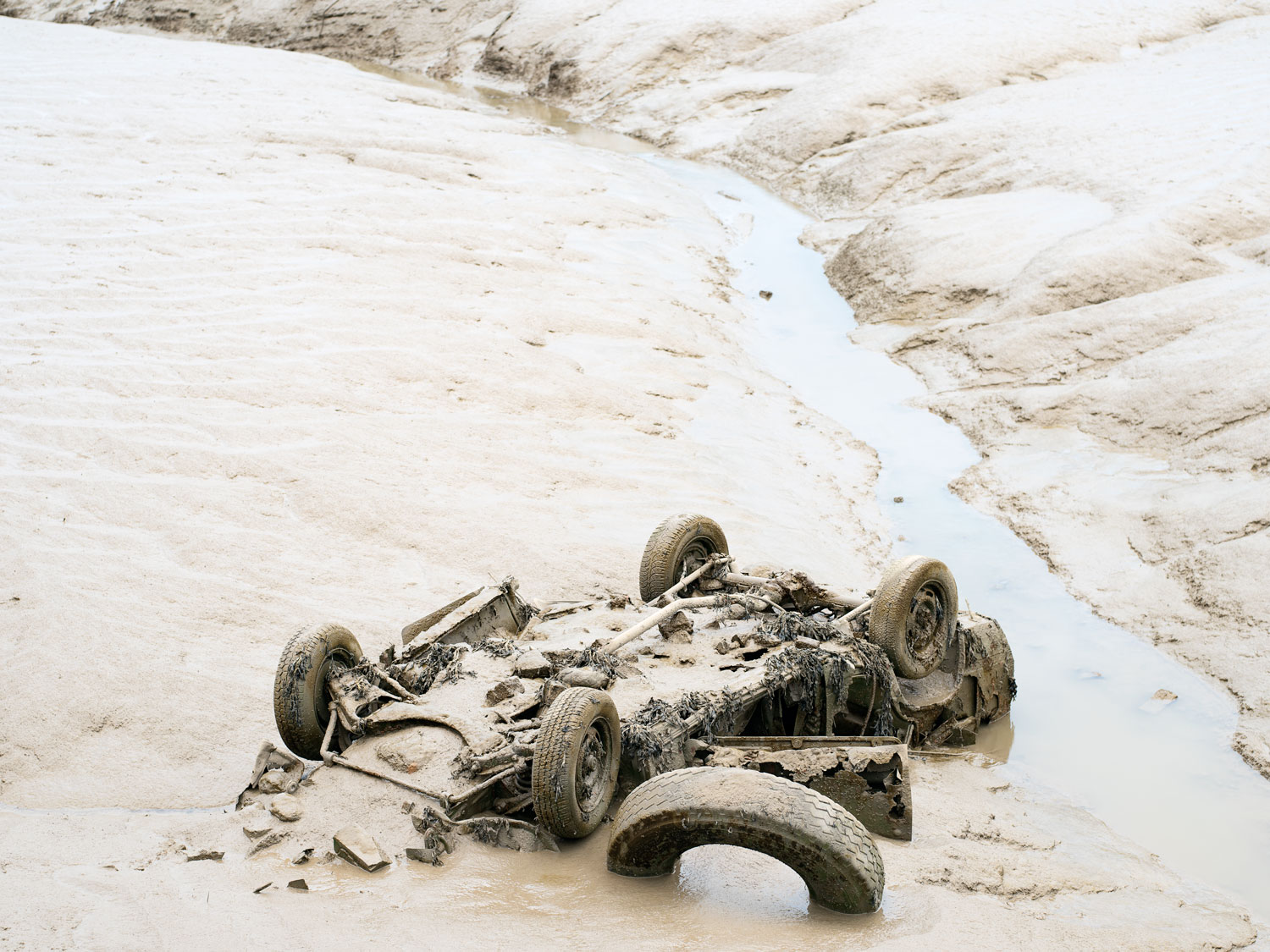
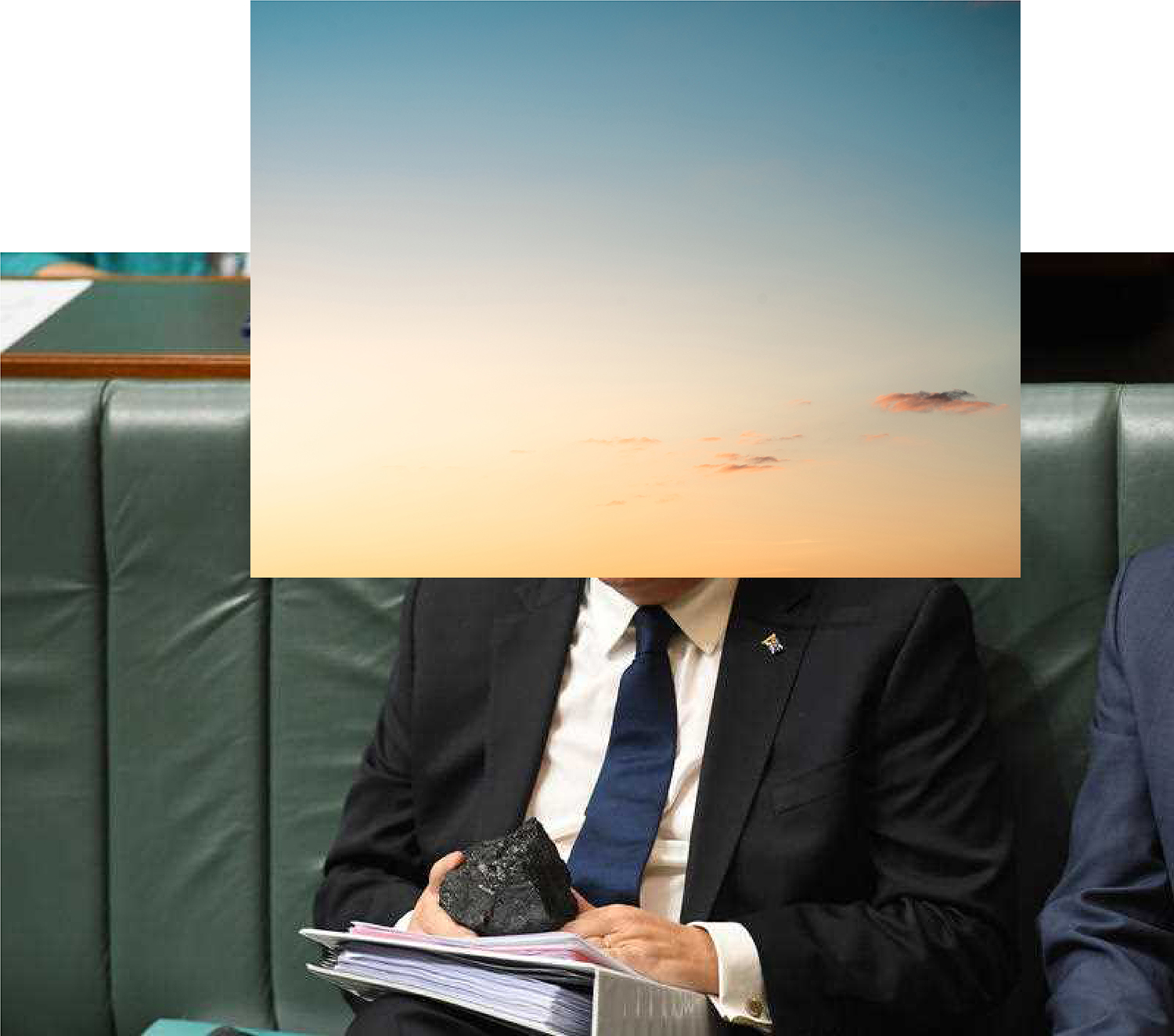
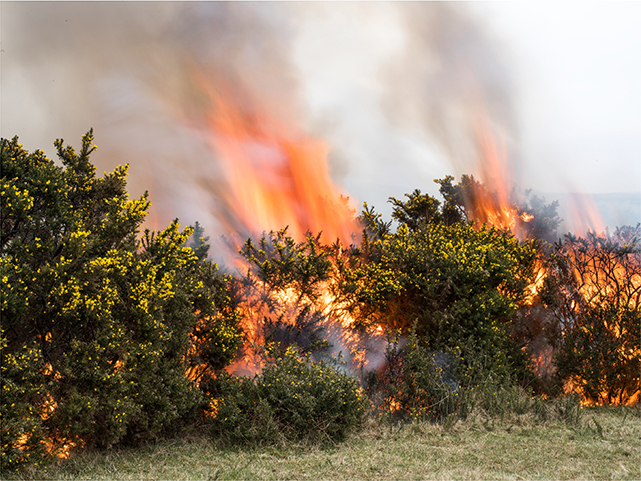
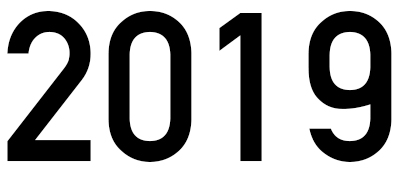
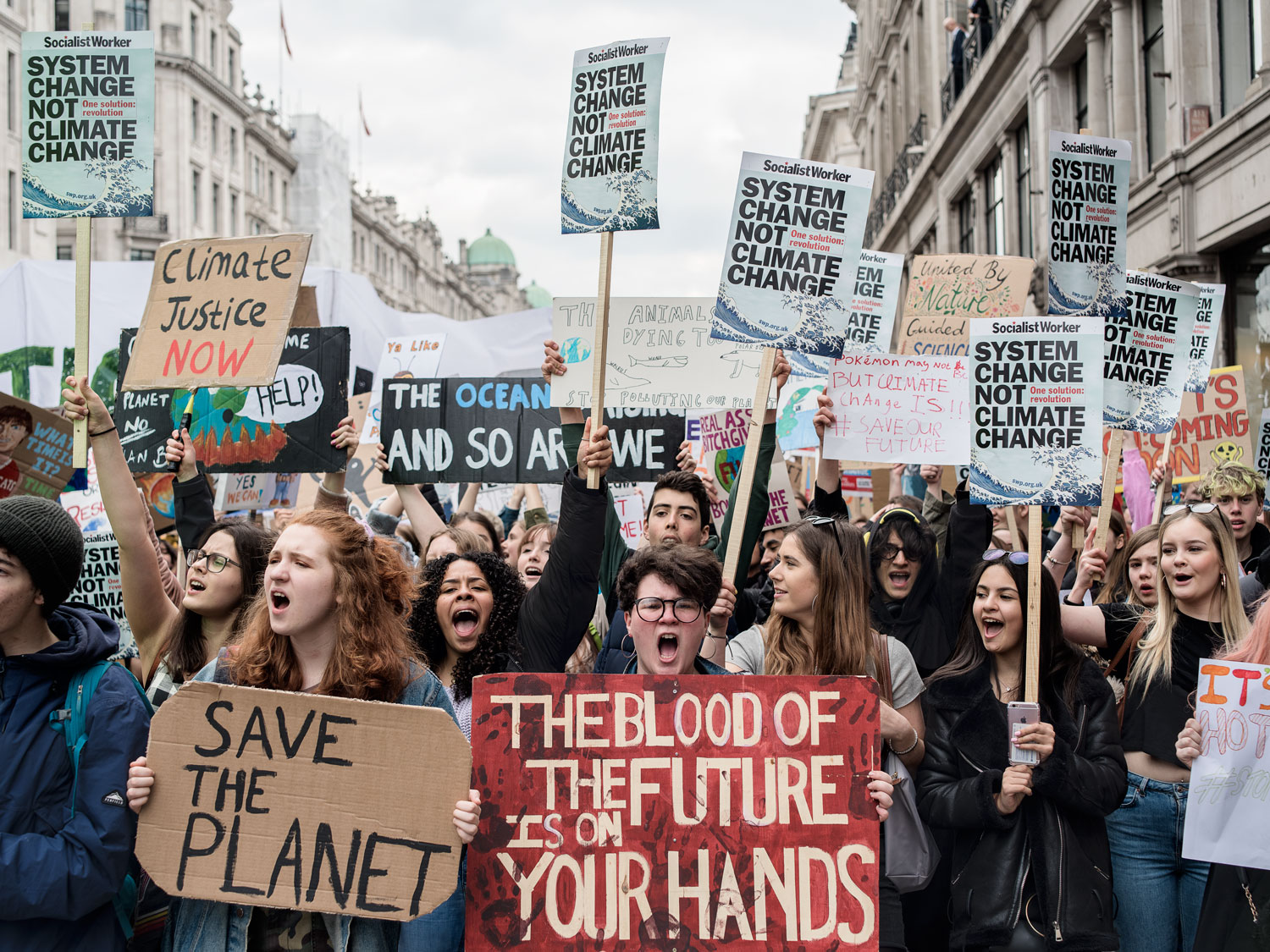
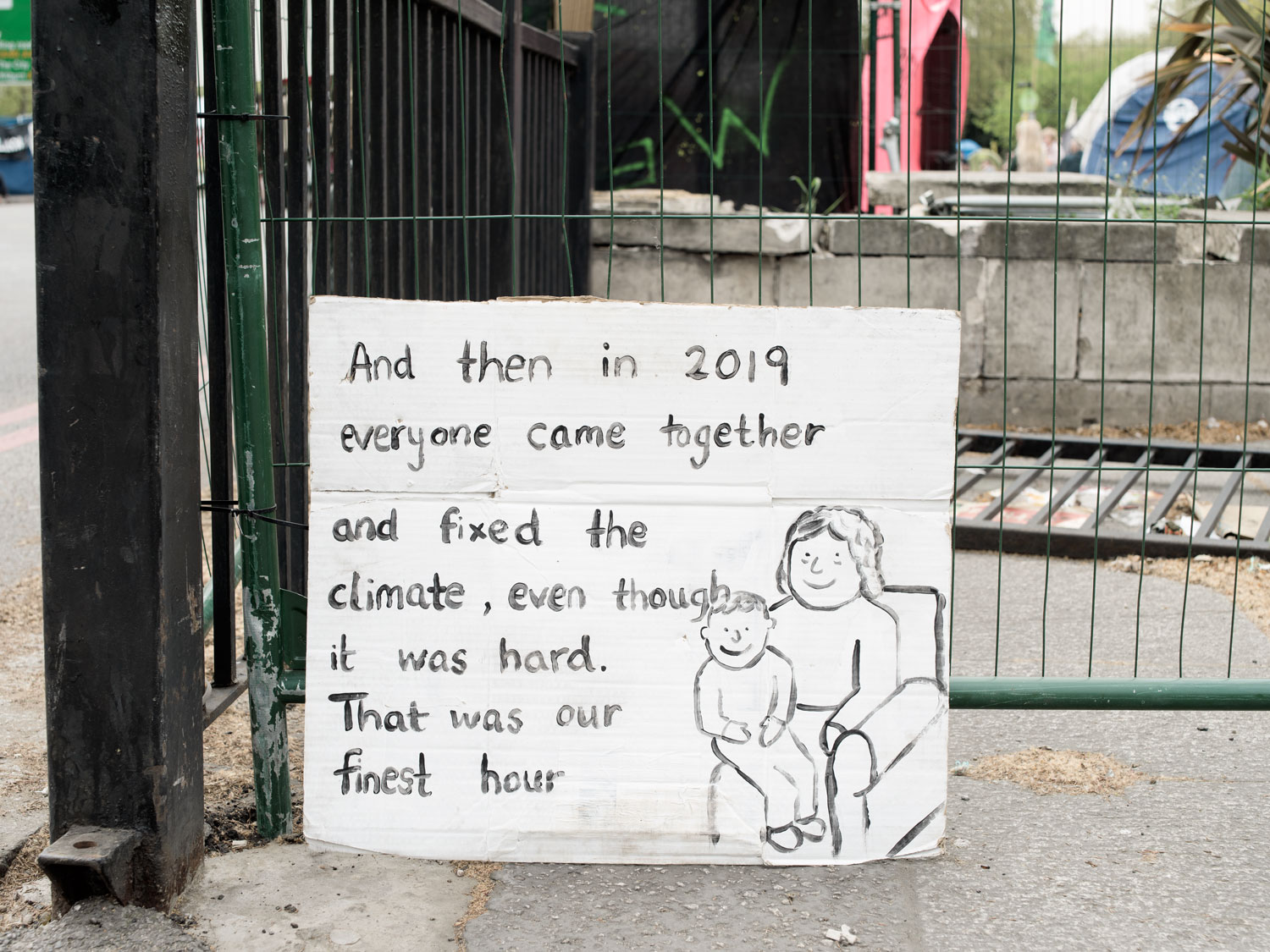
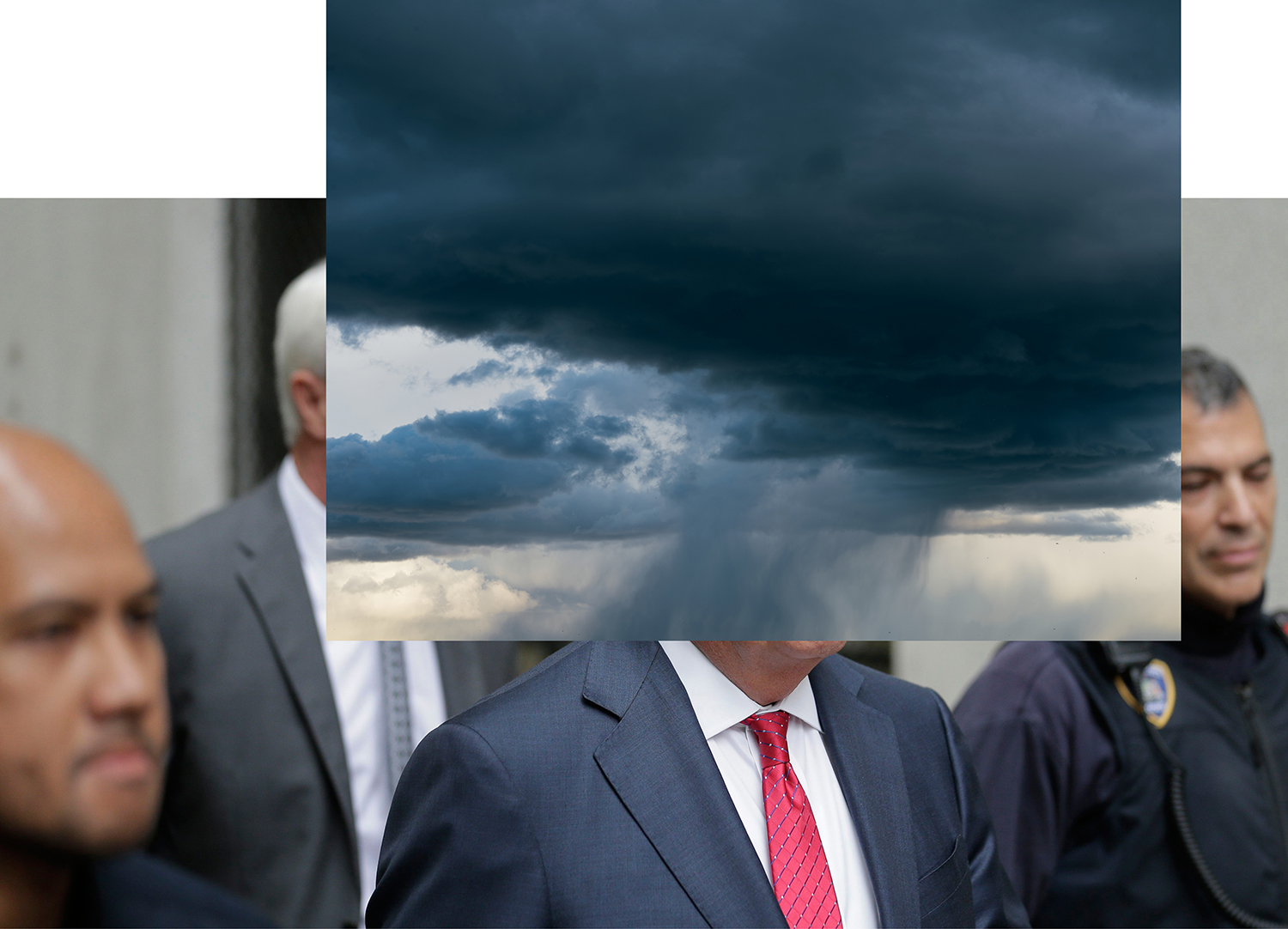
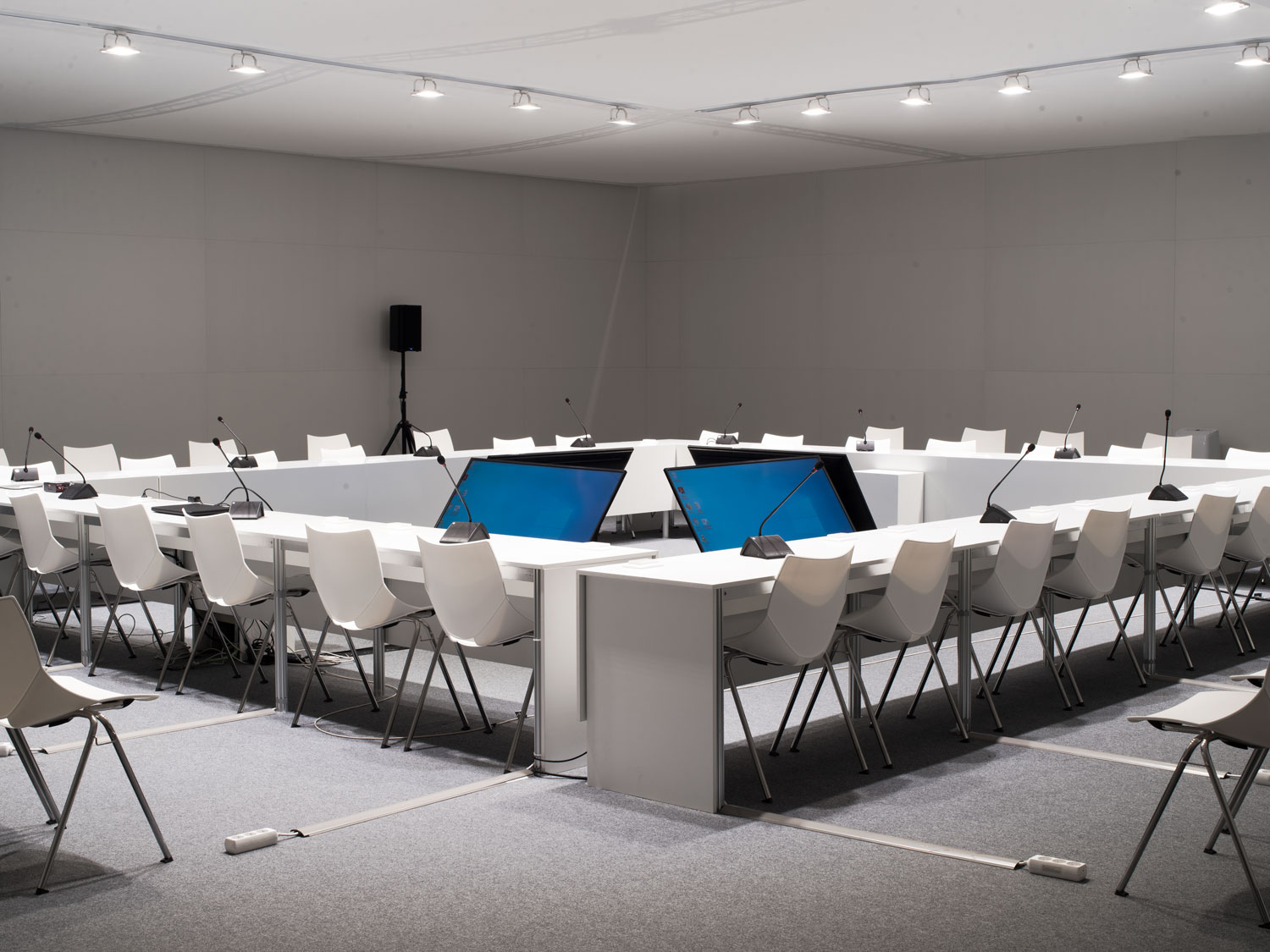
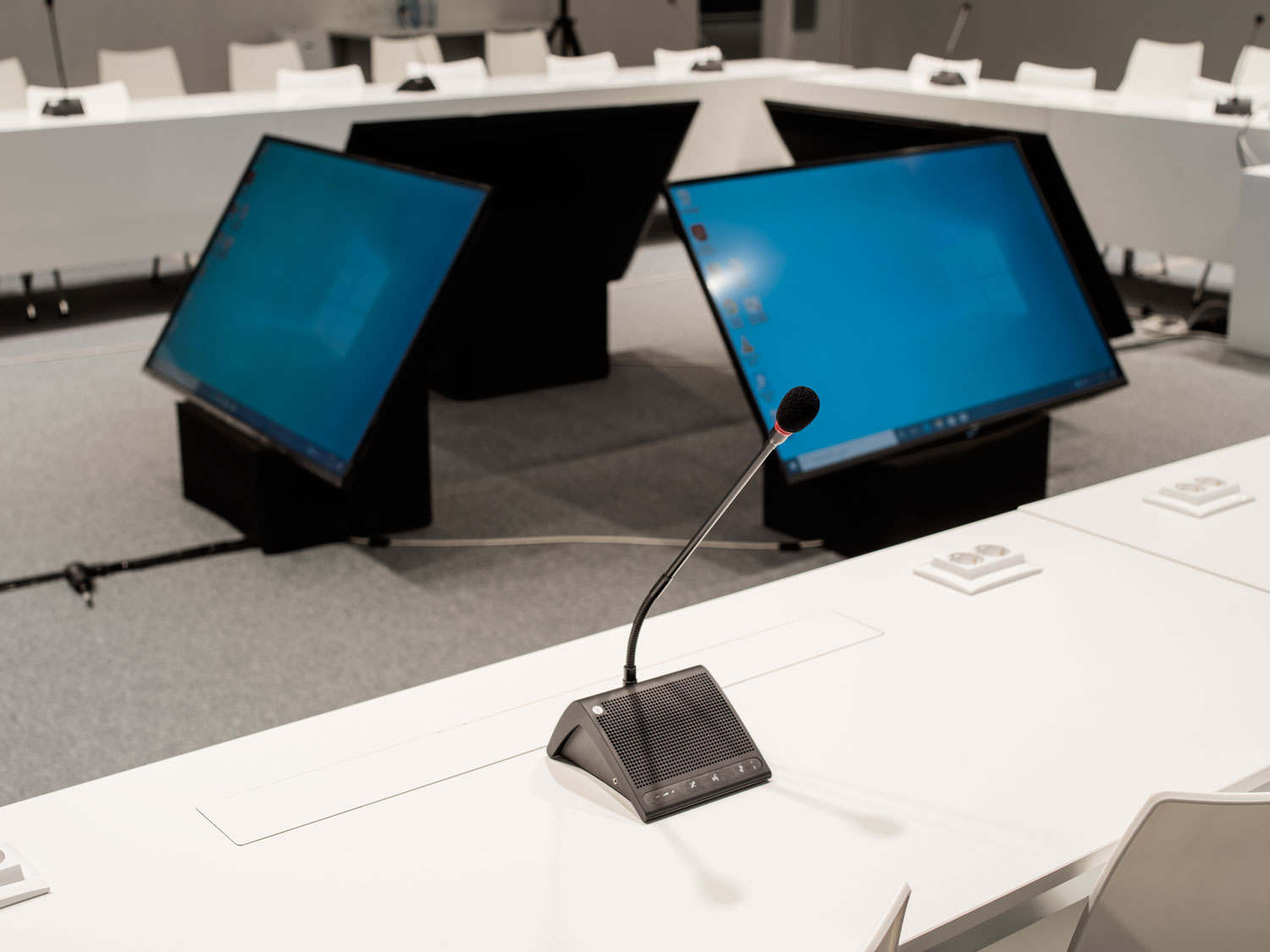
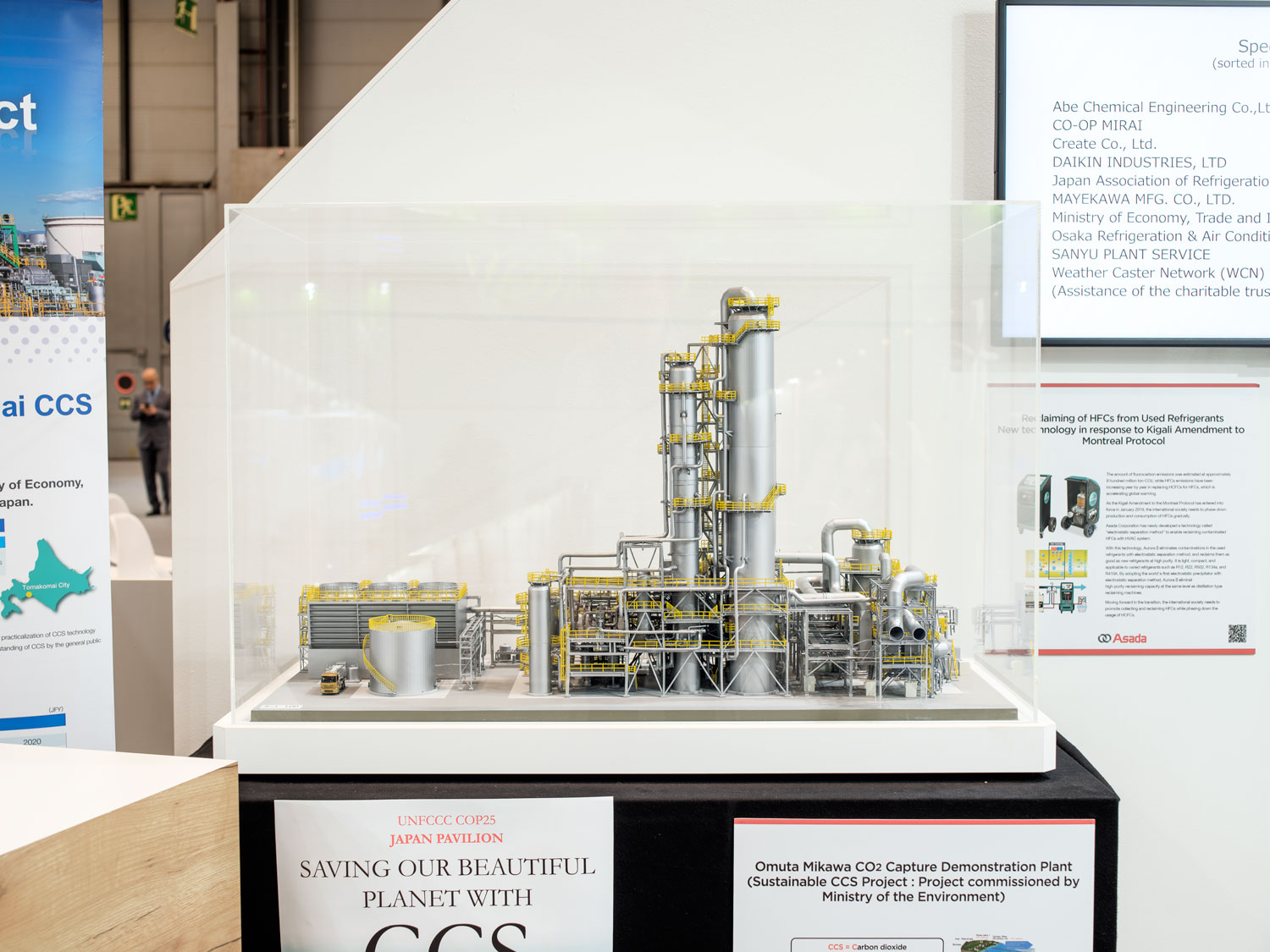
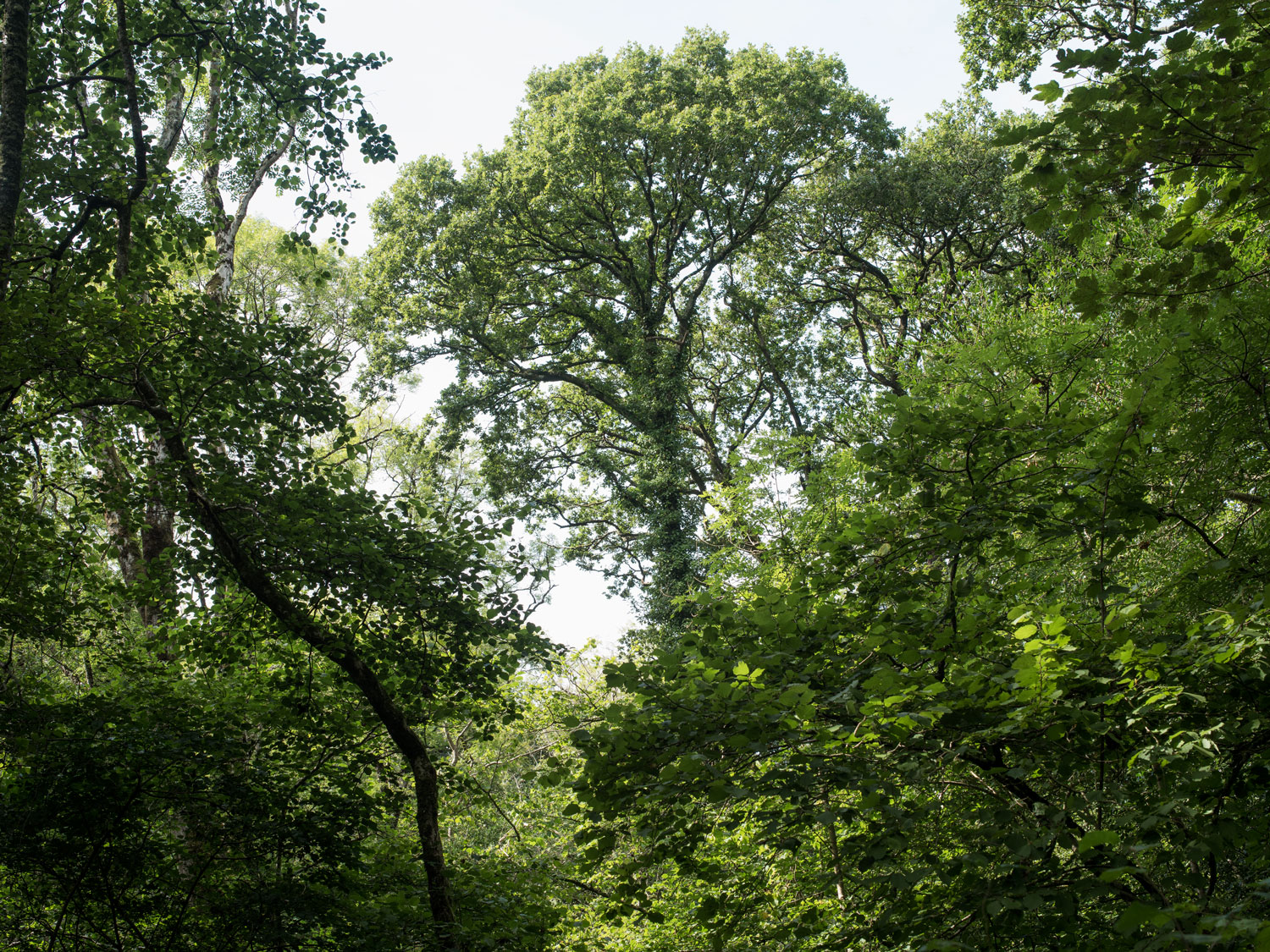
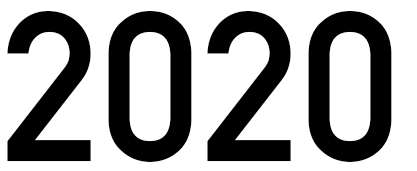
new.jpg)
